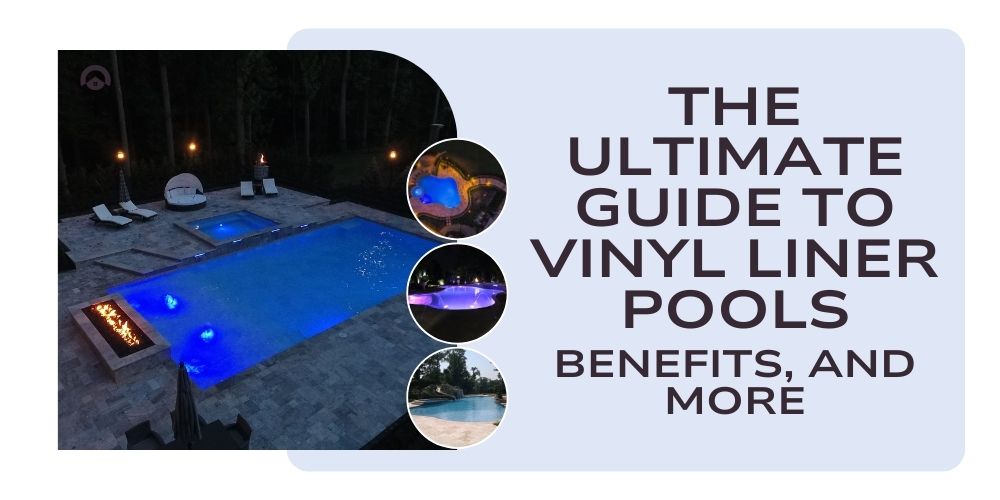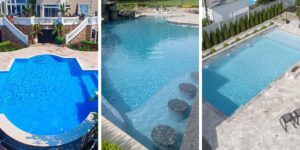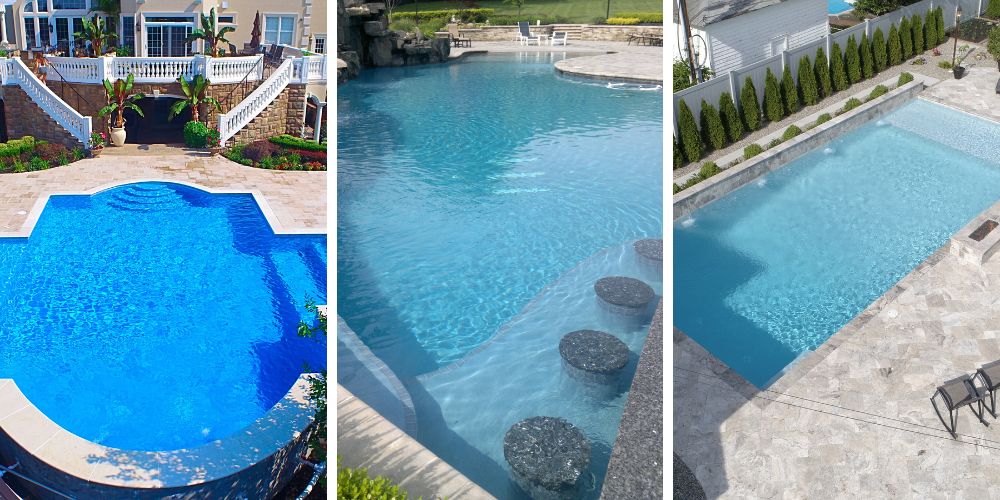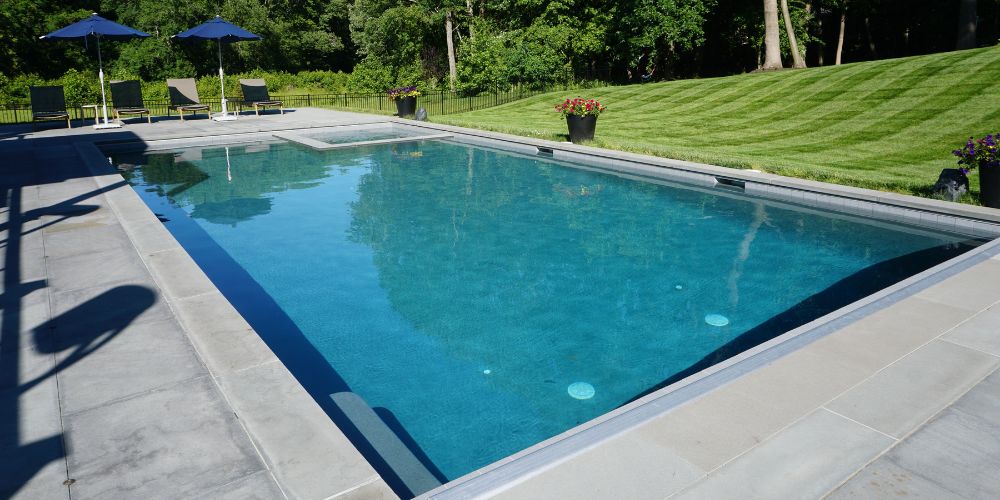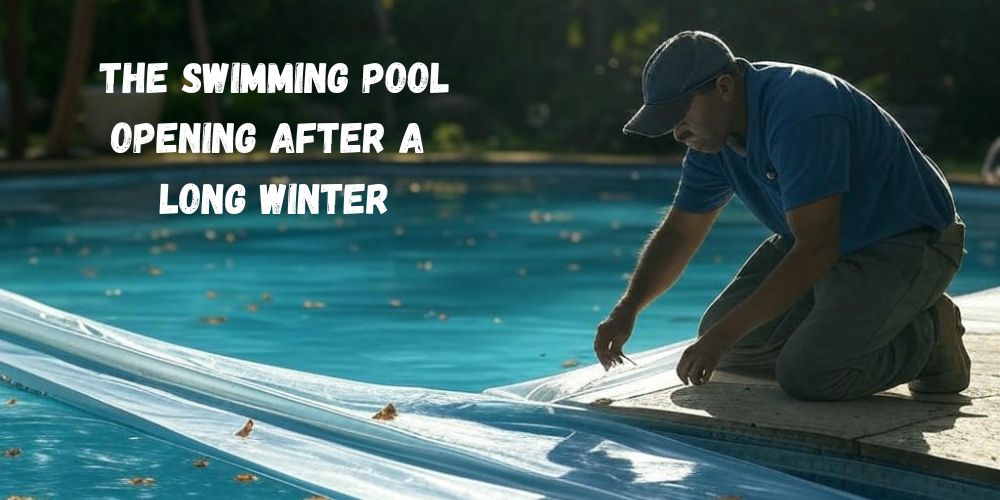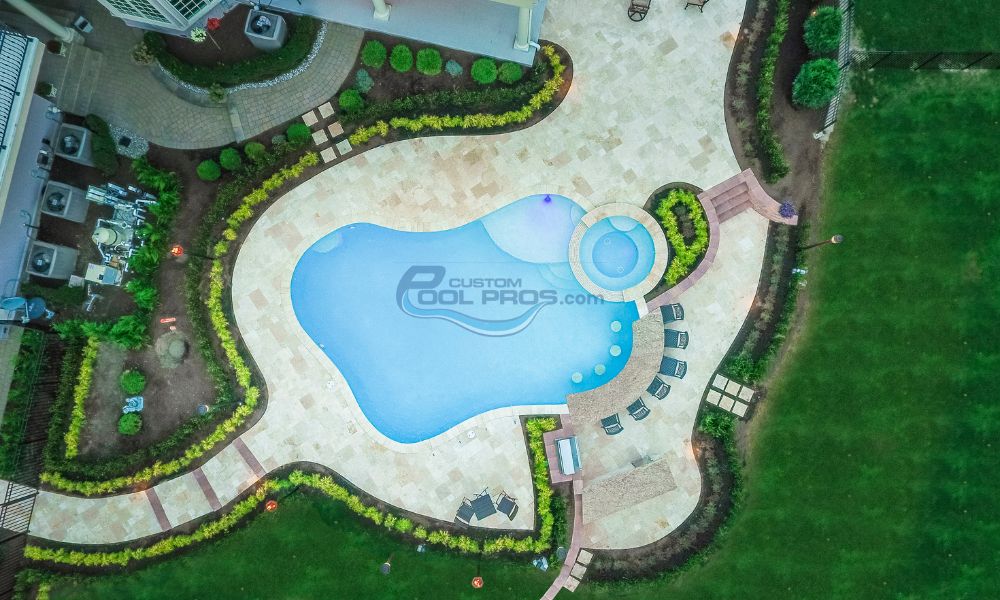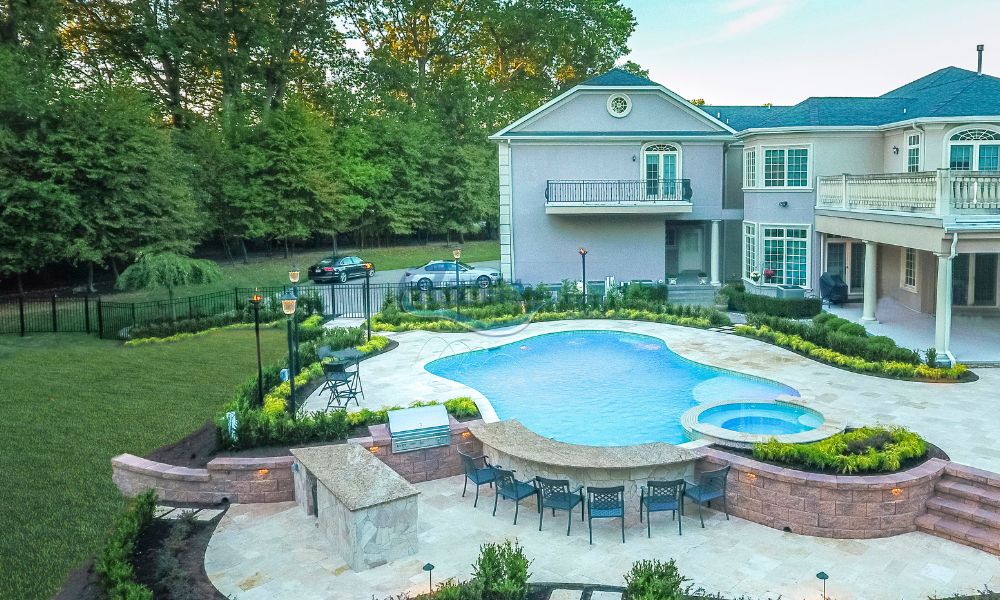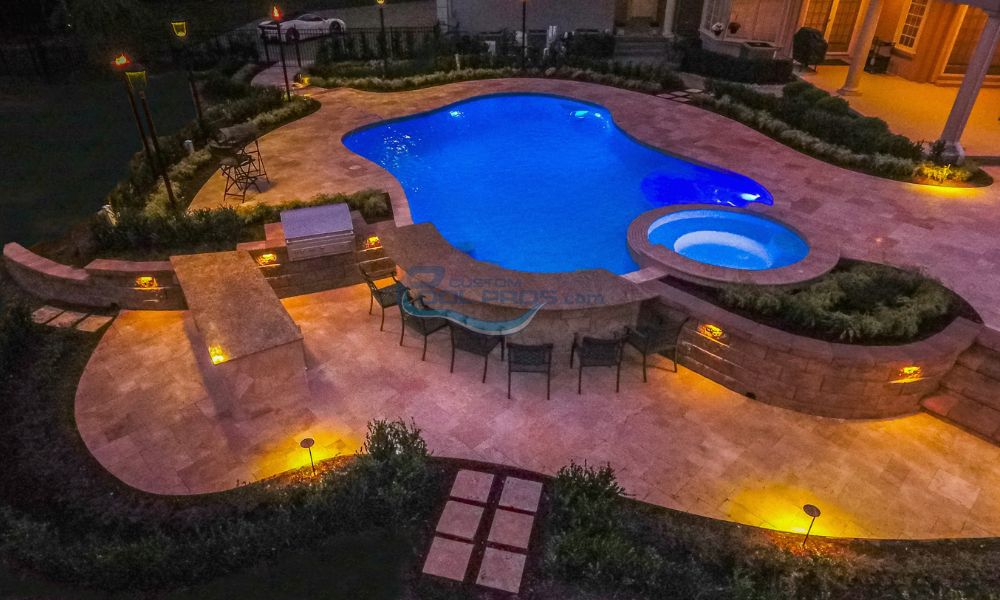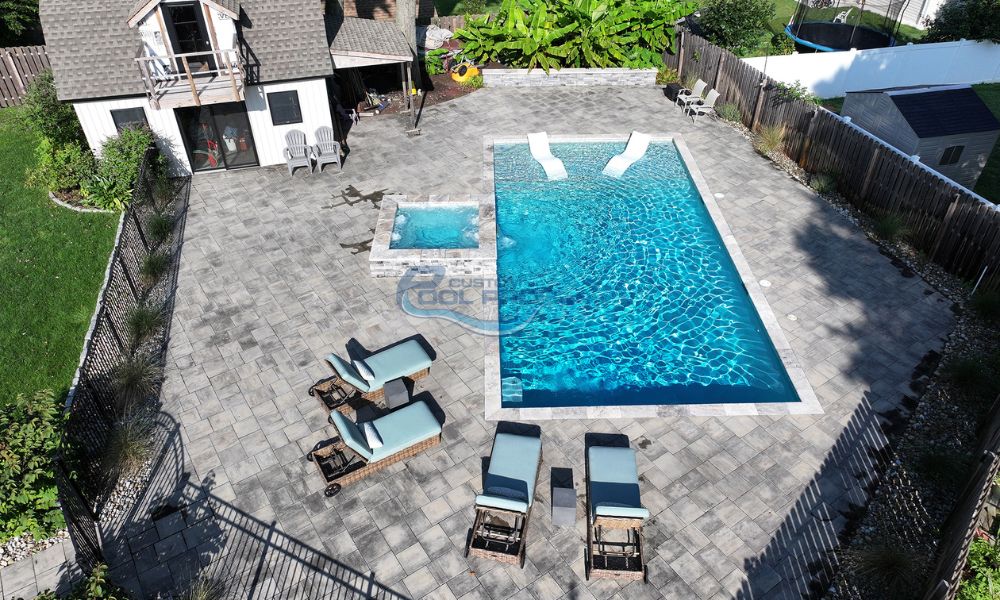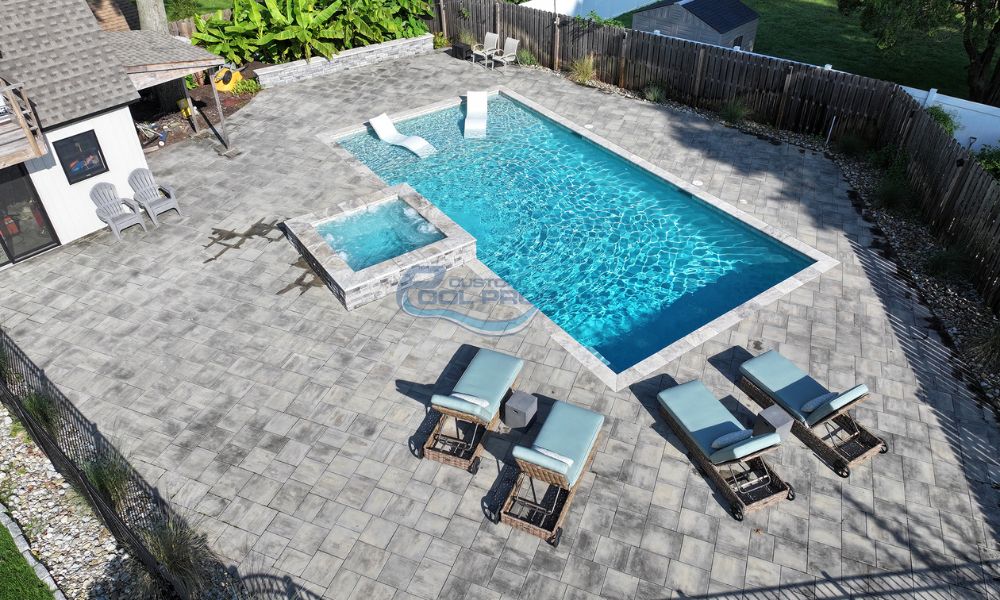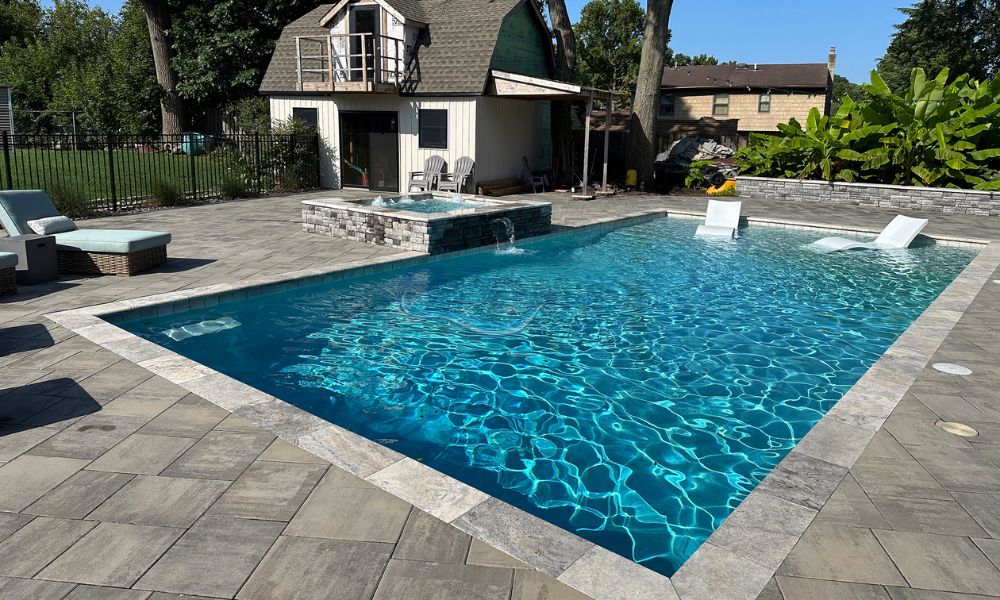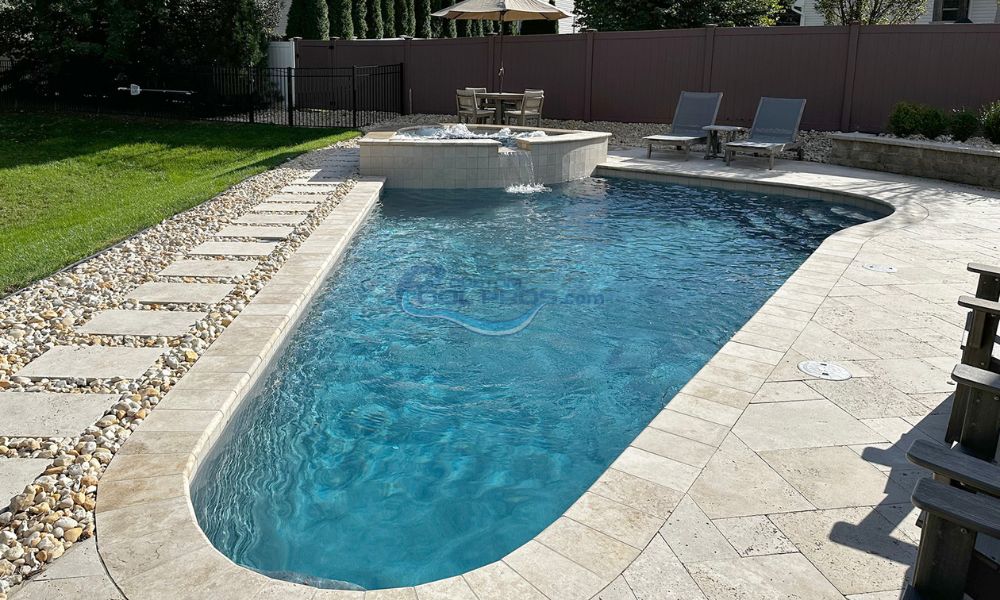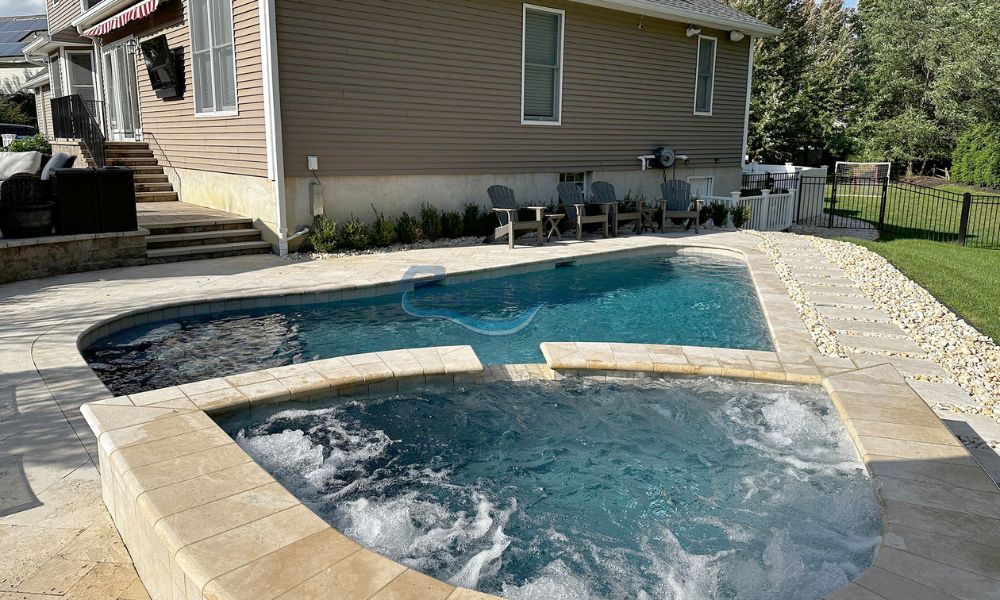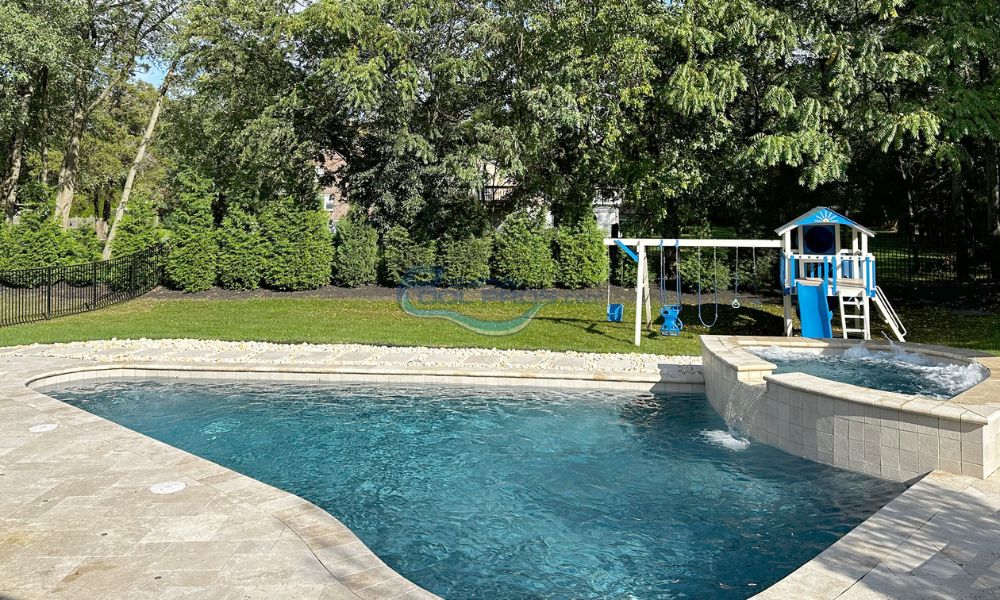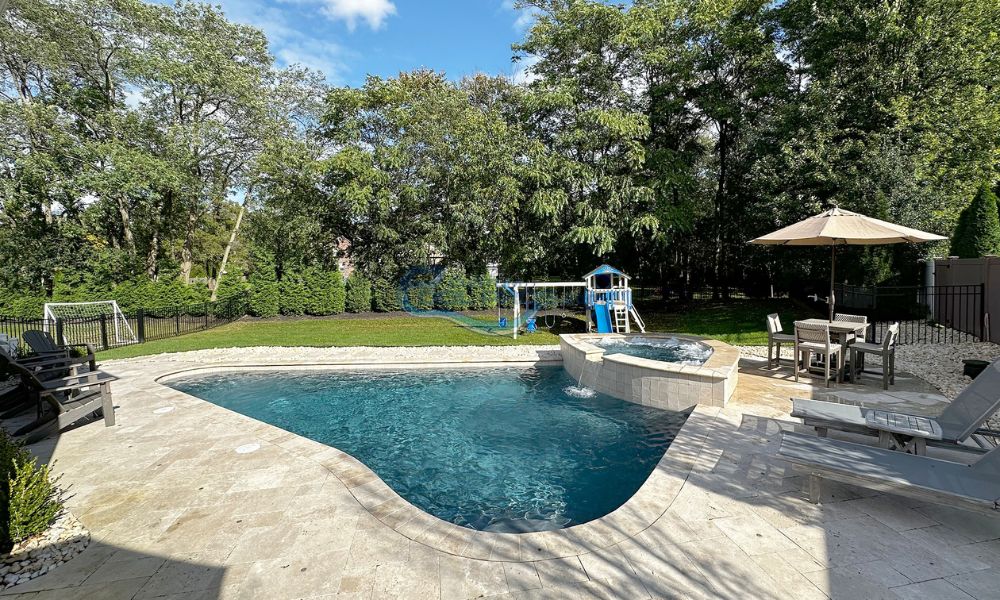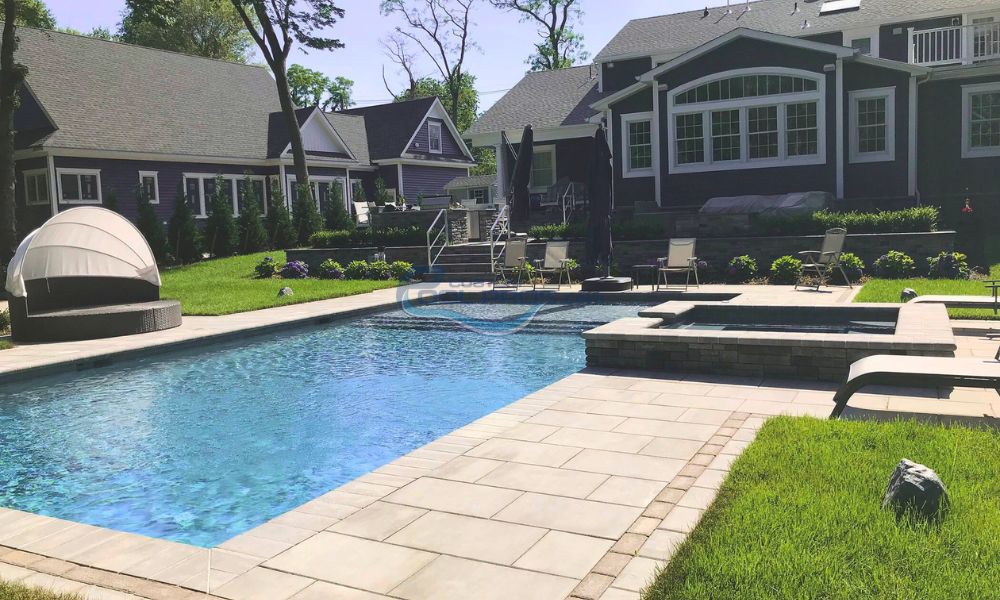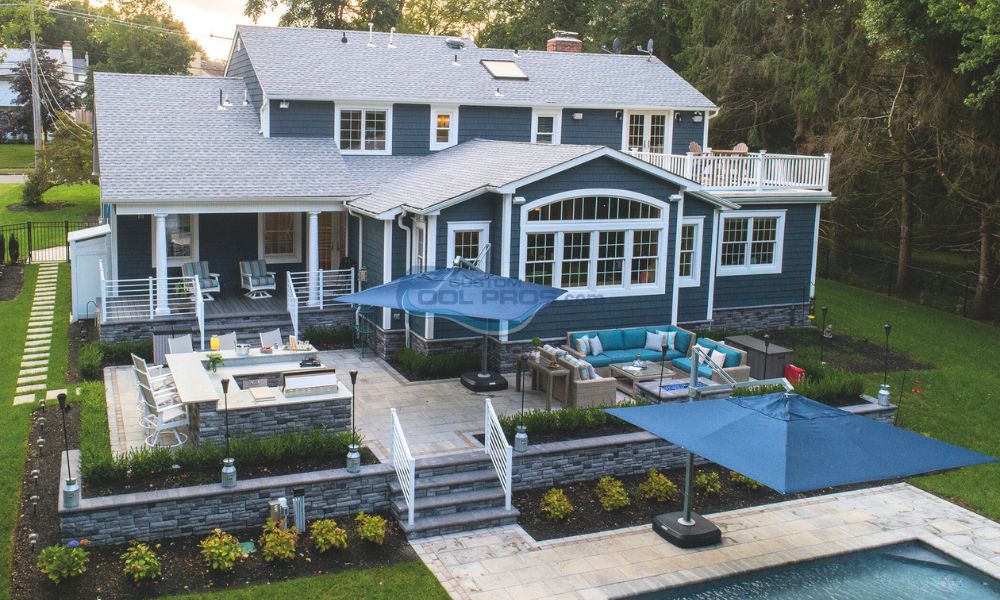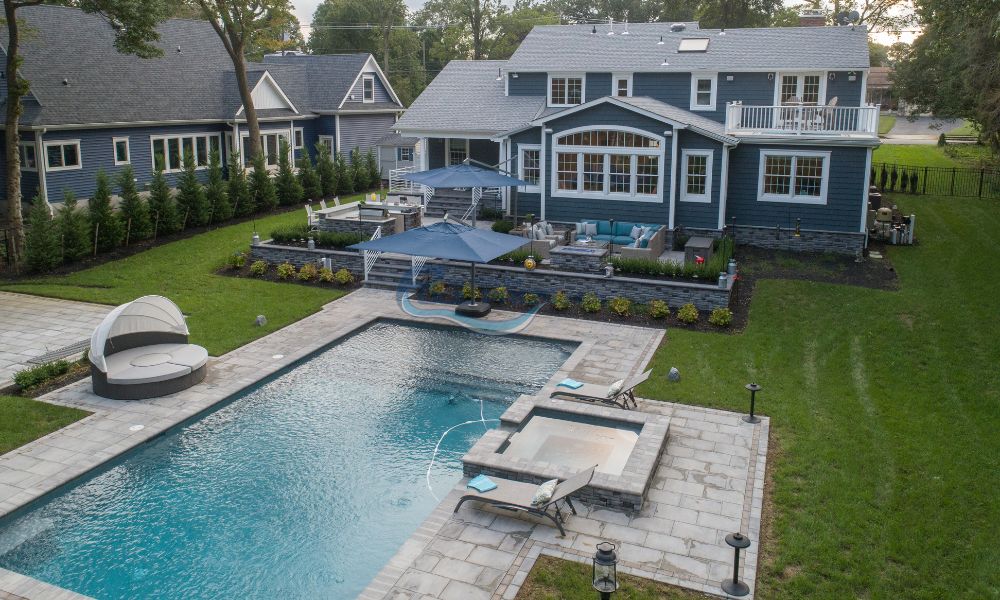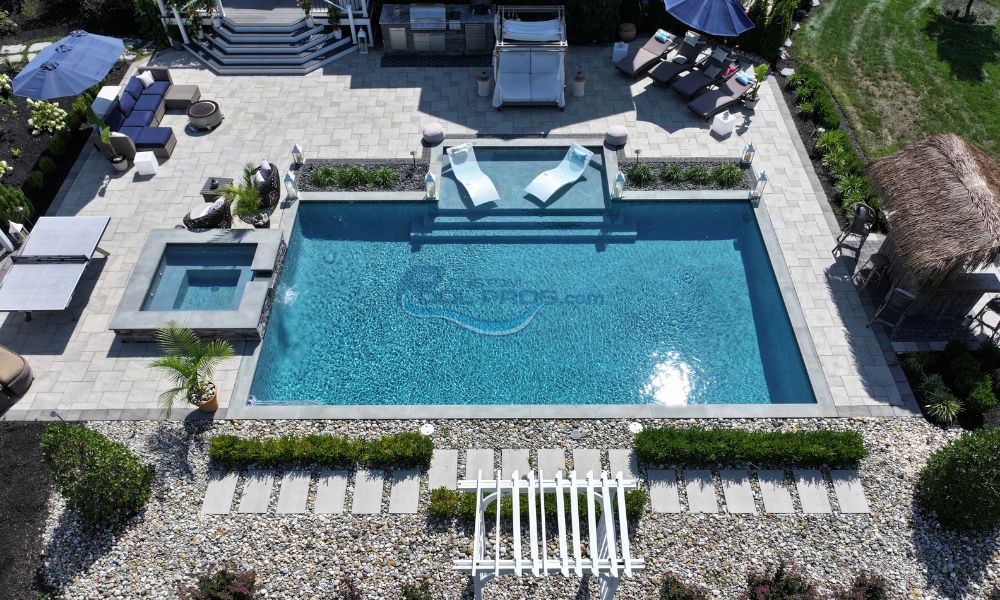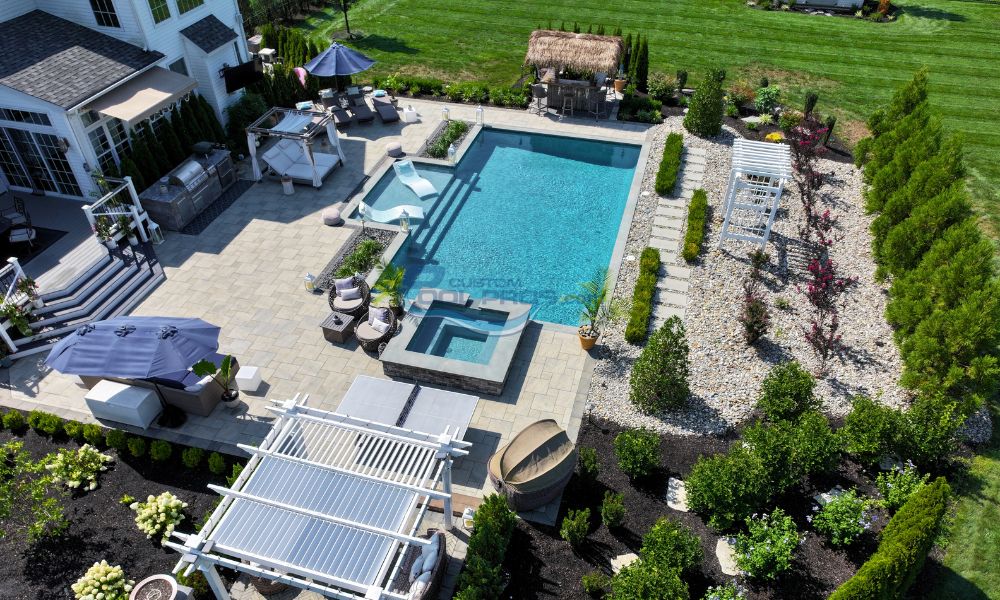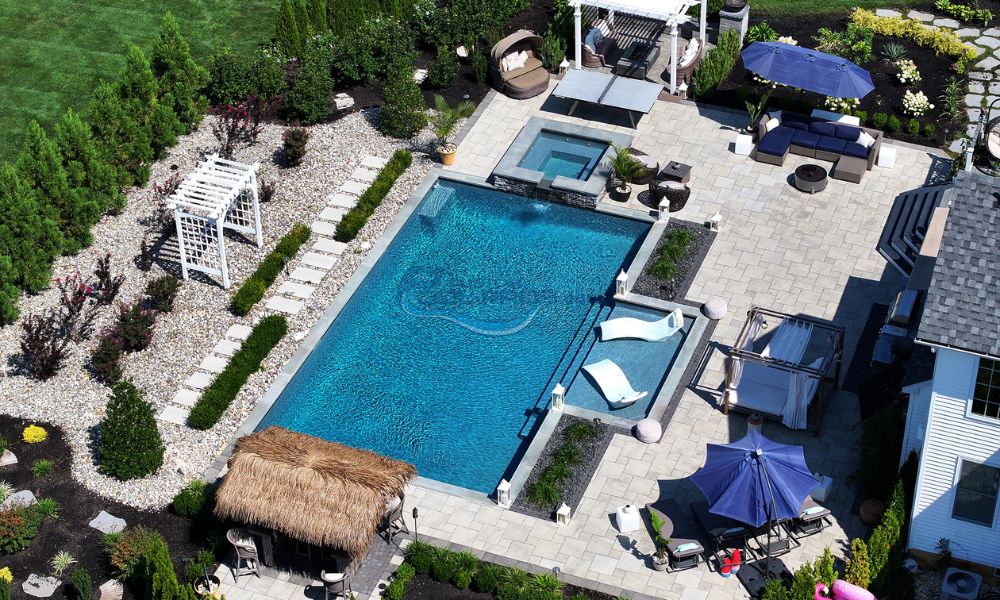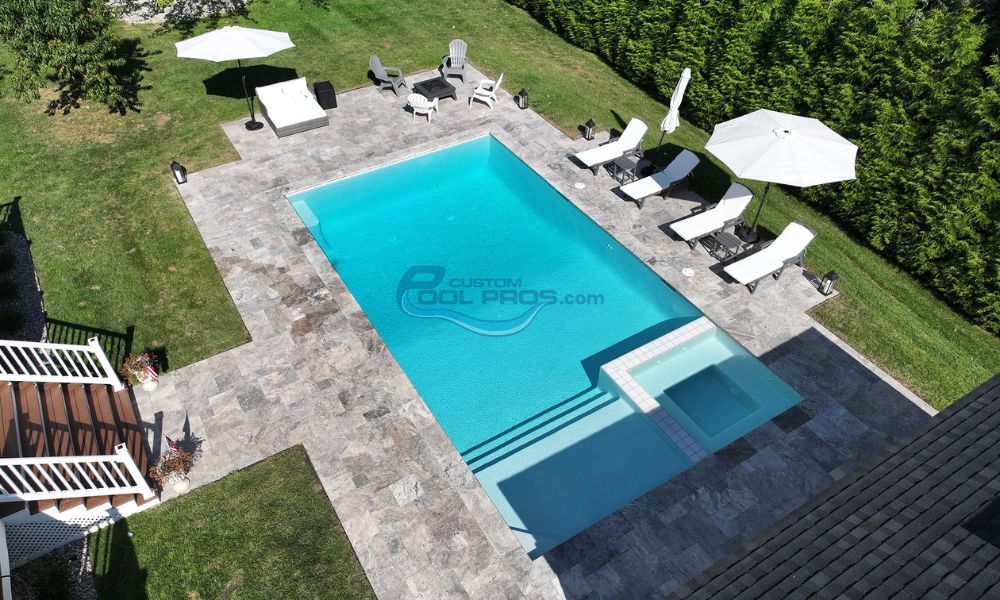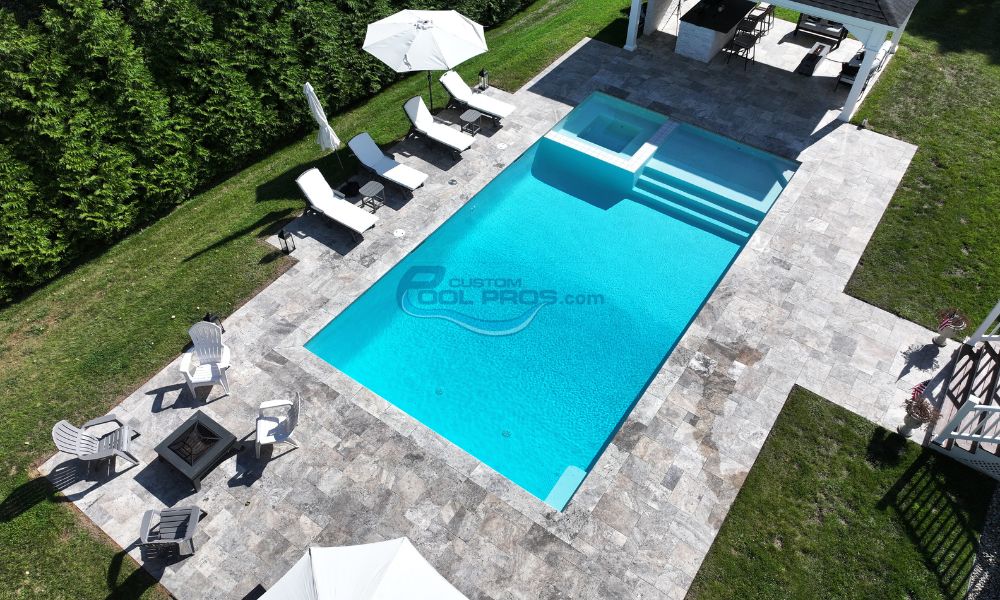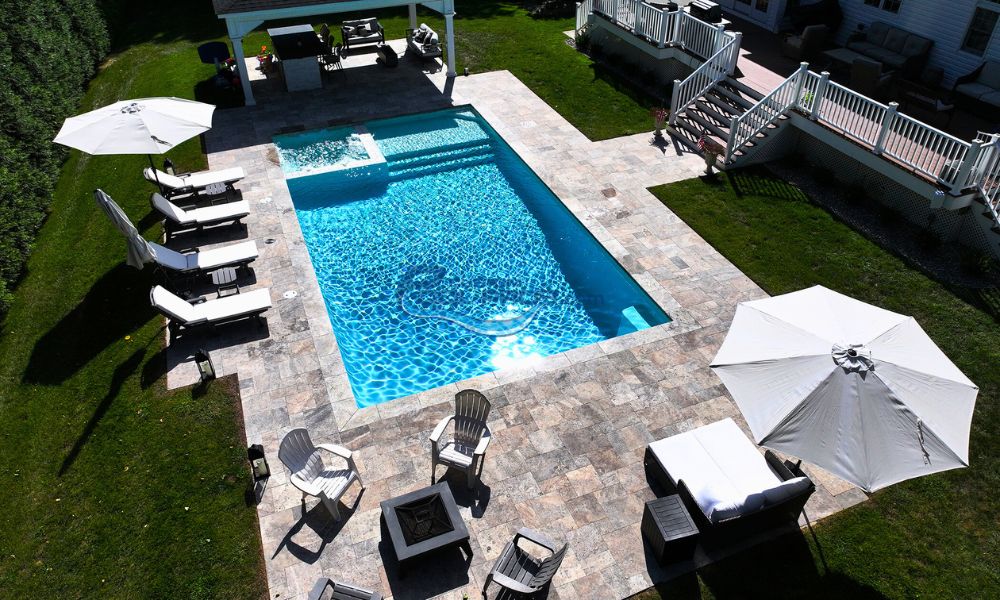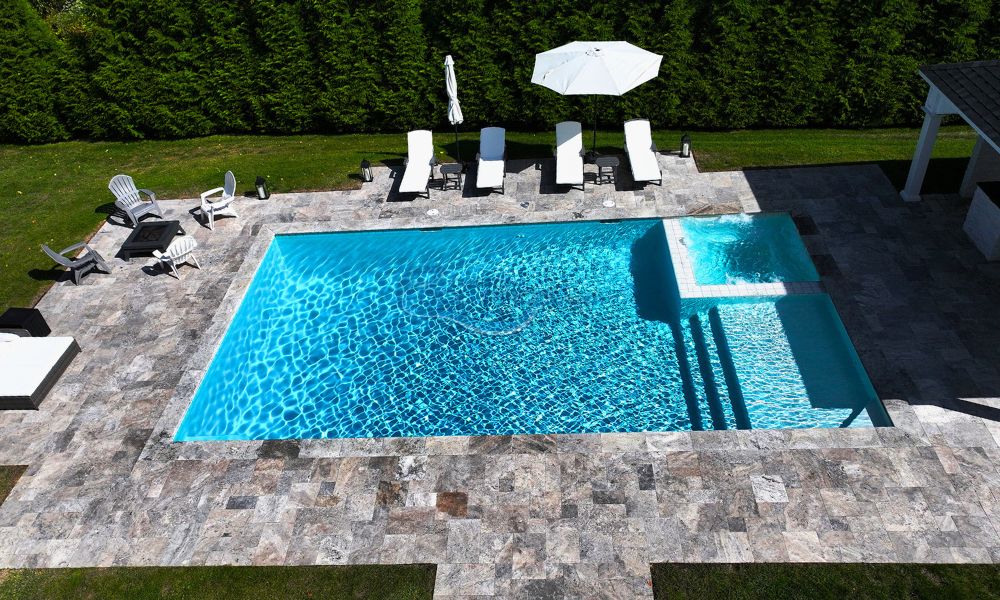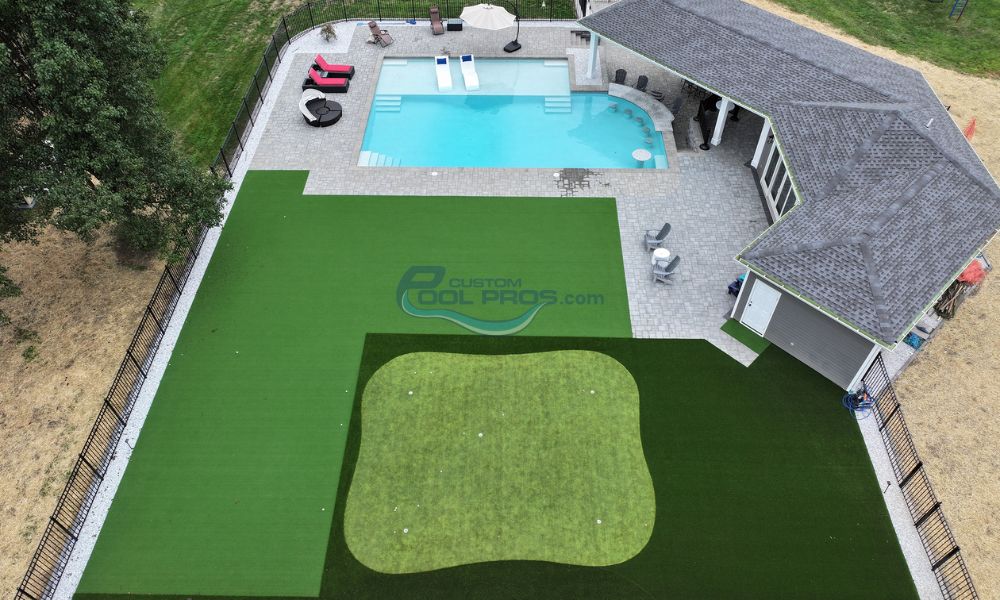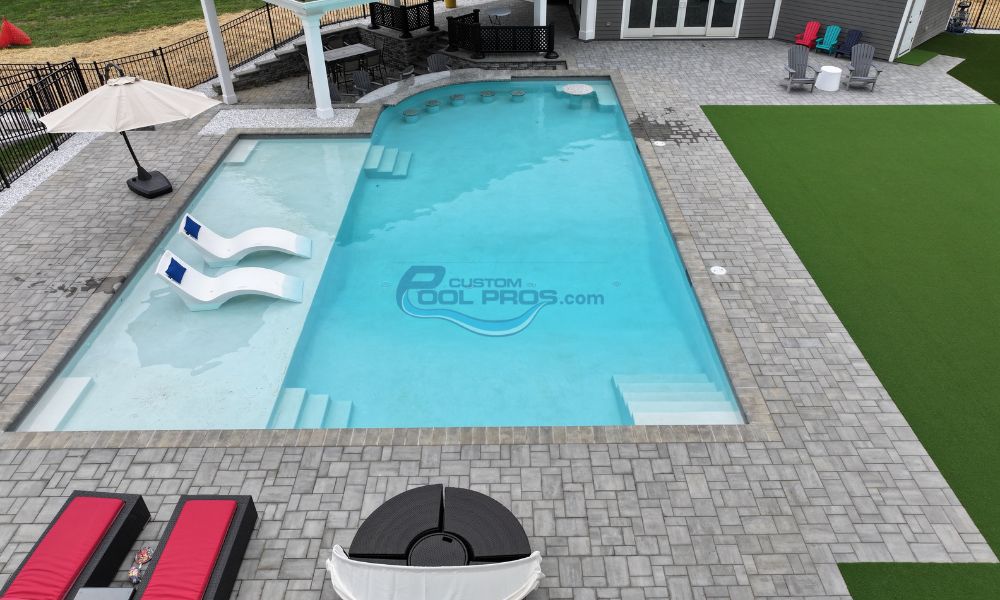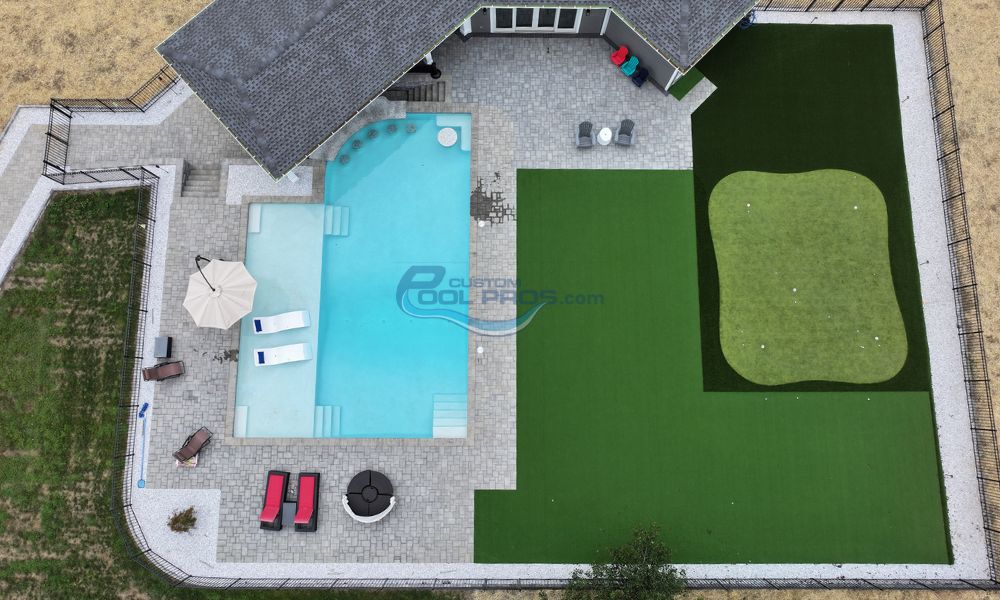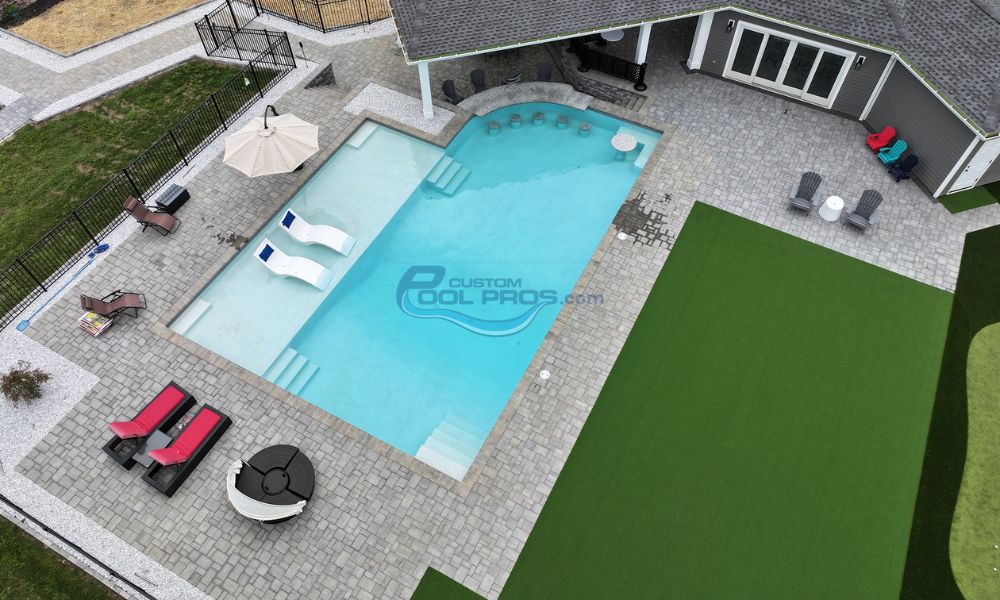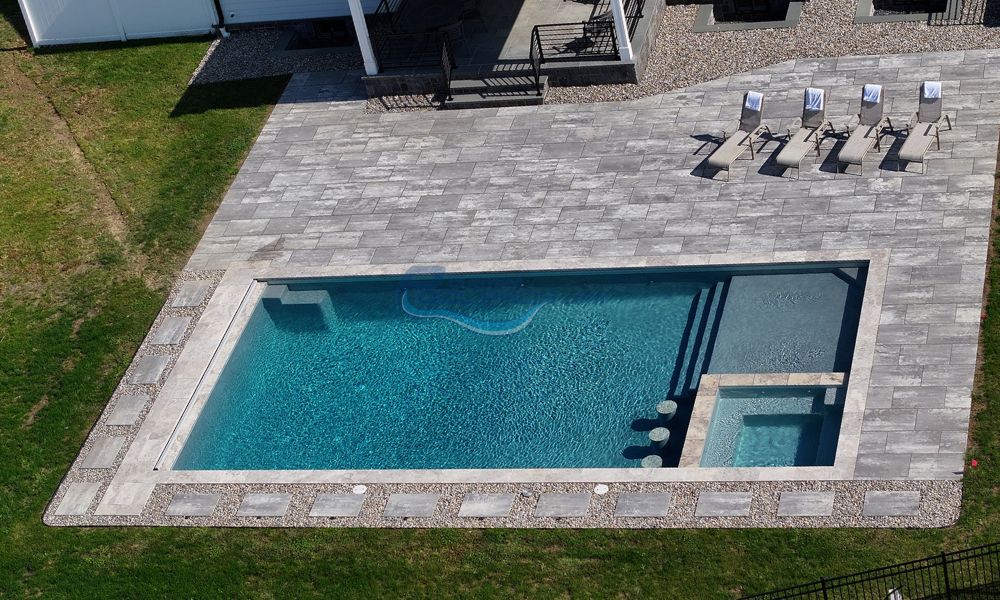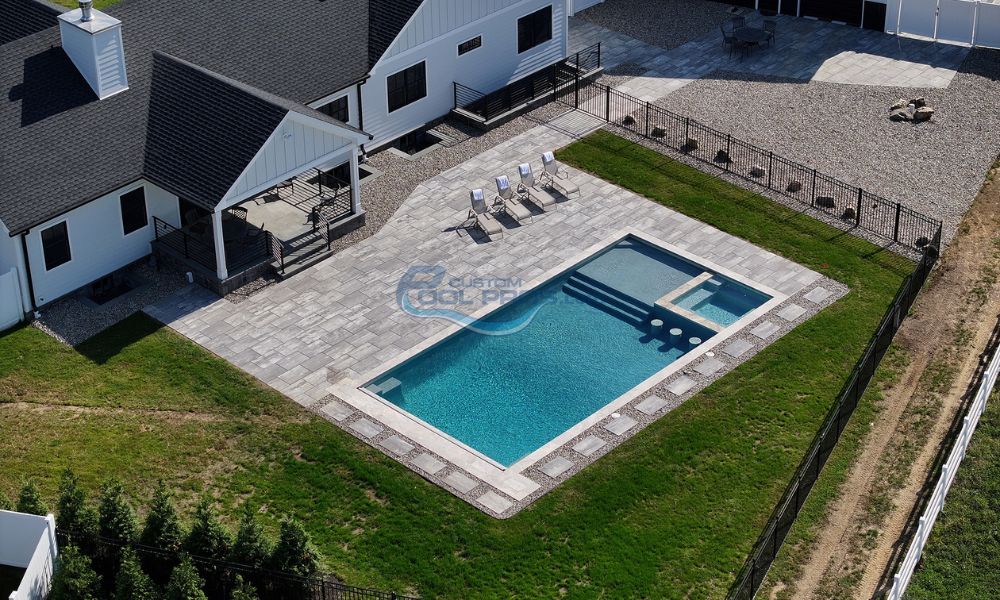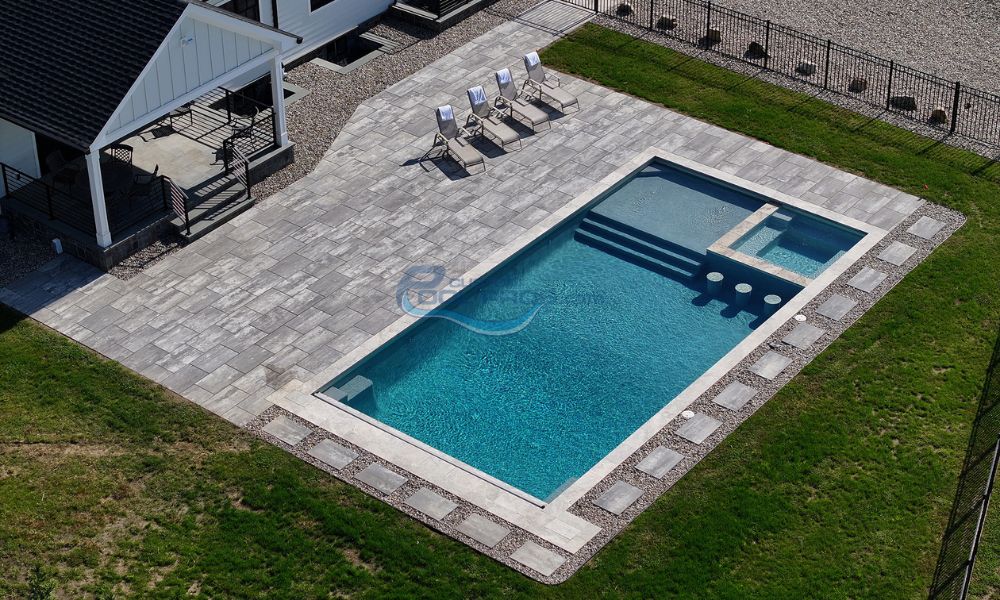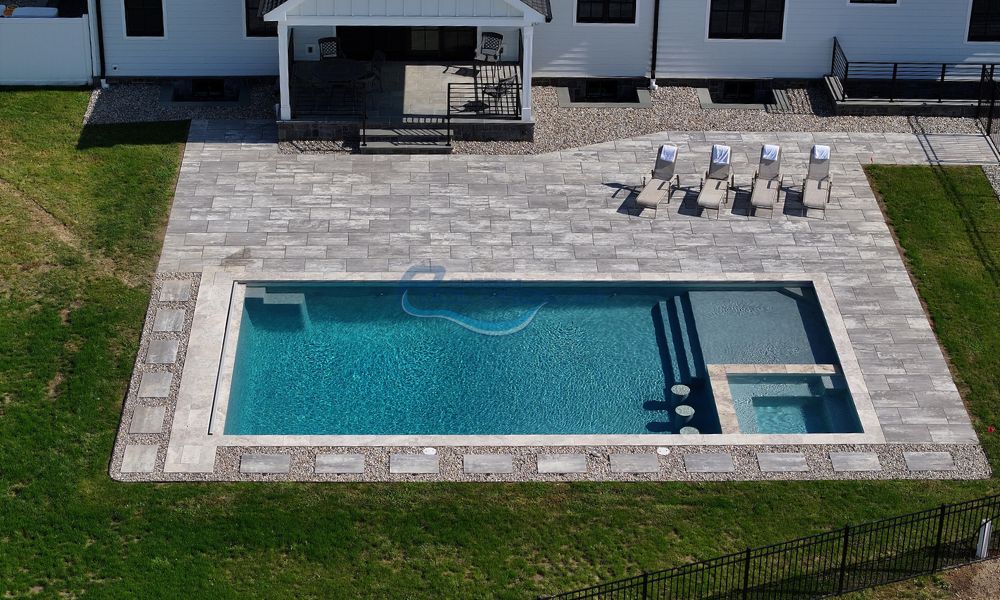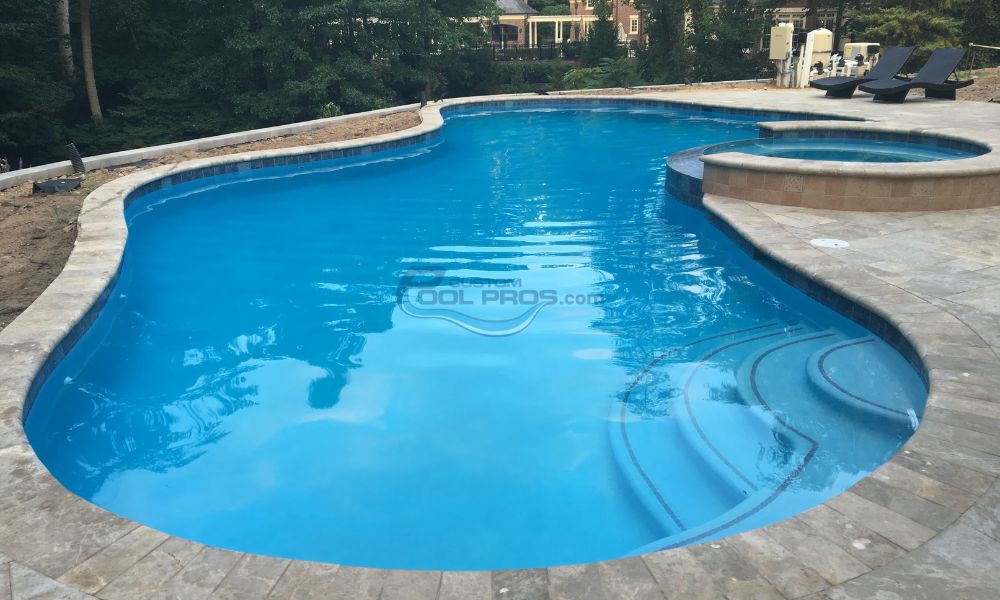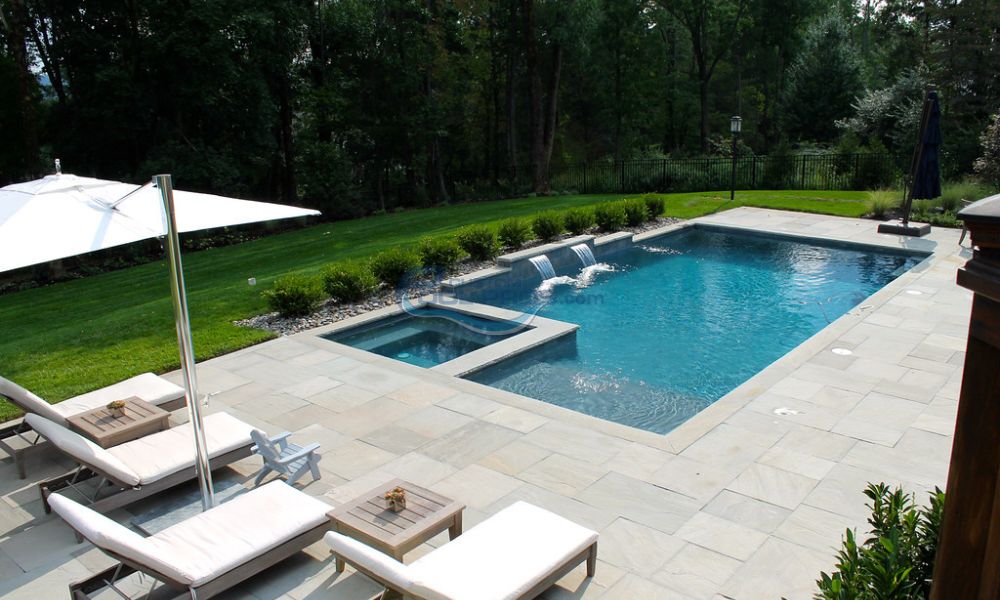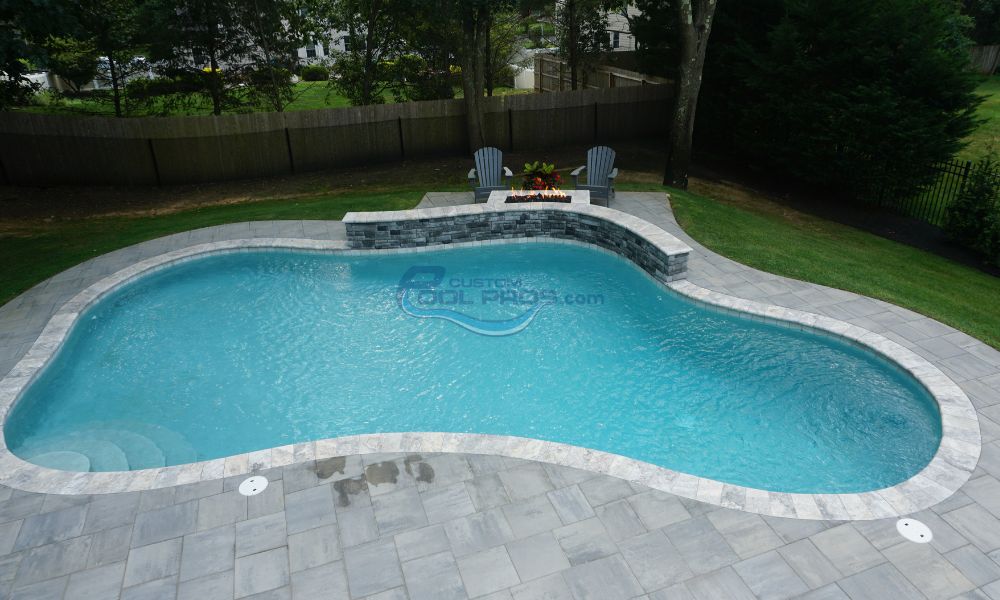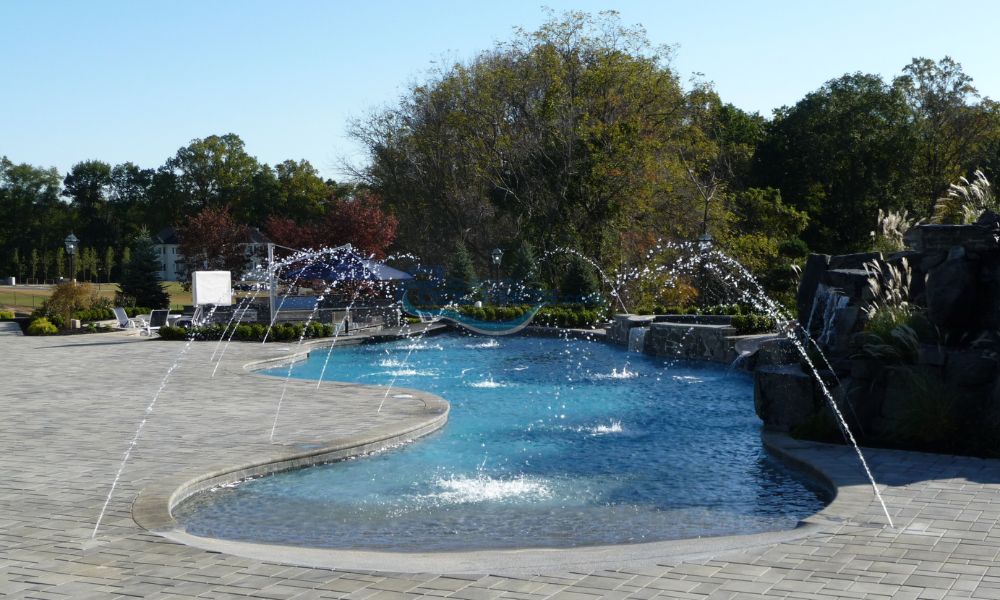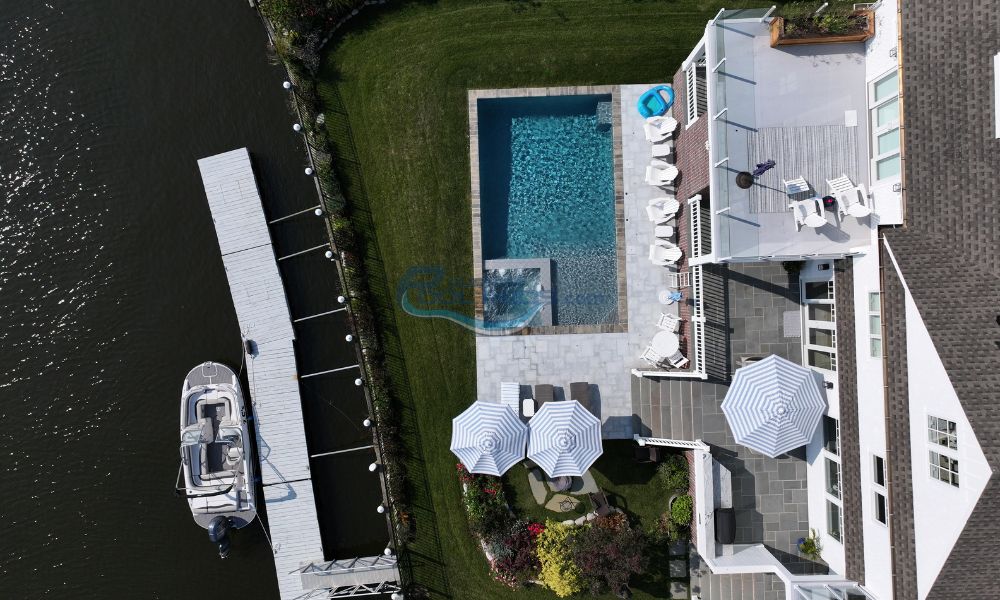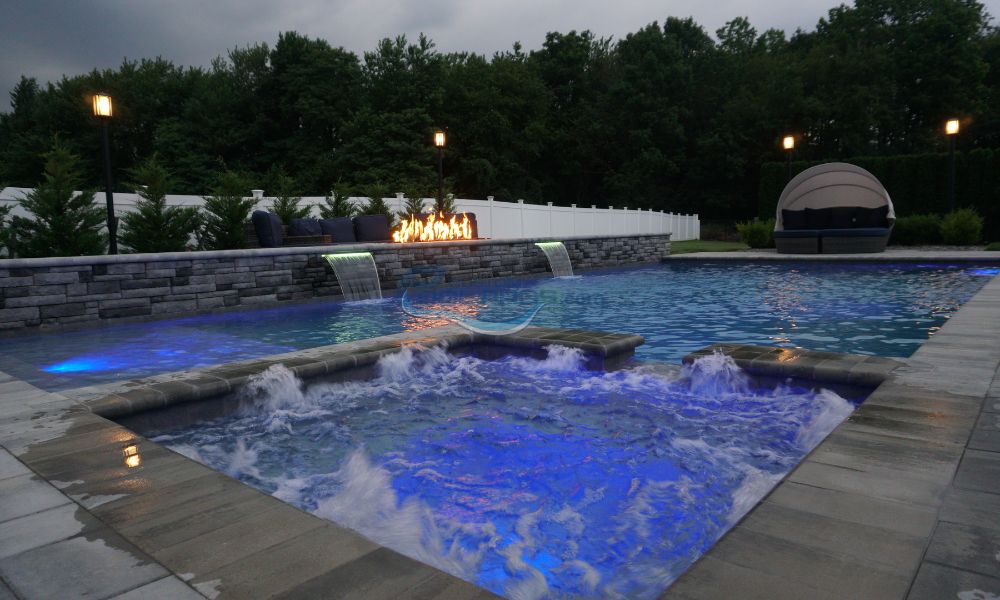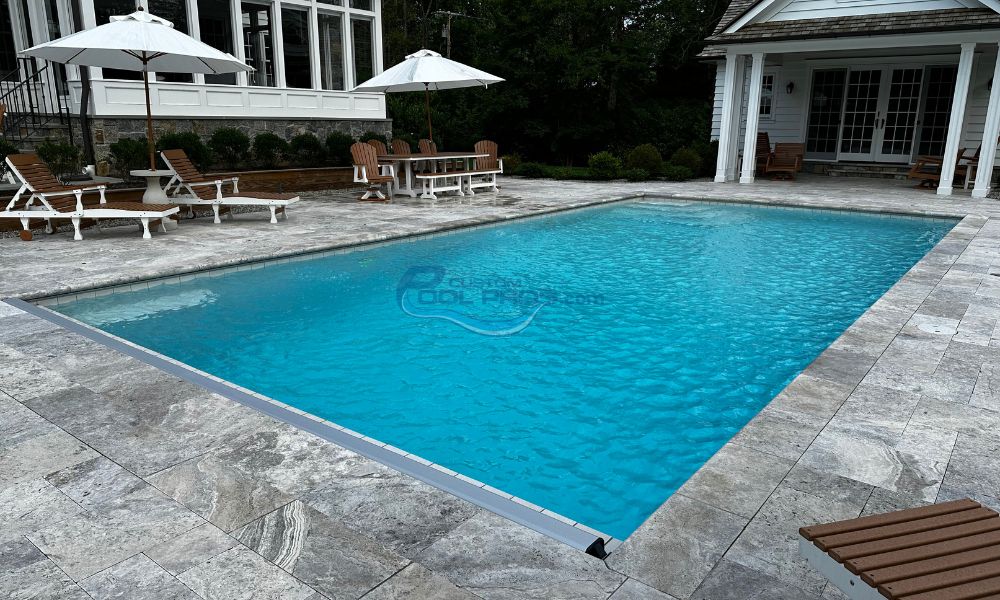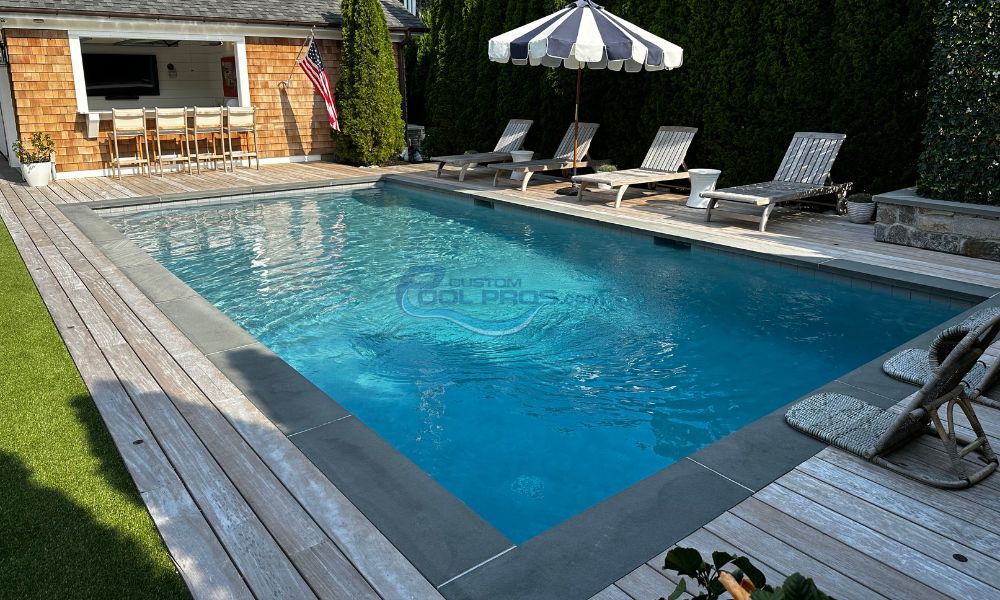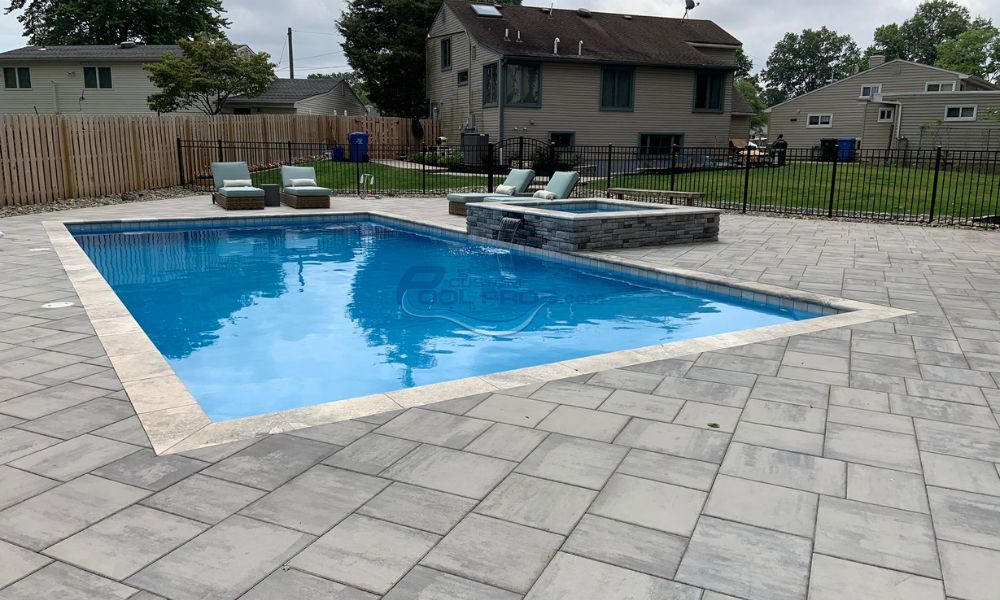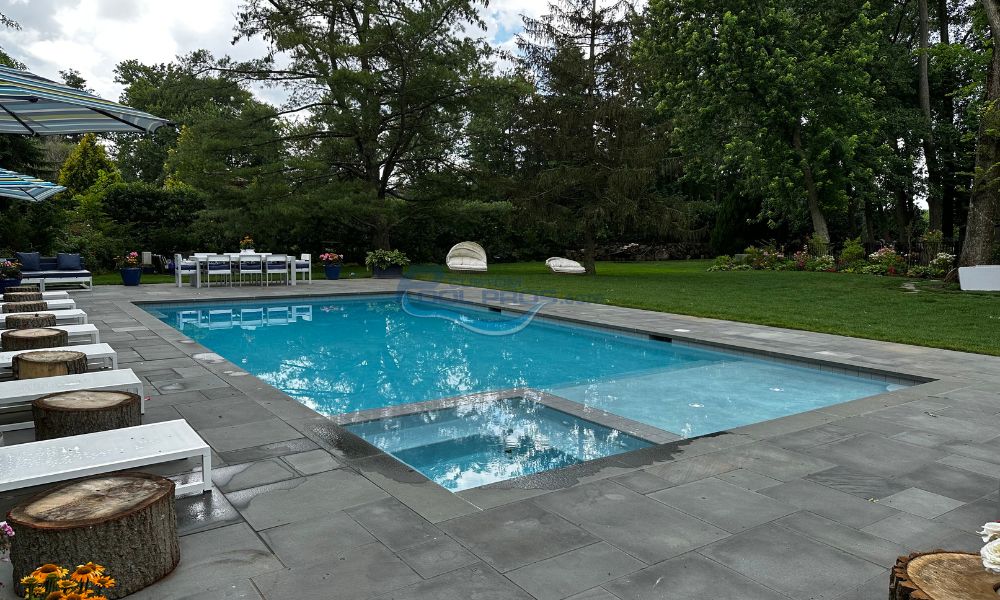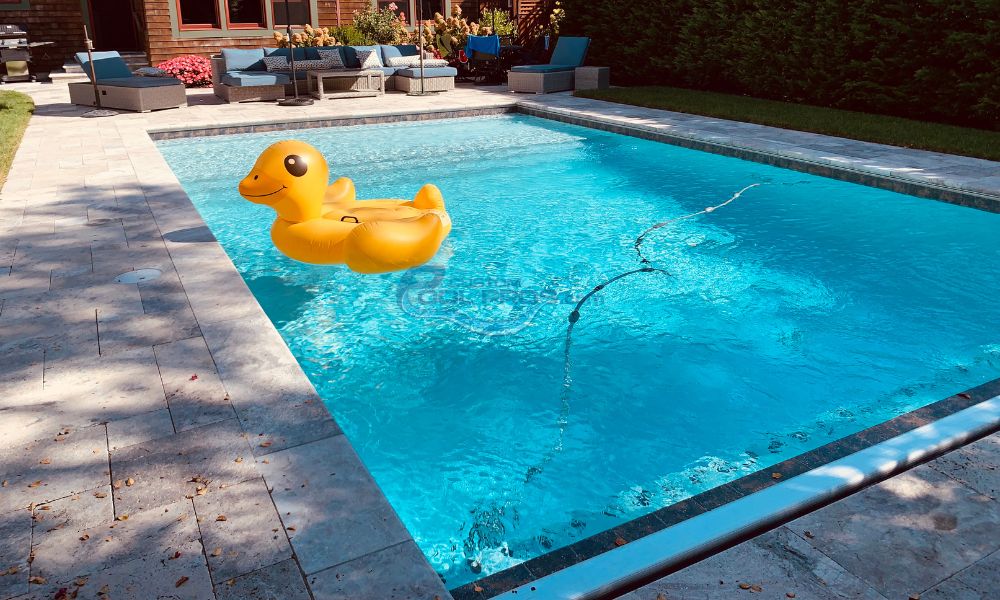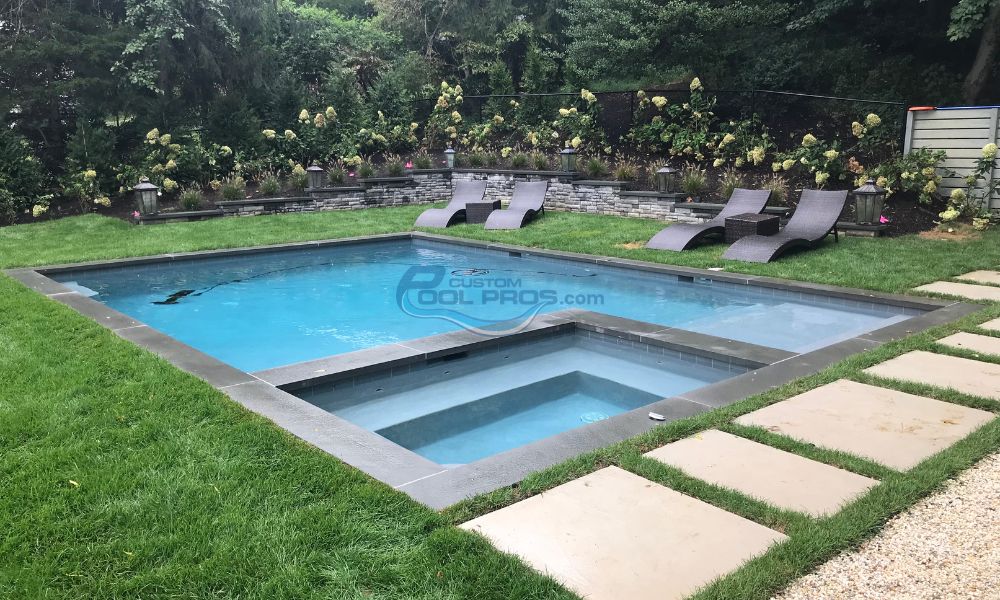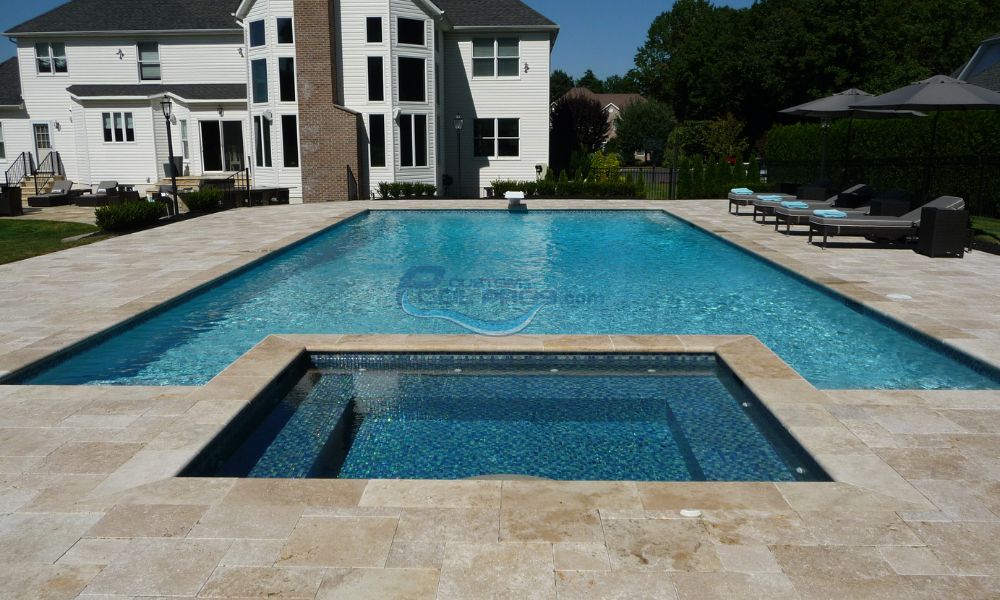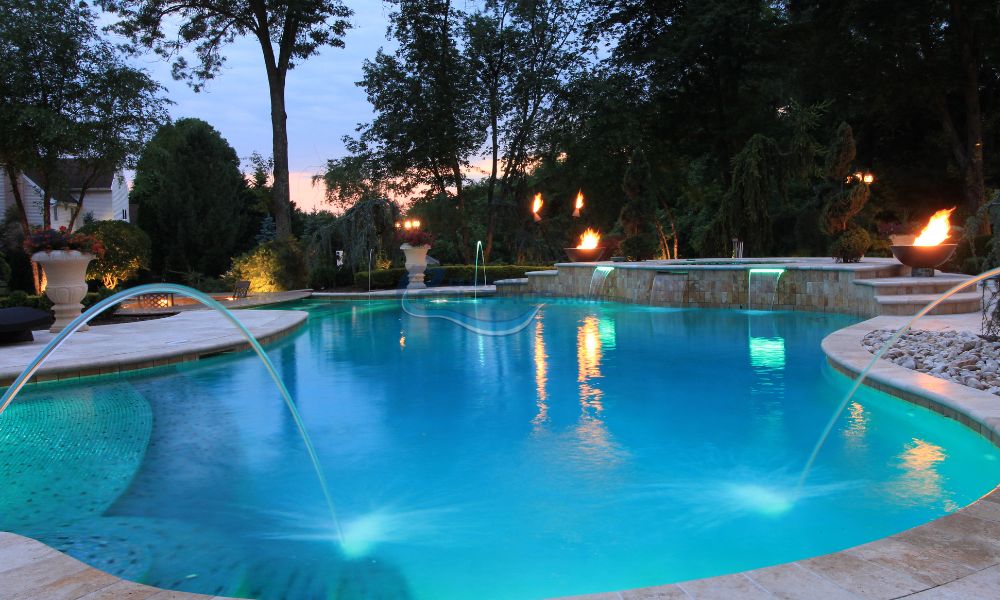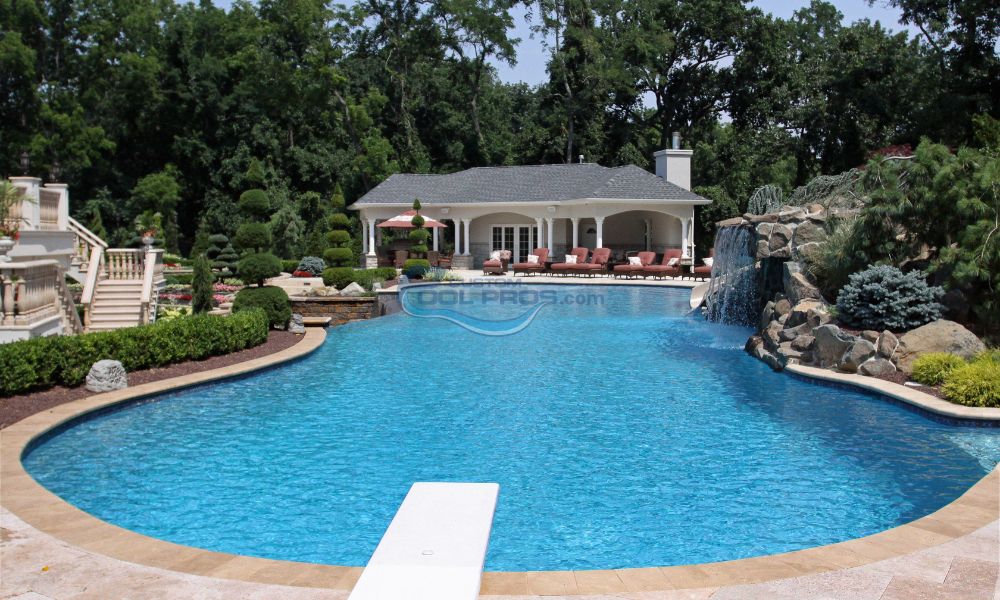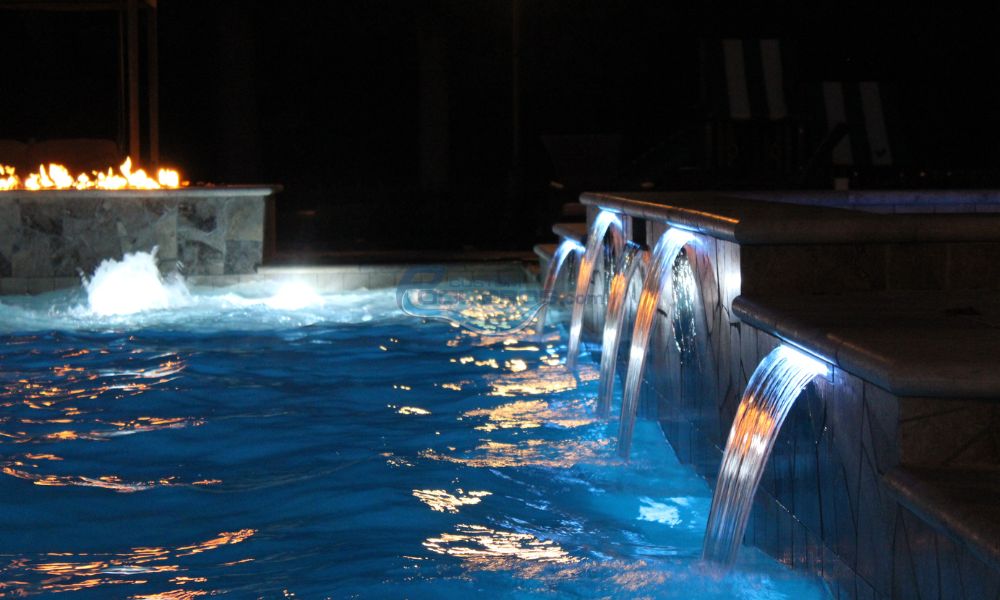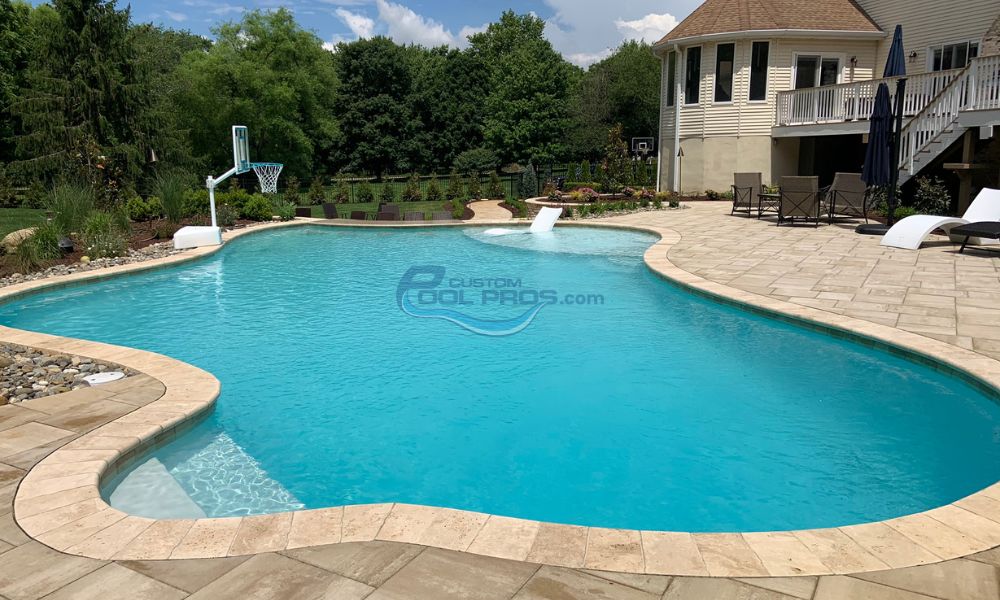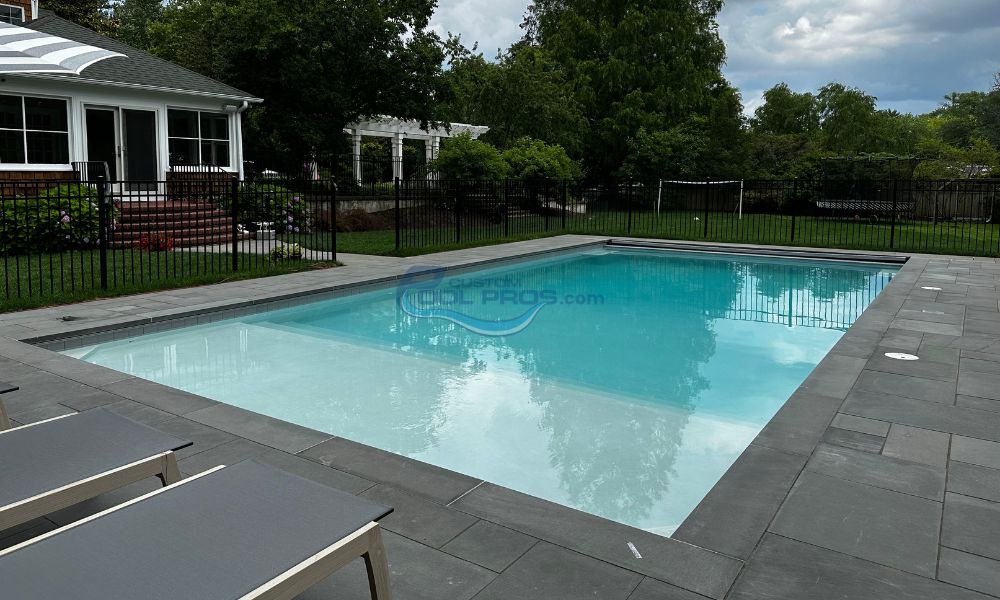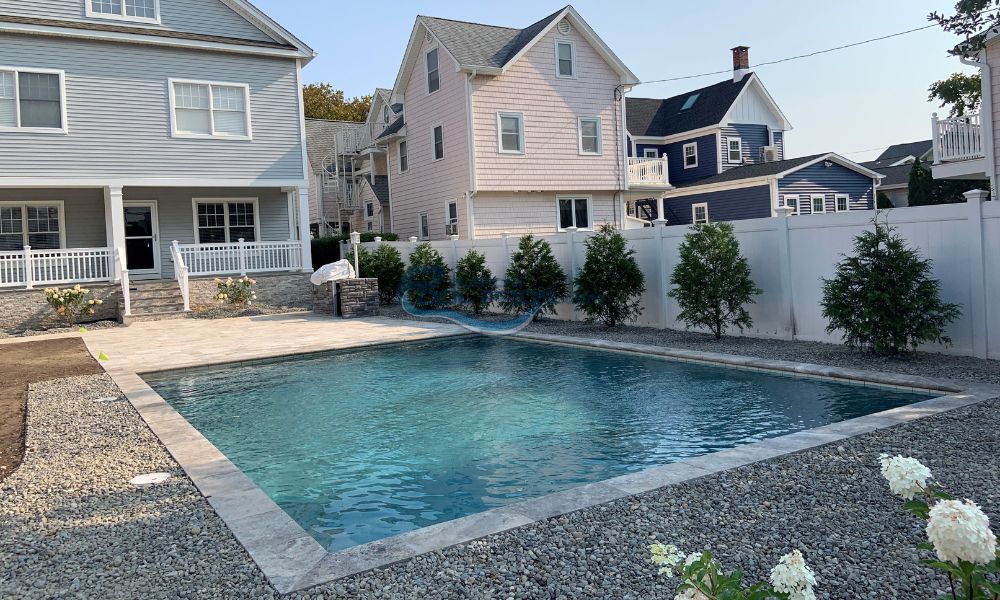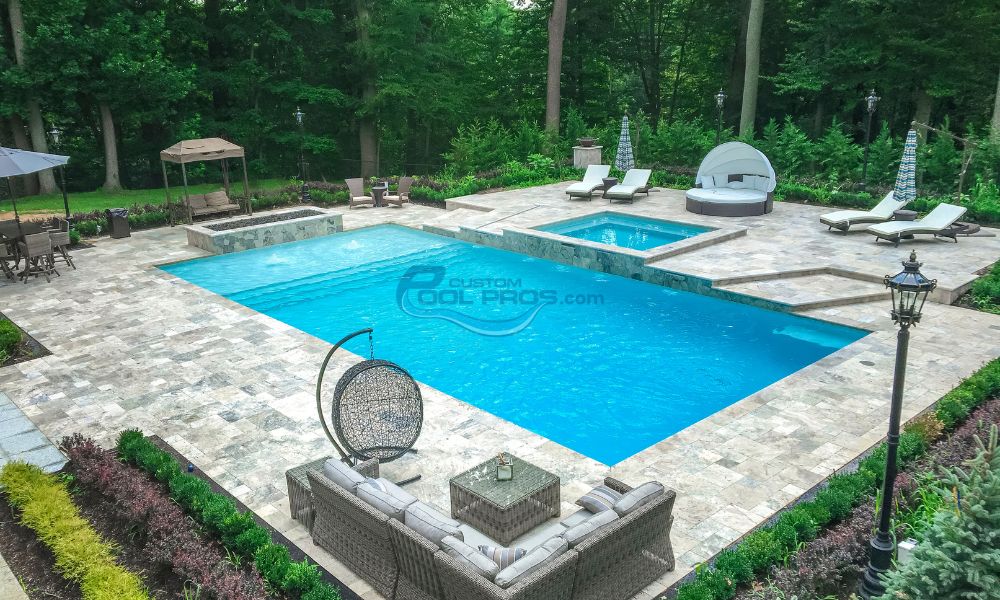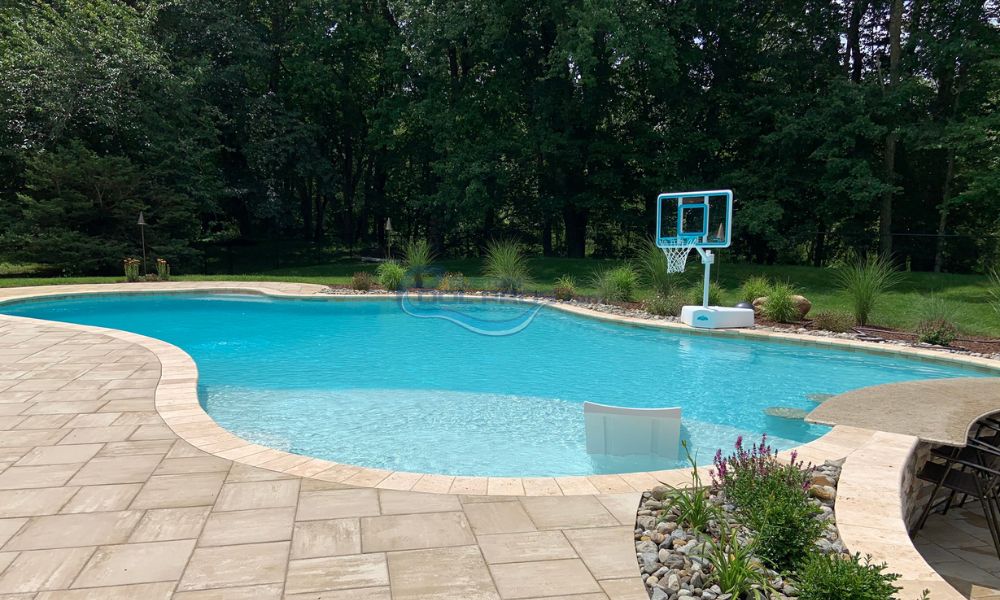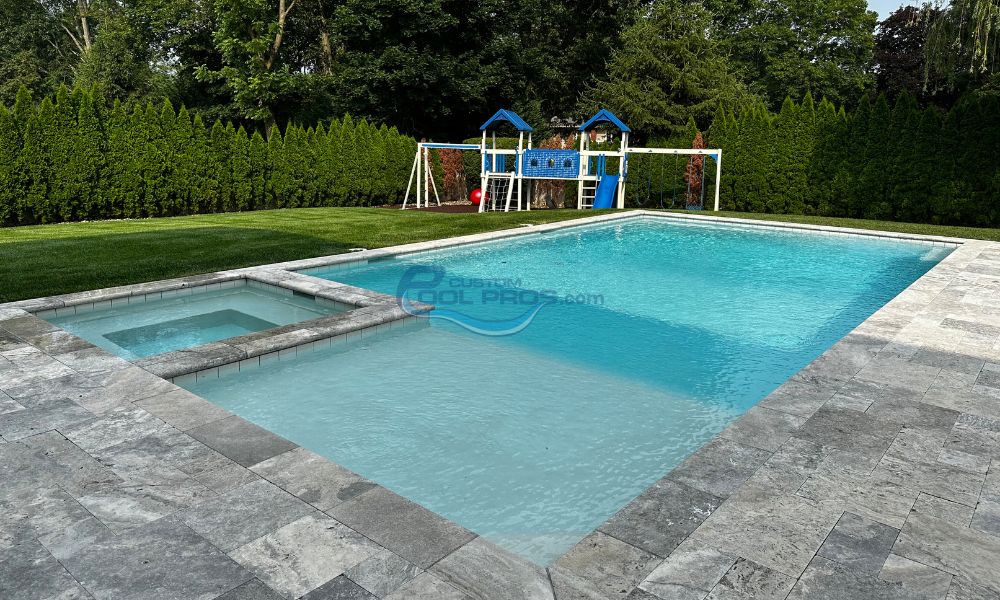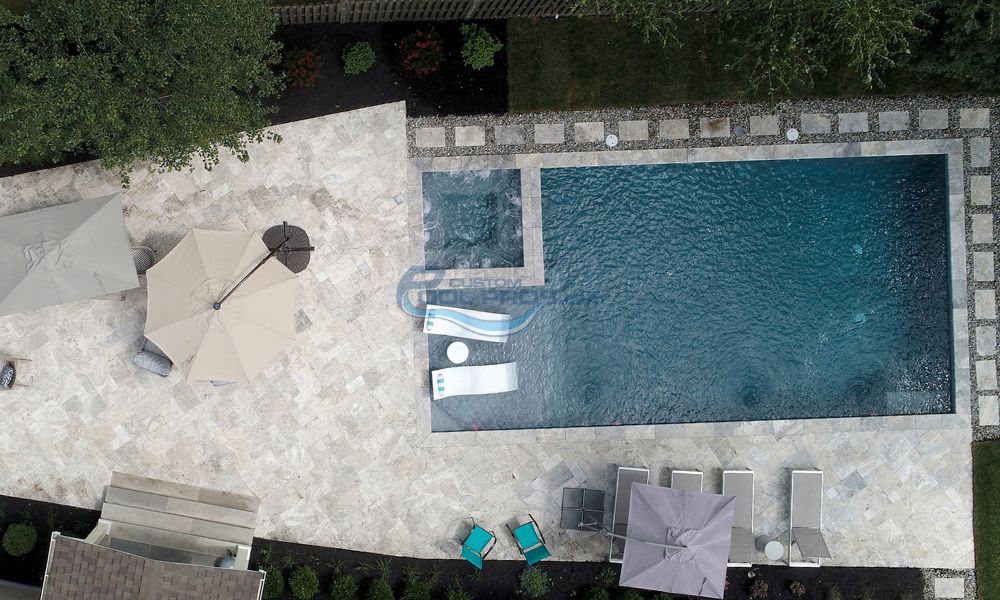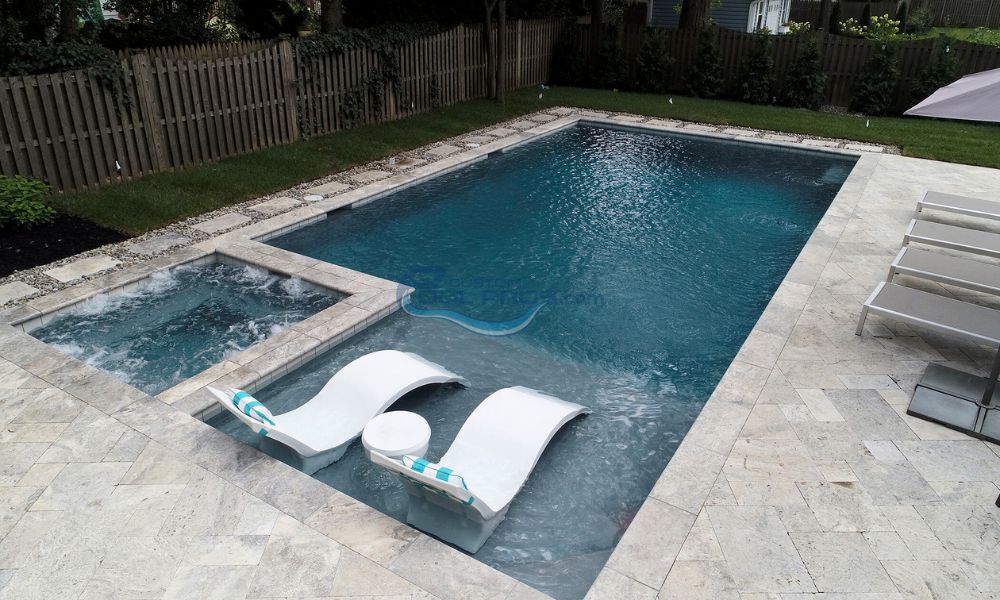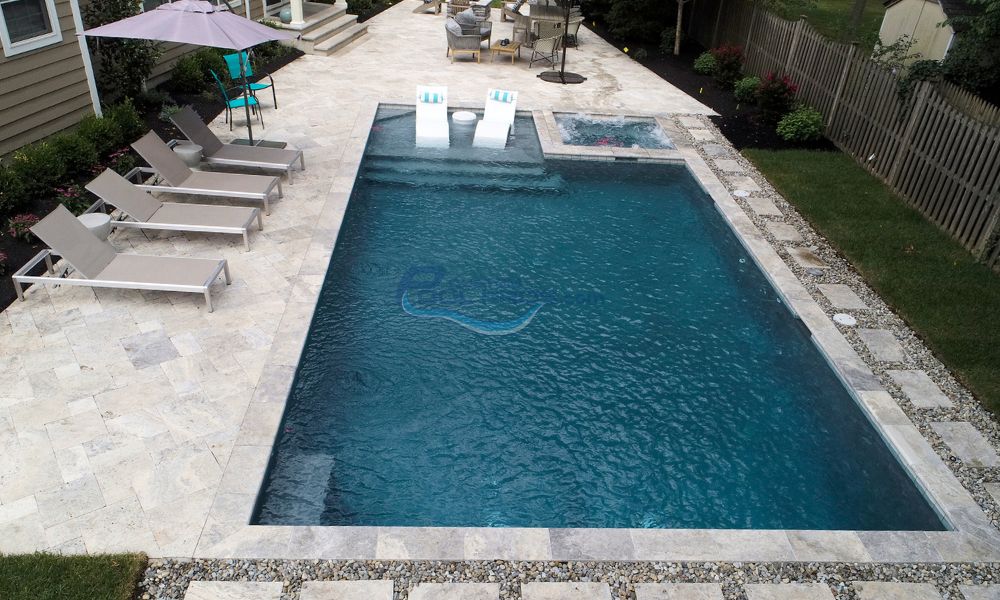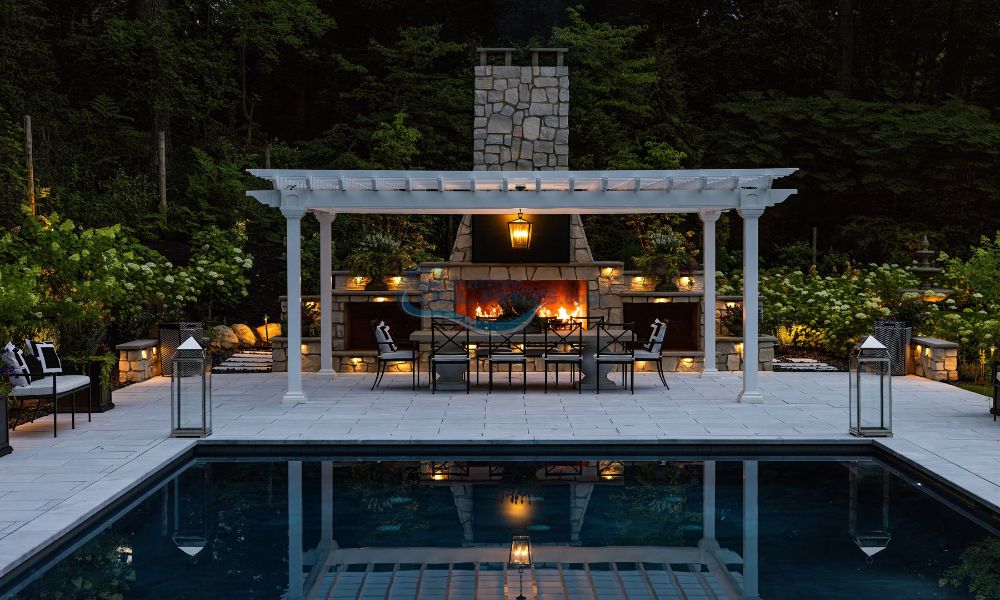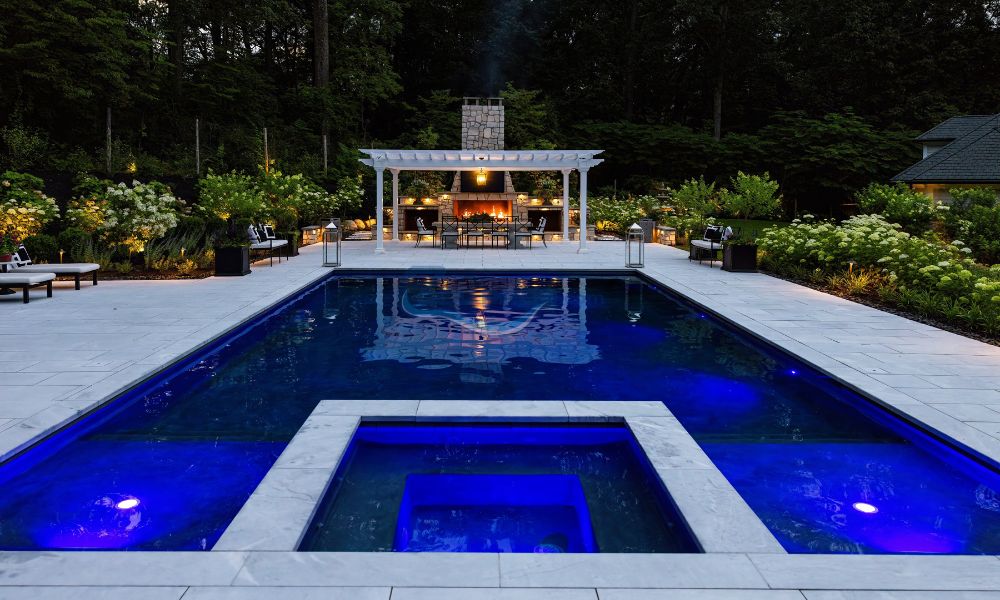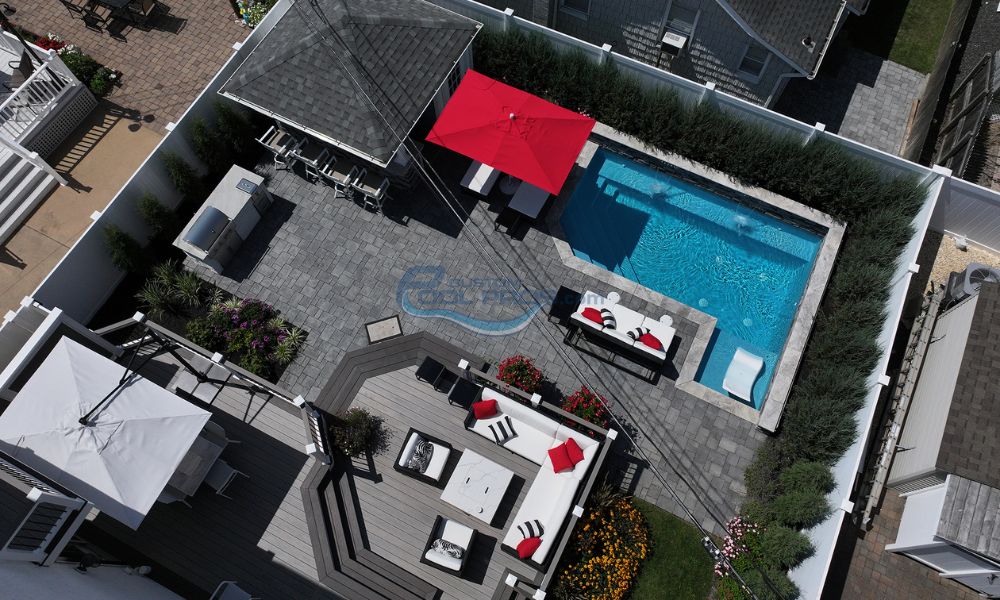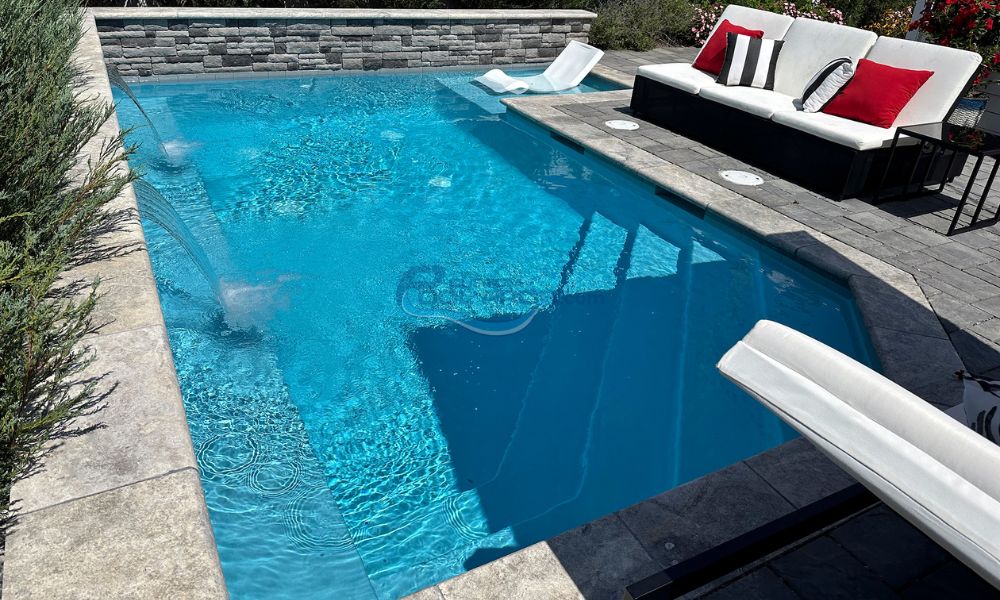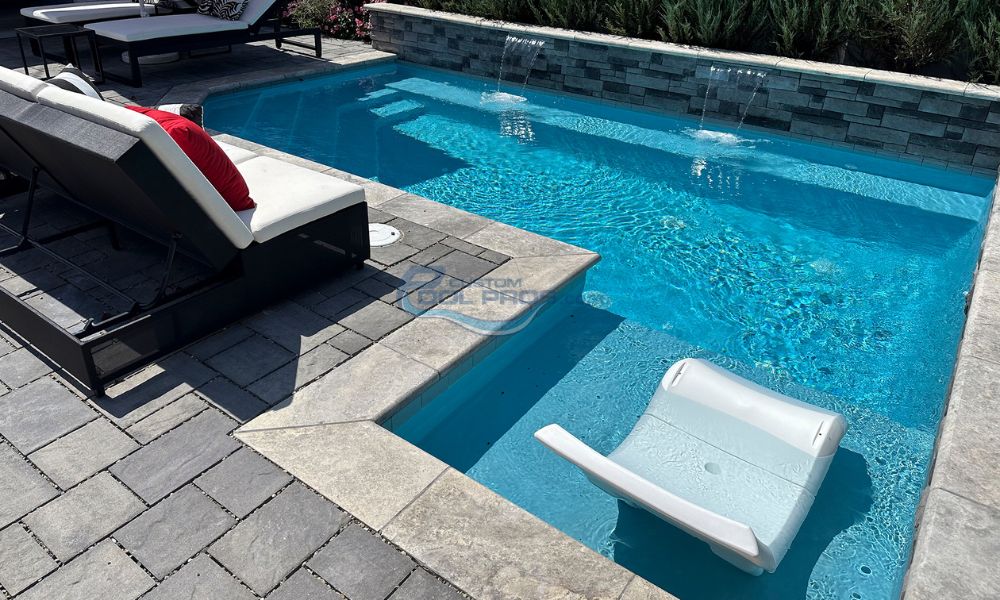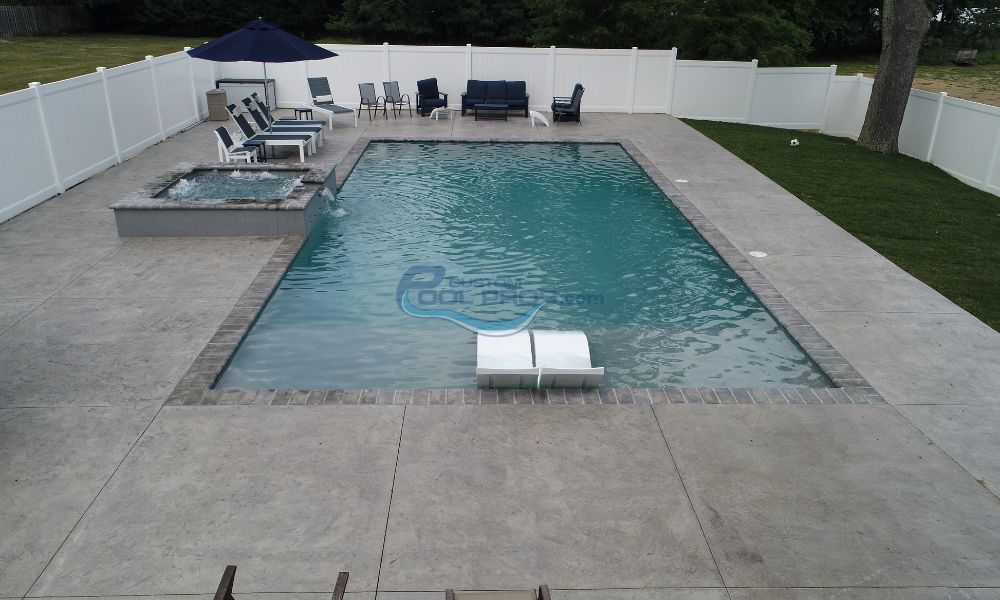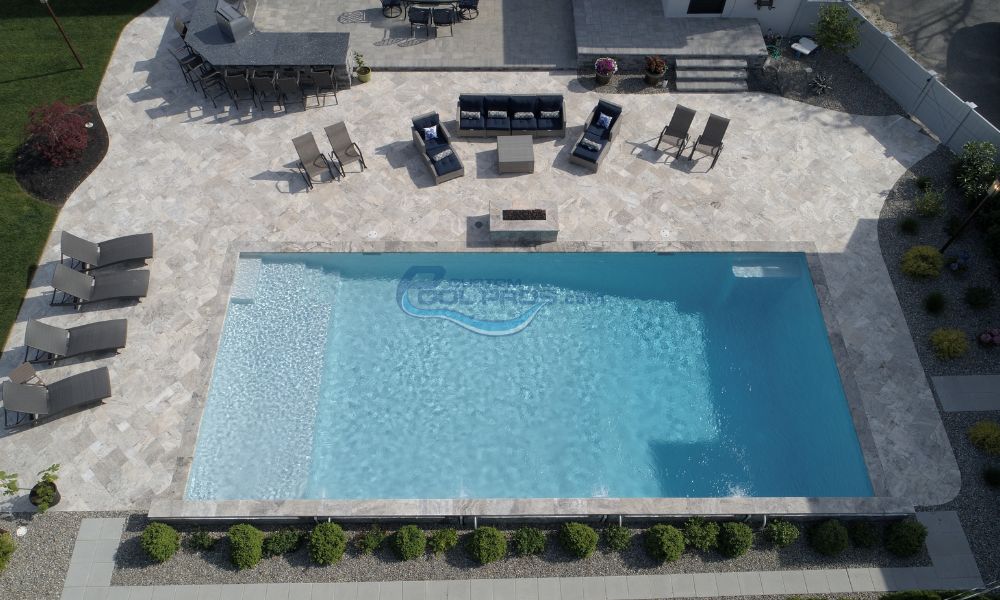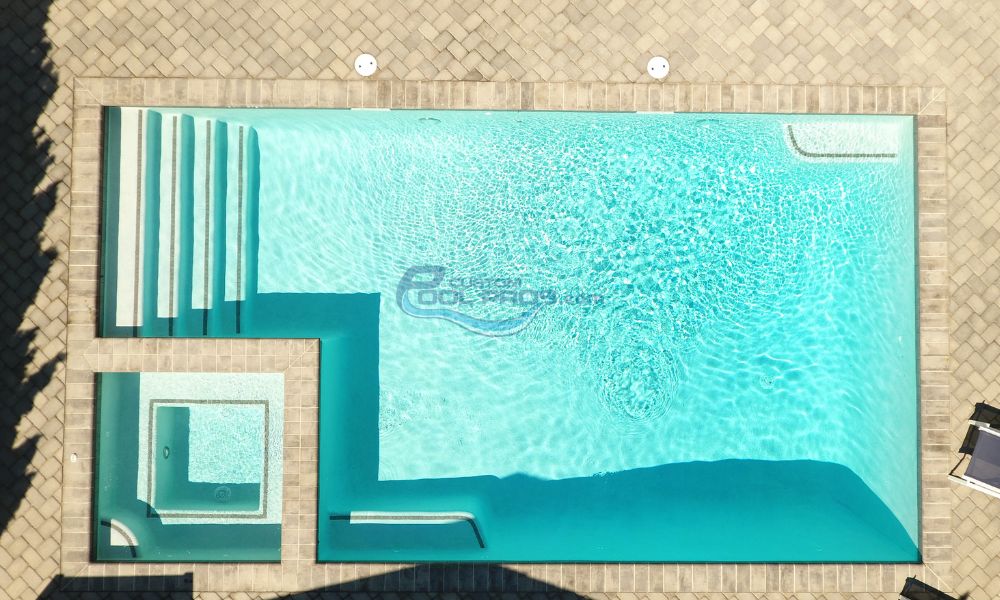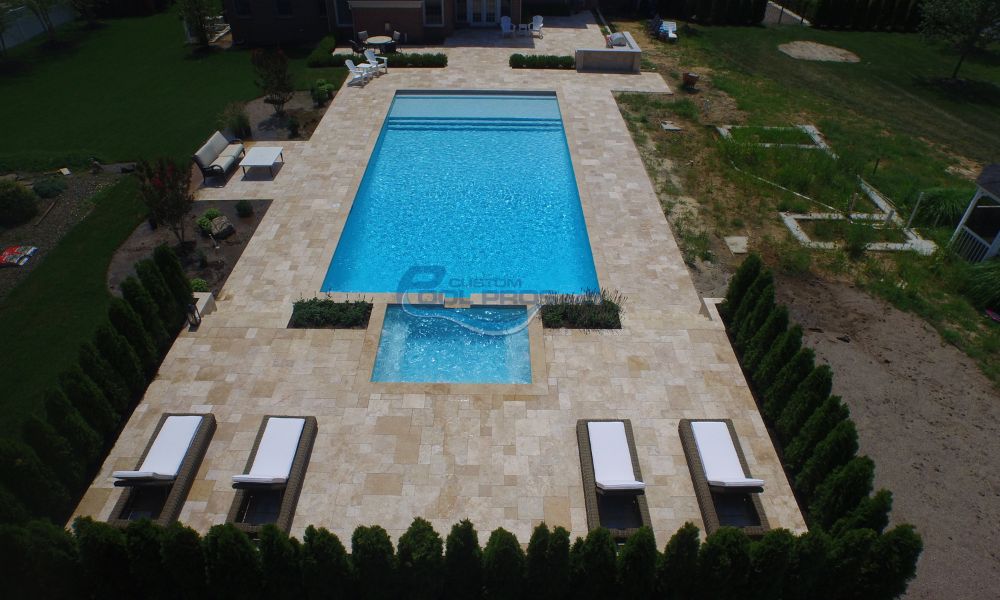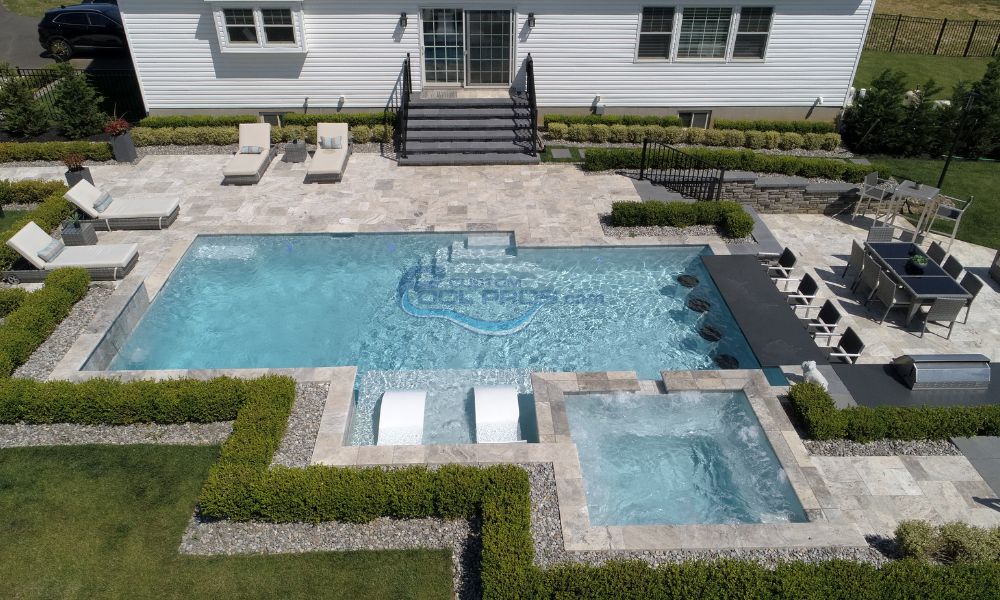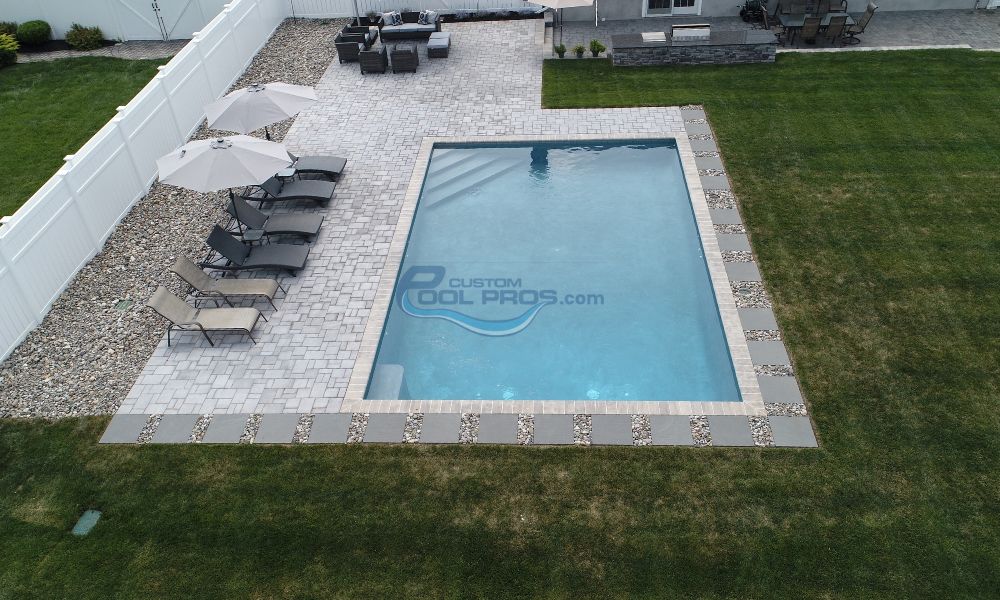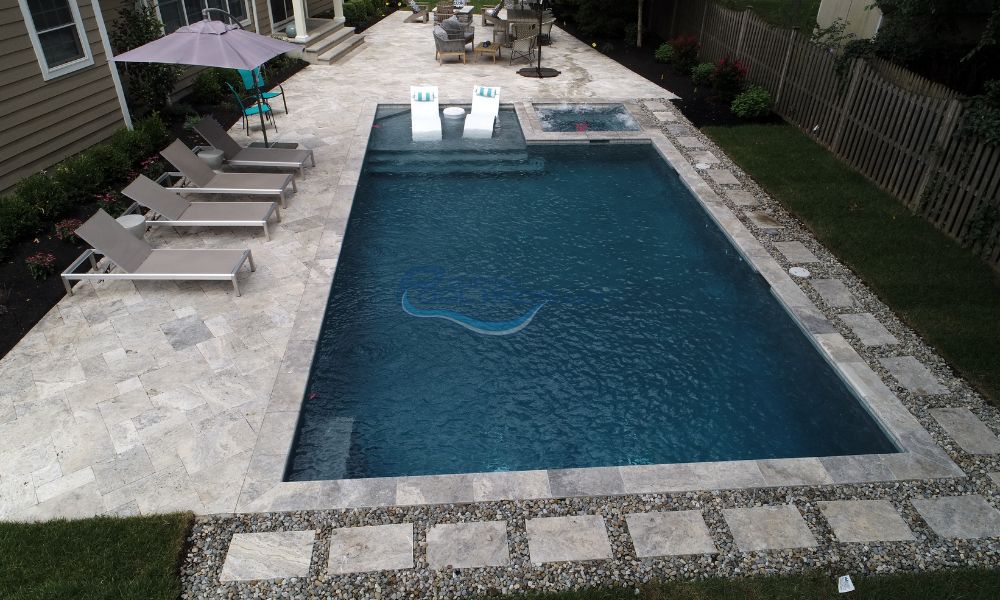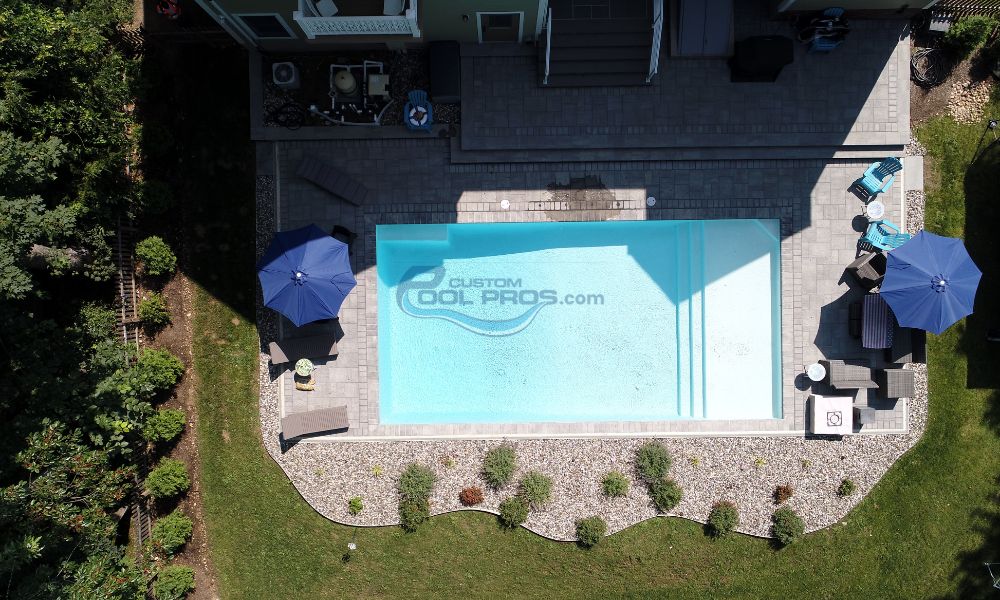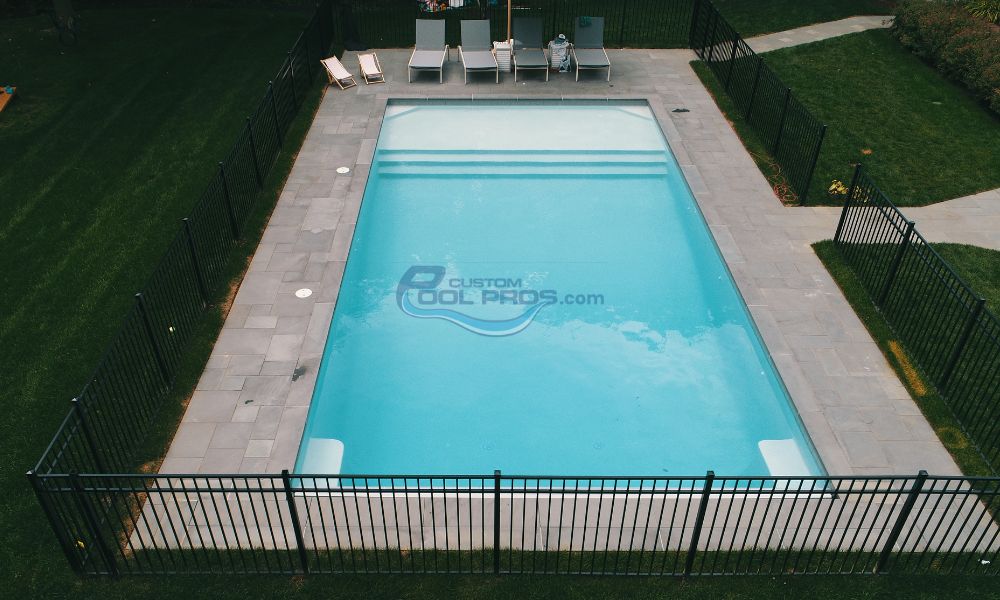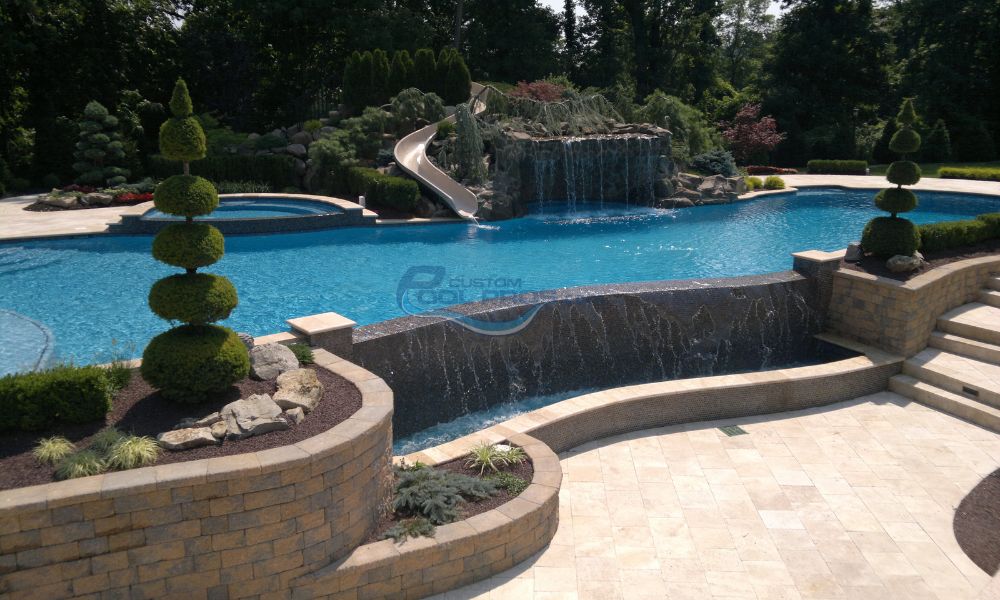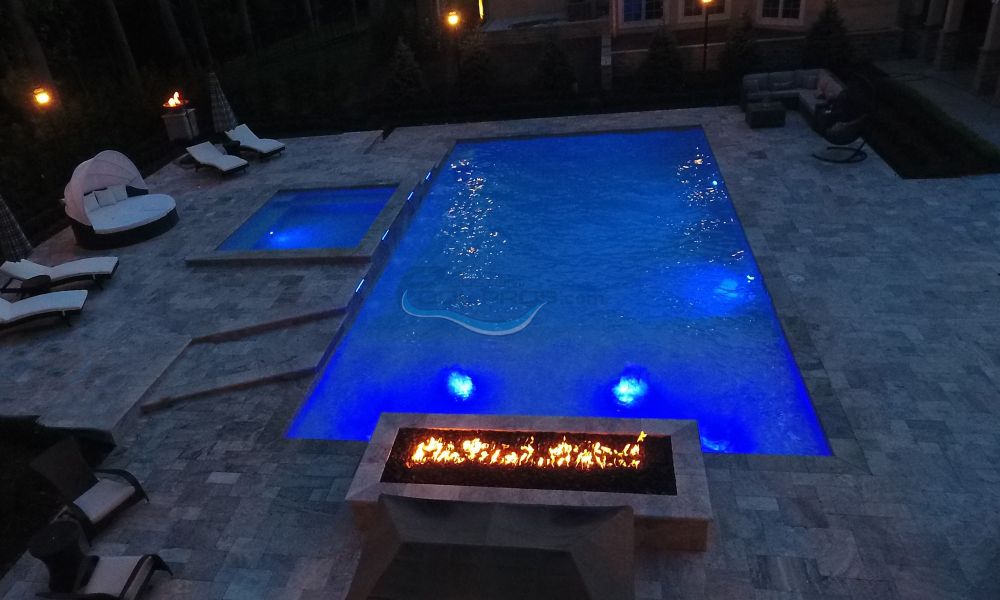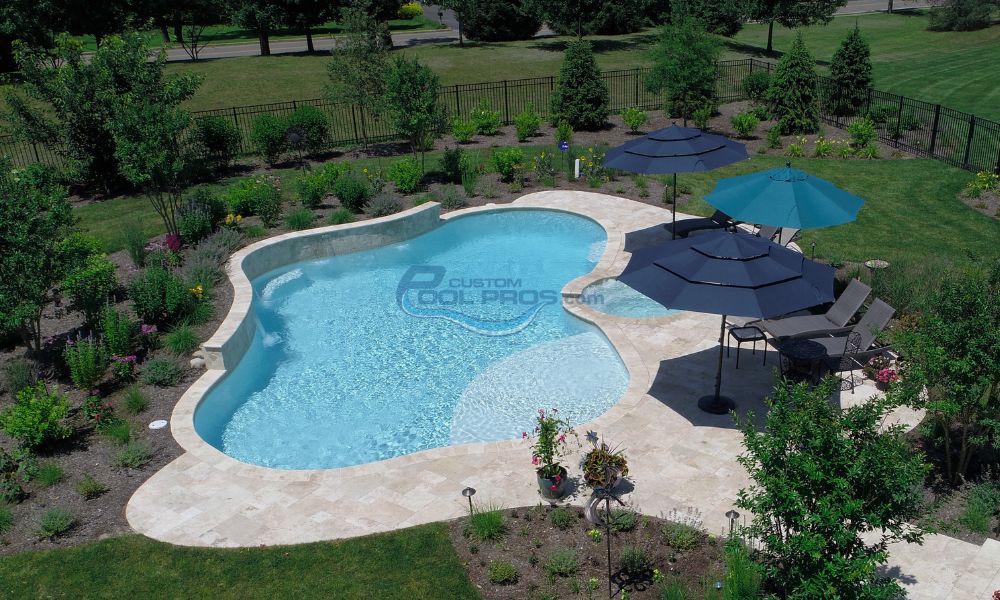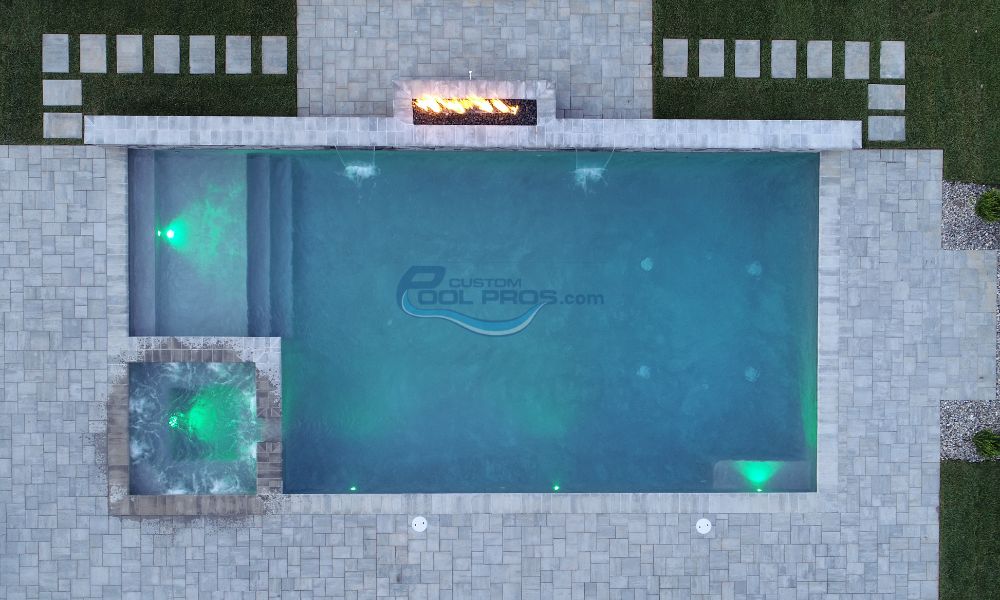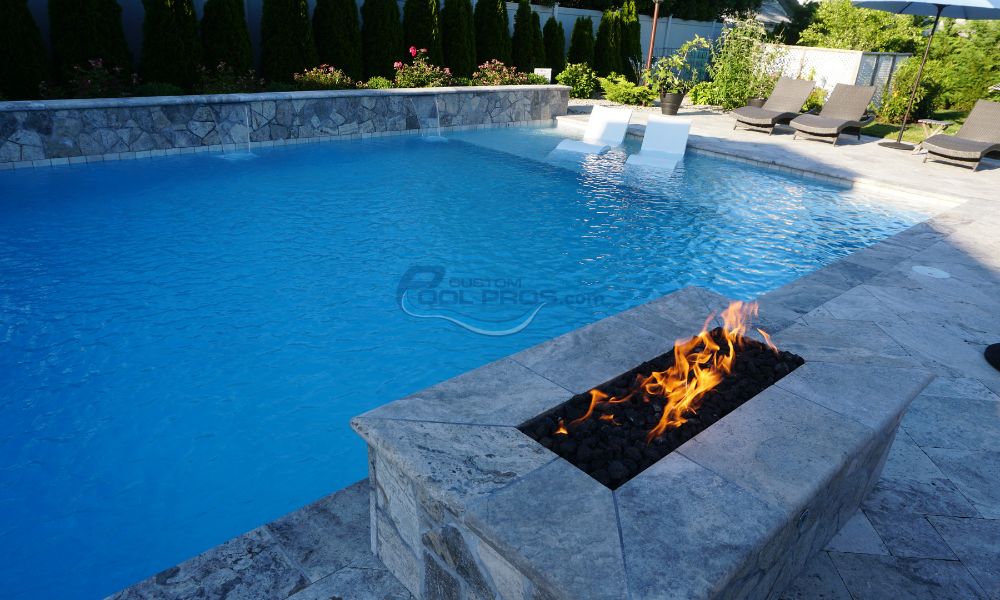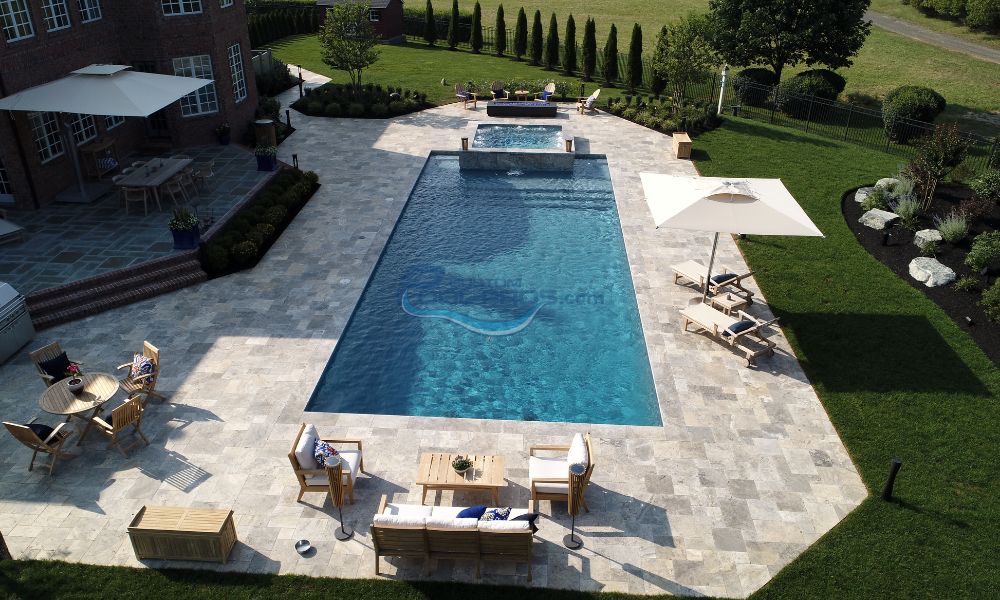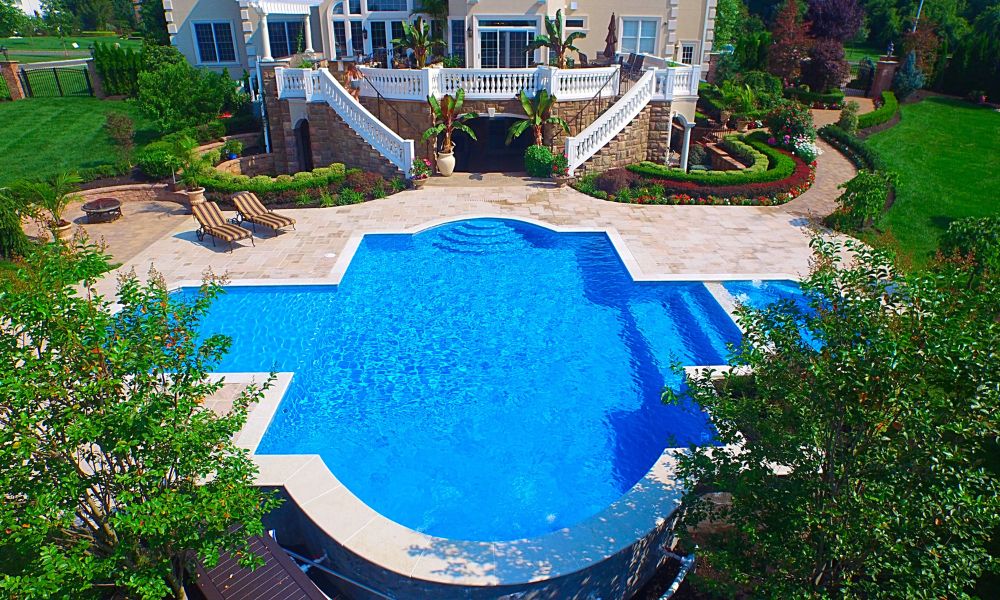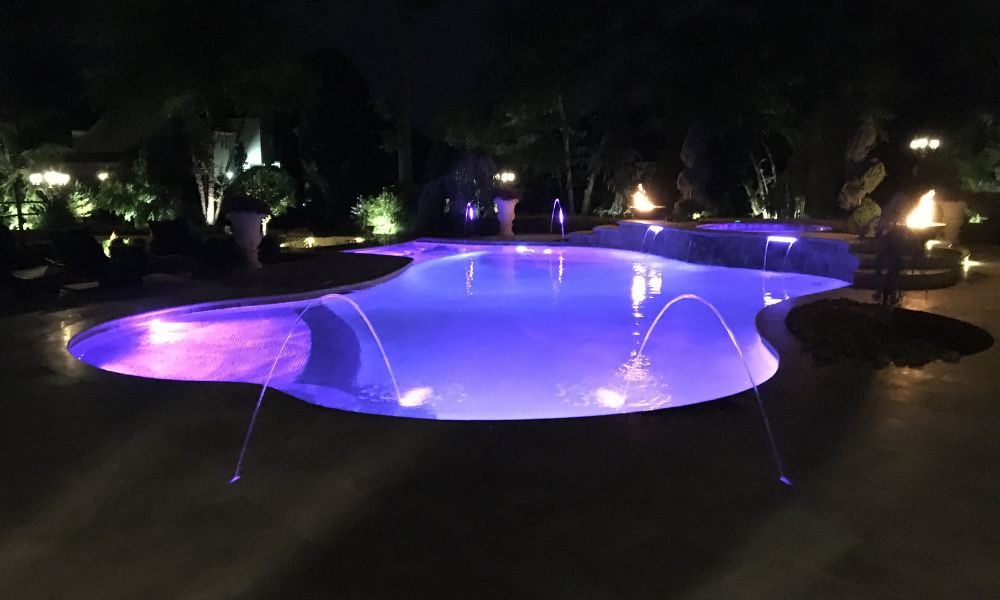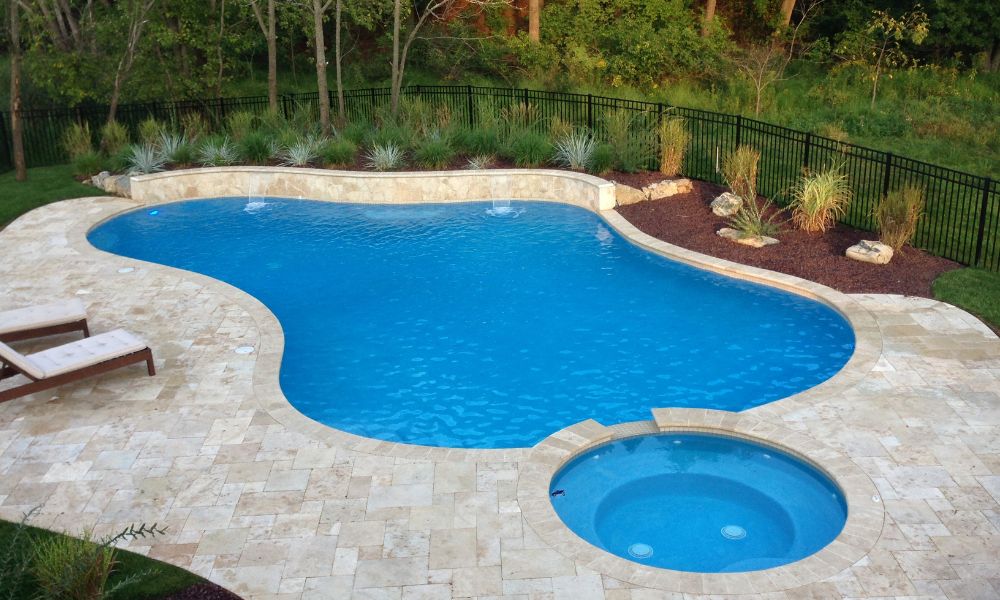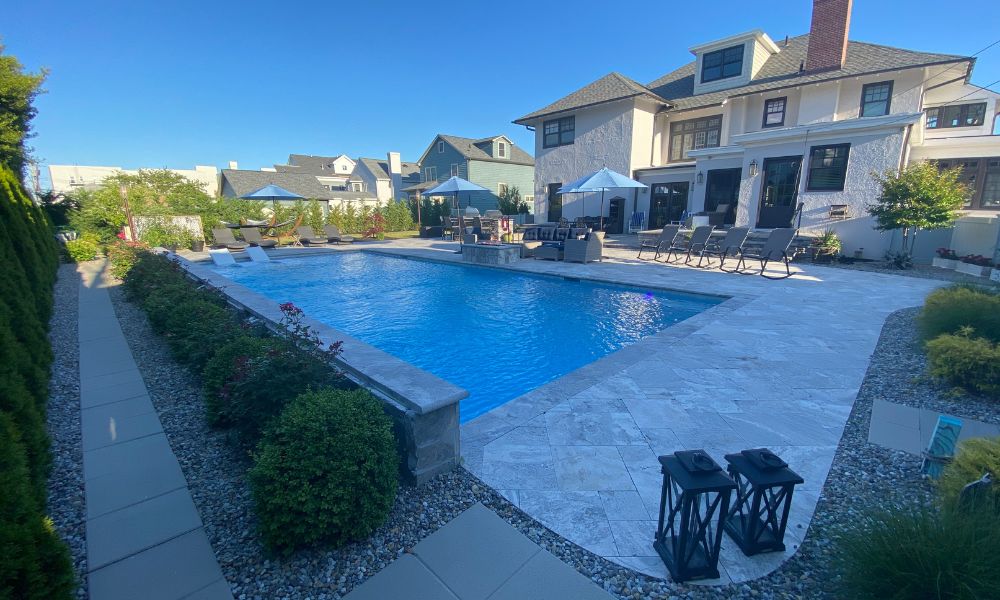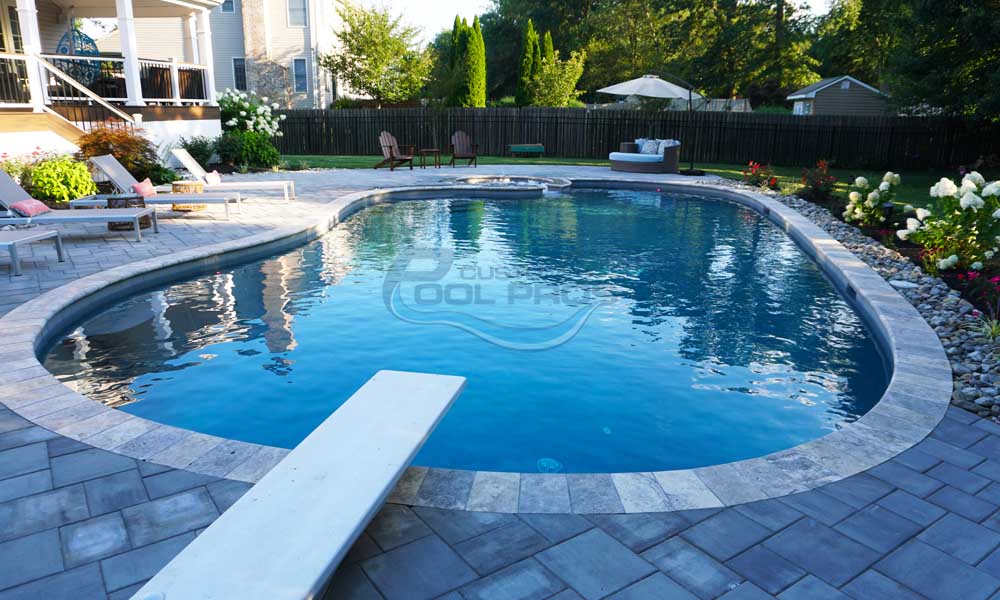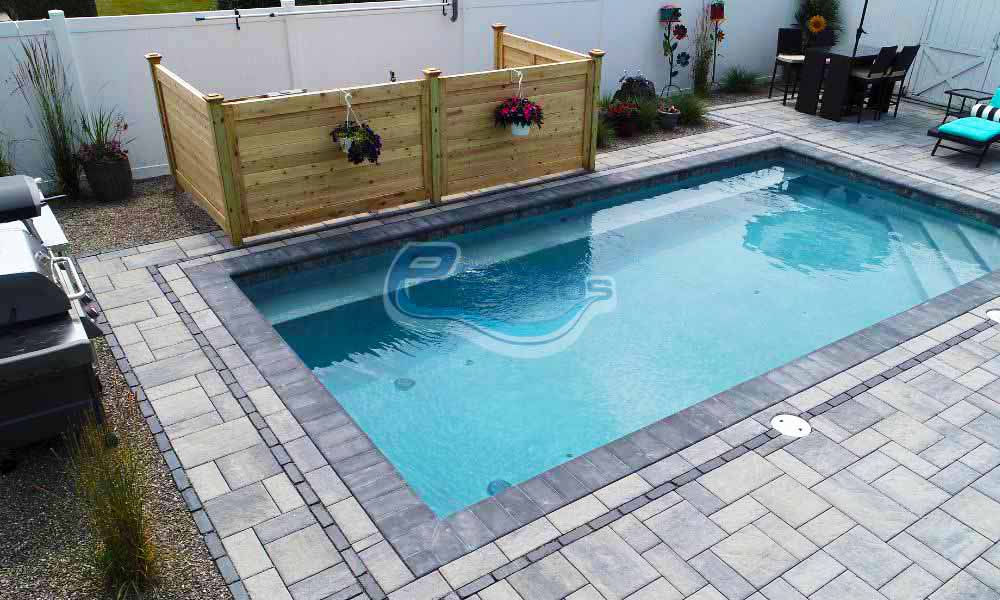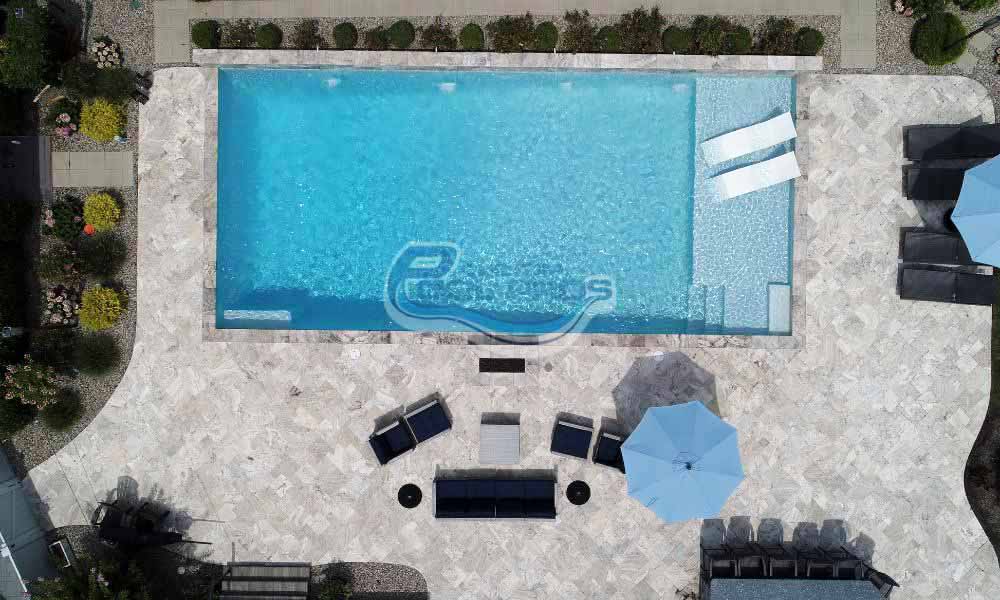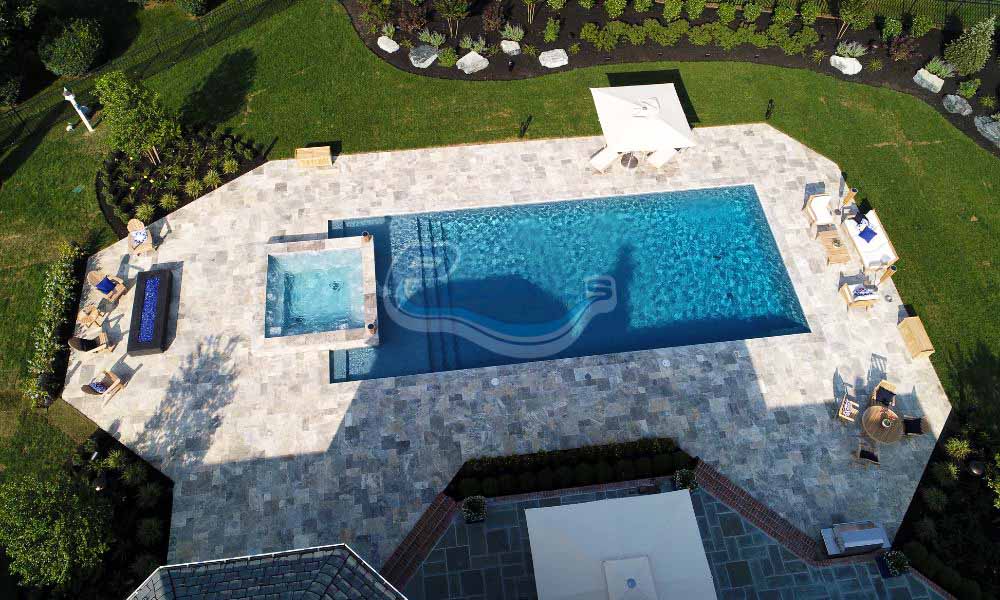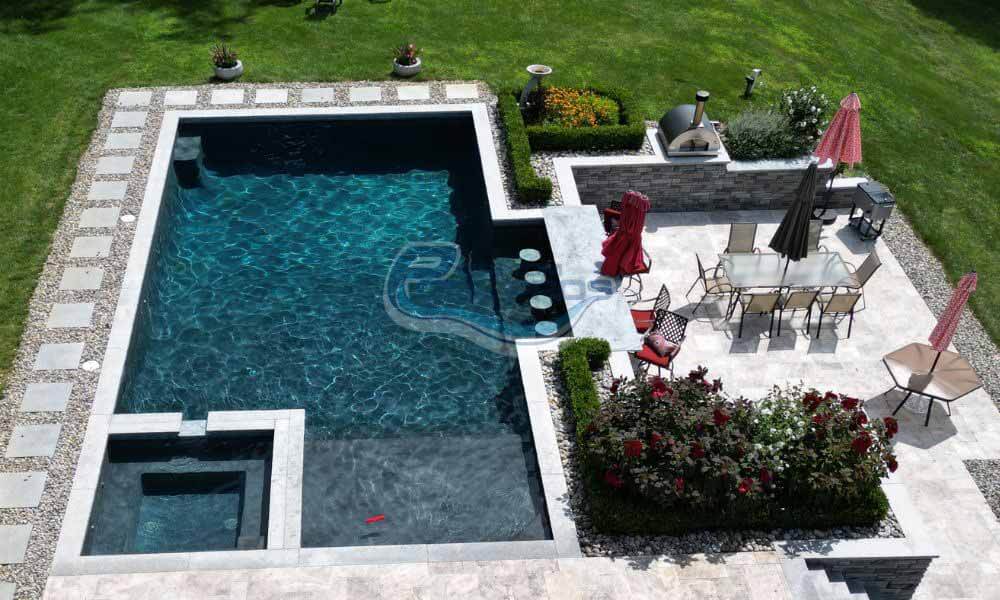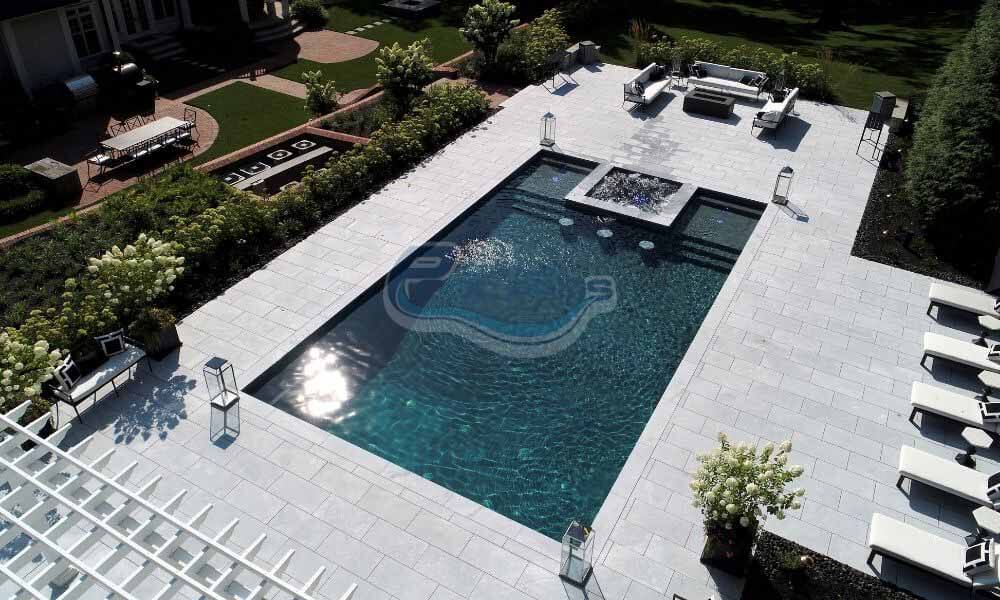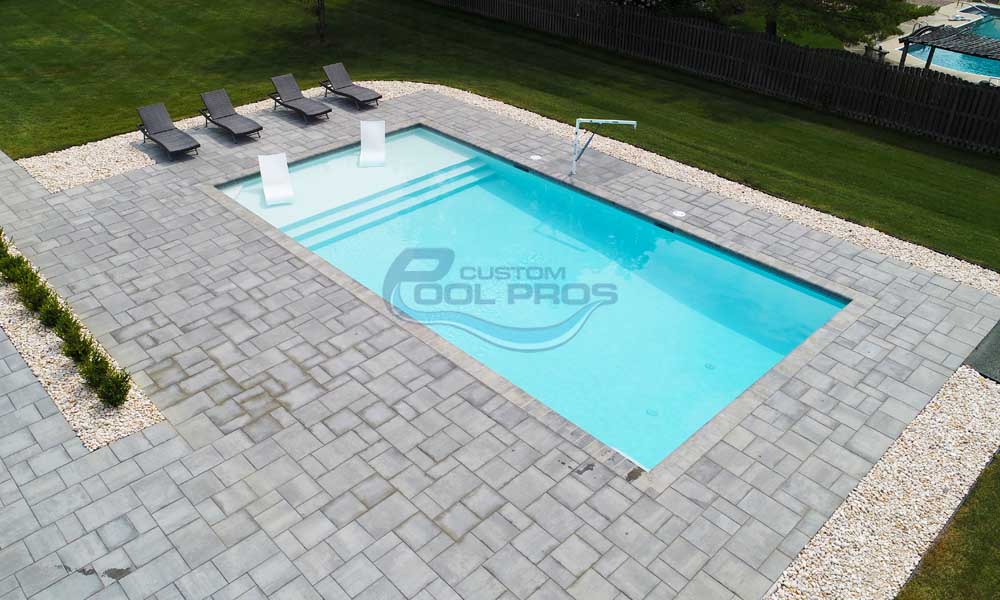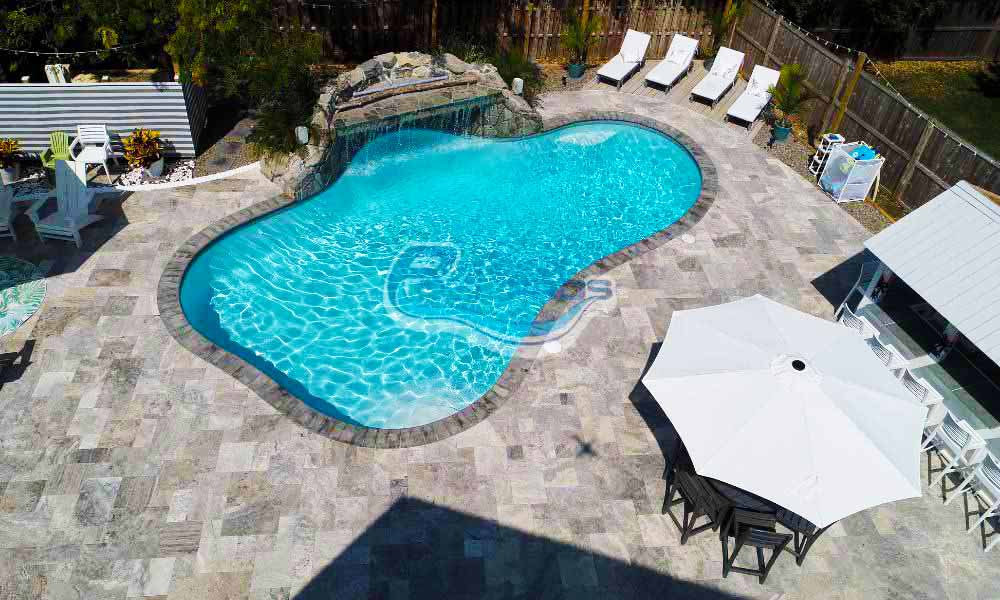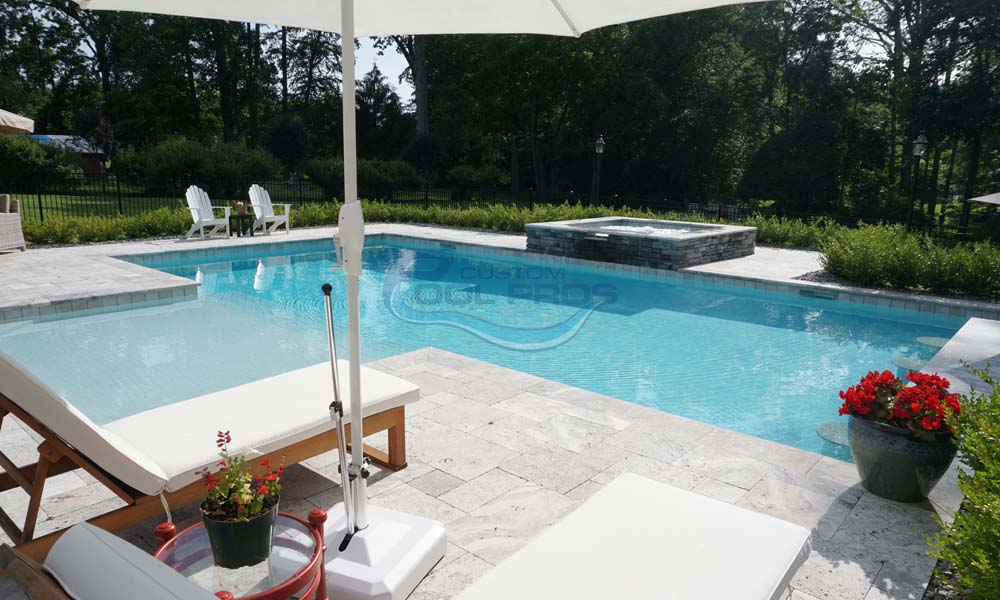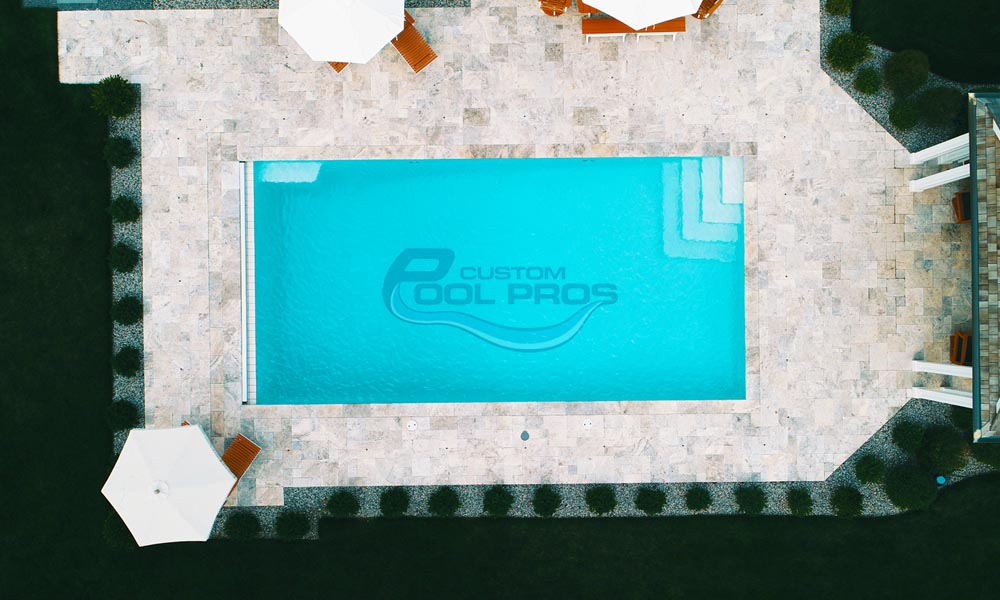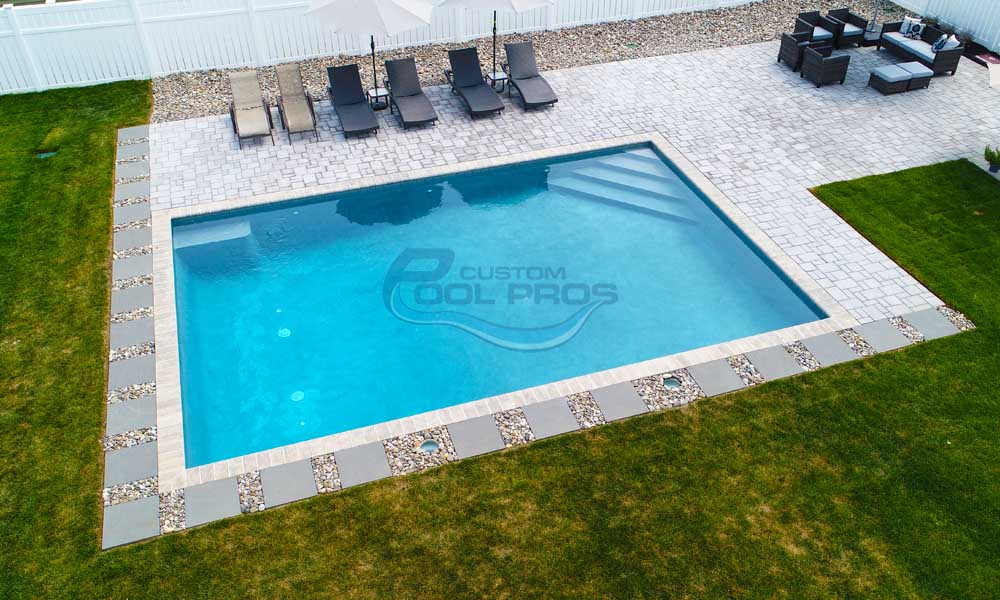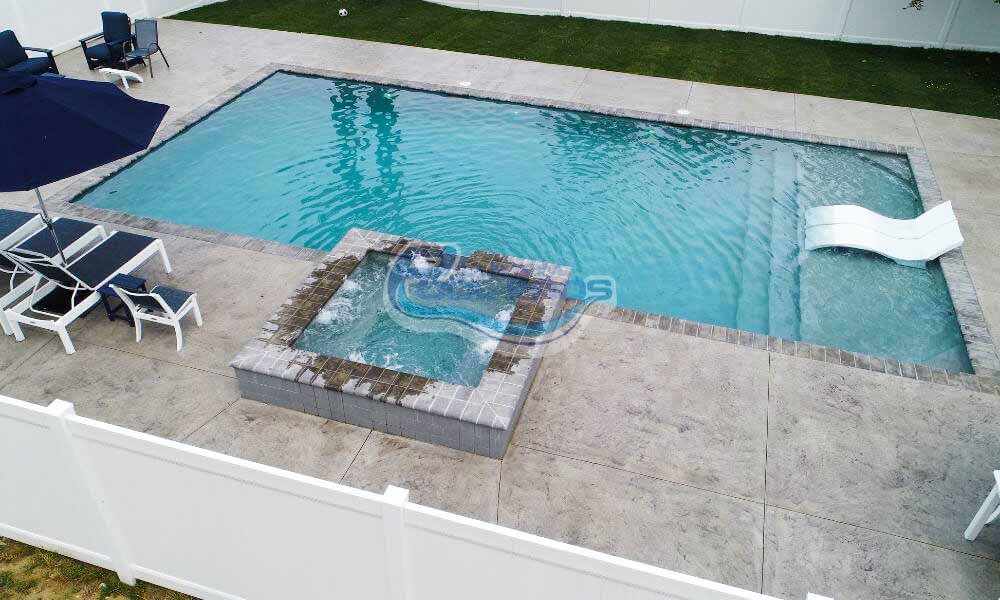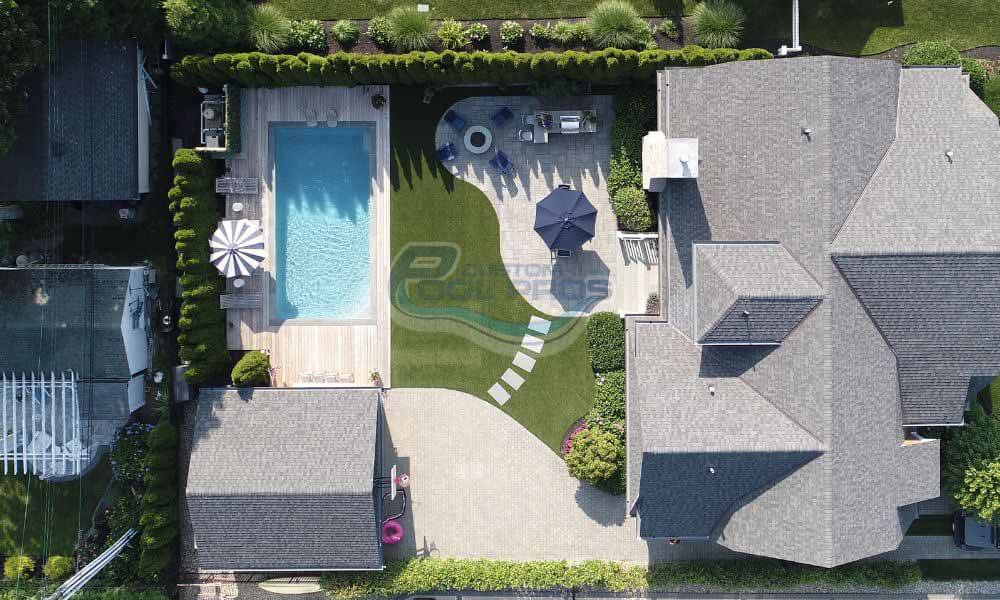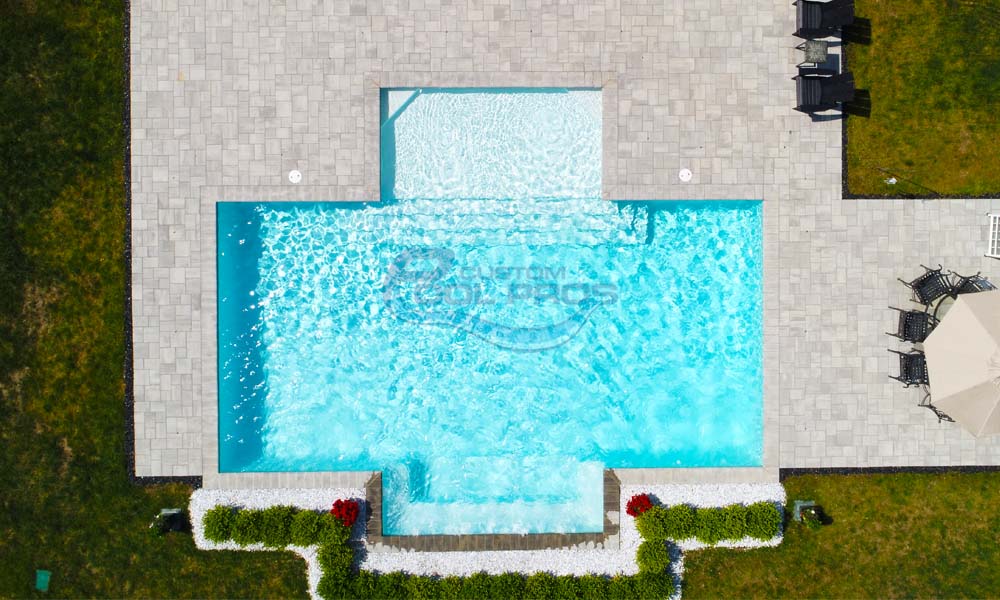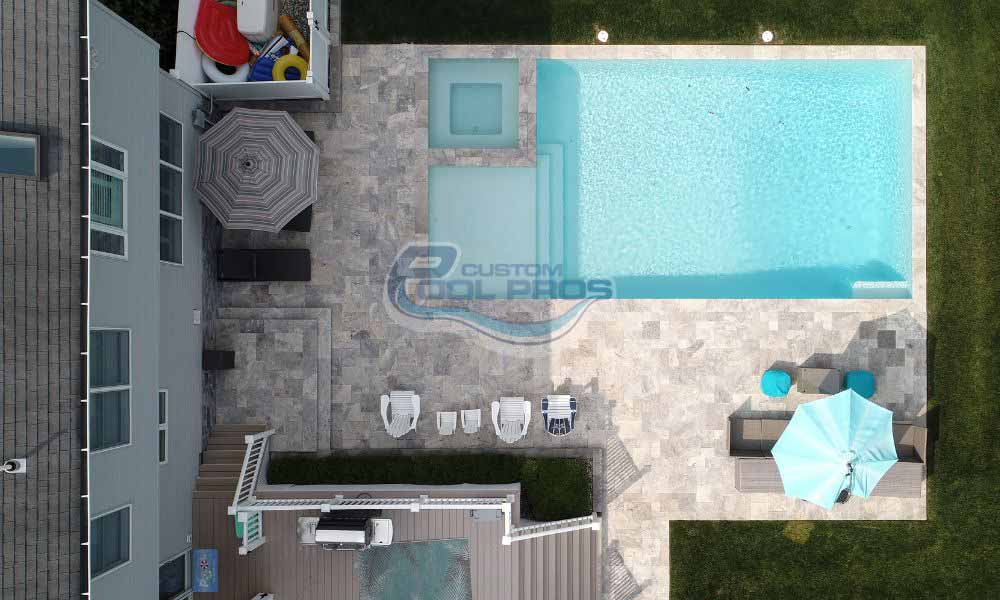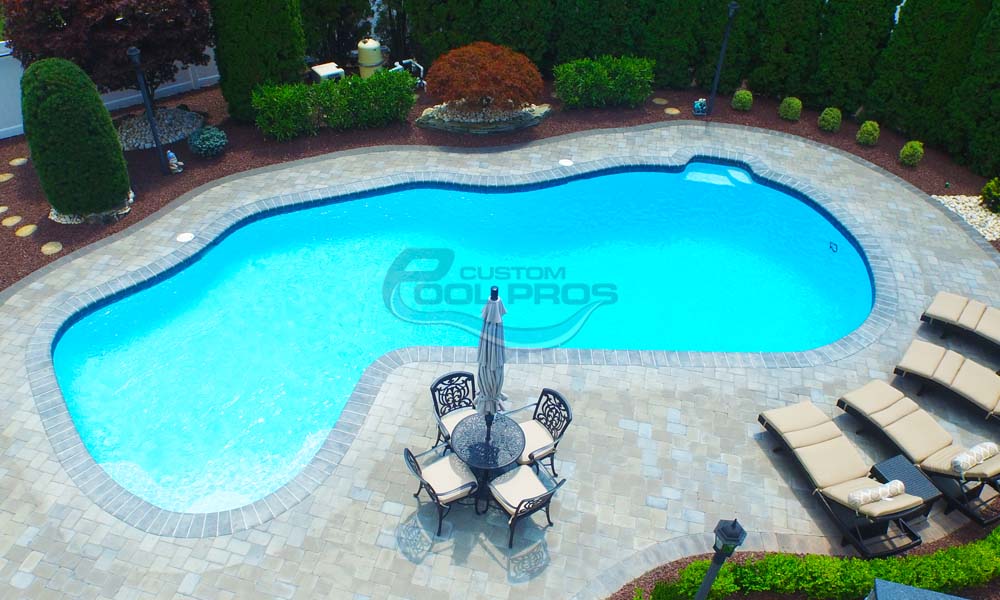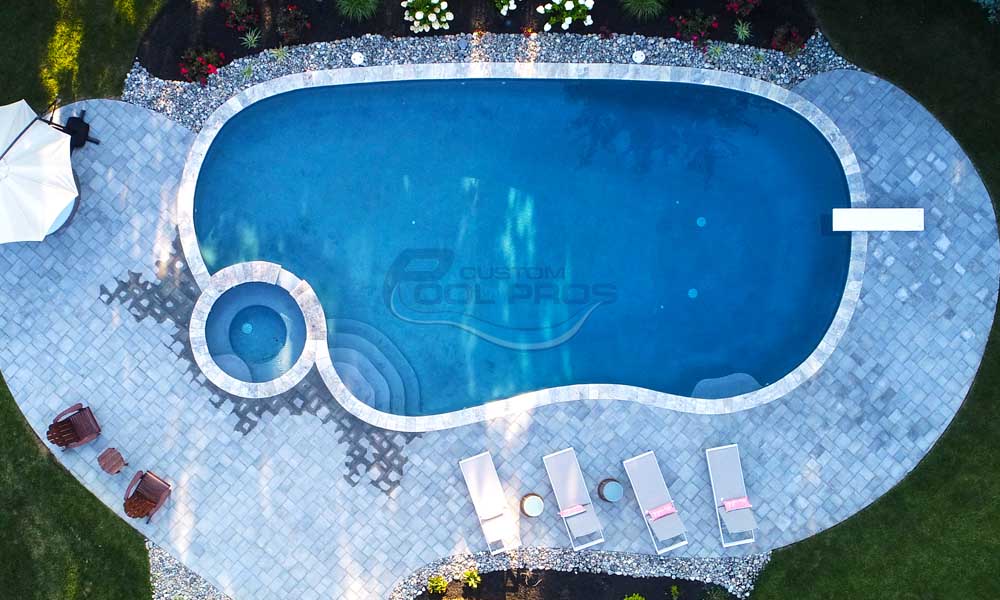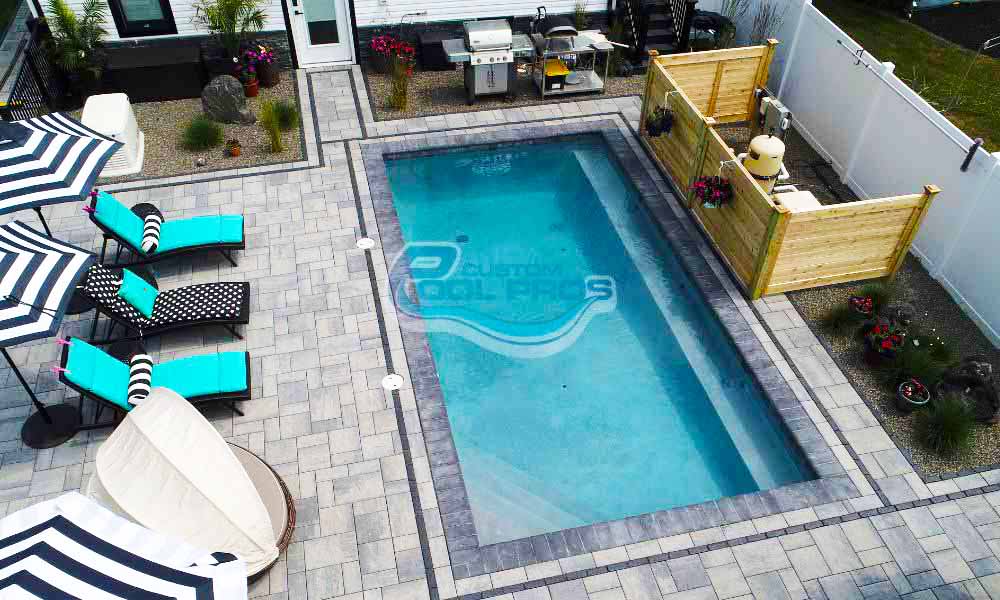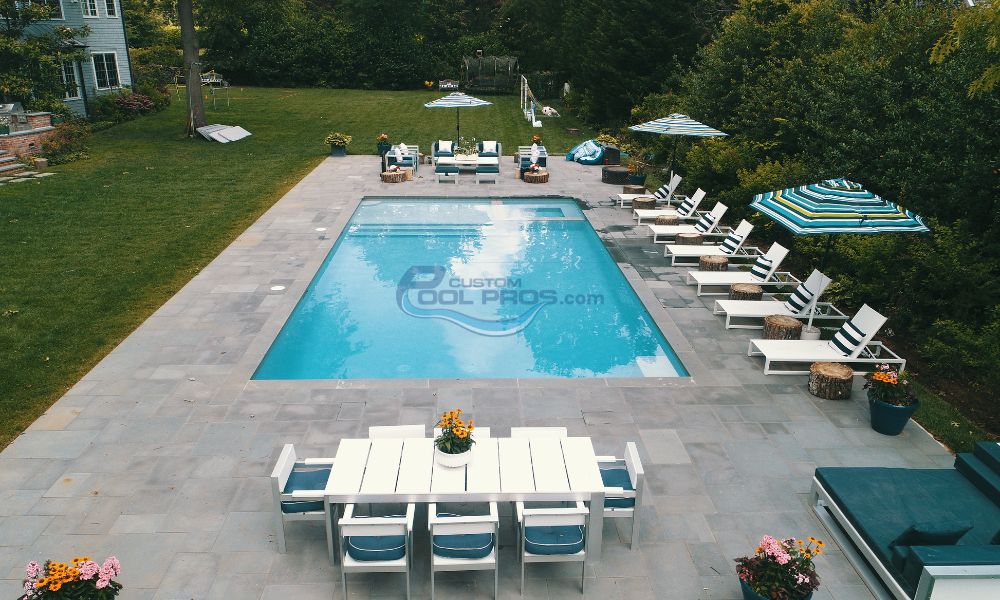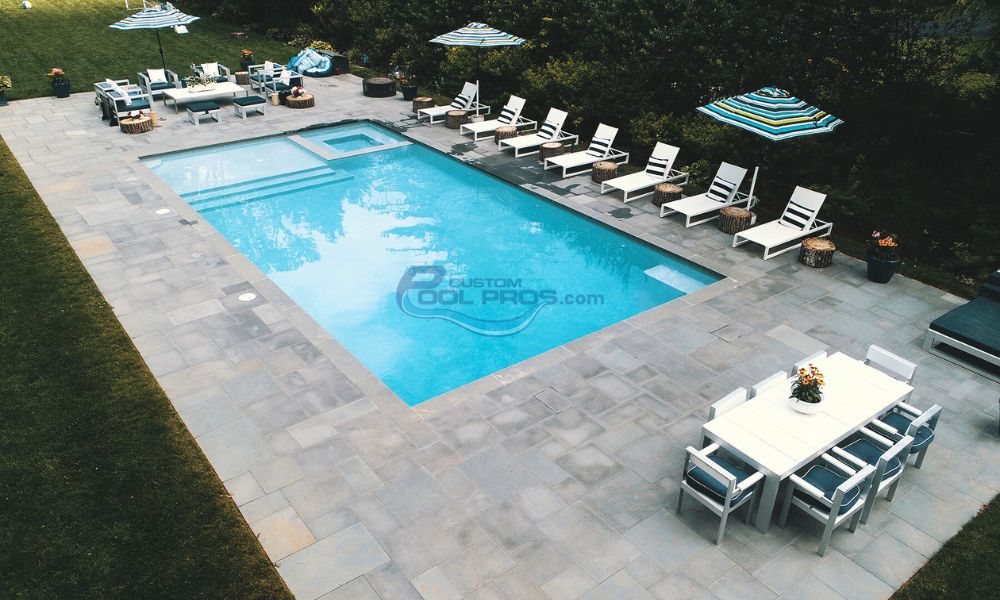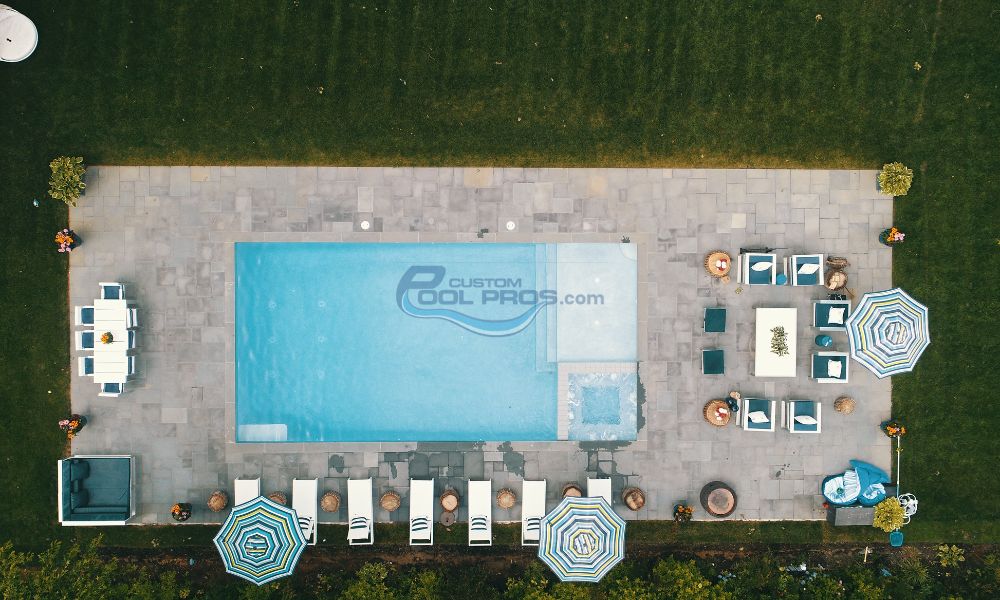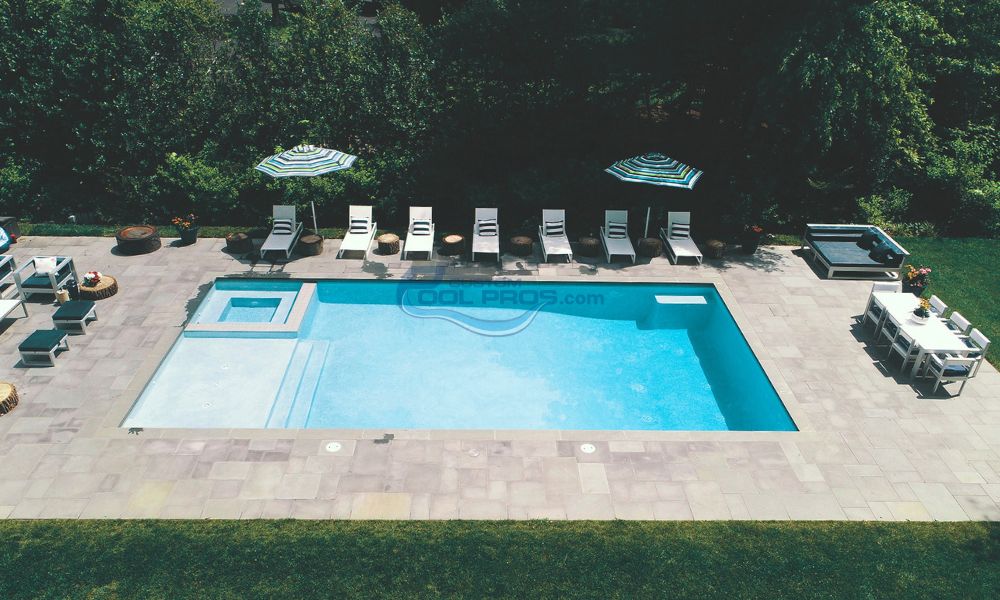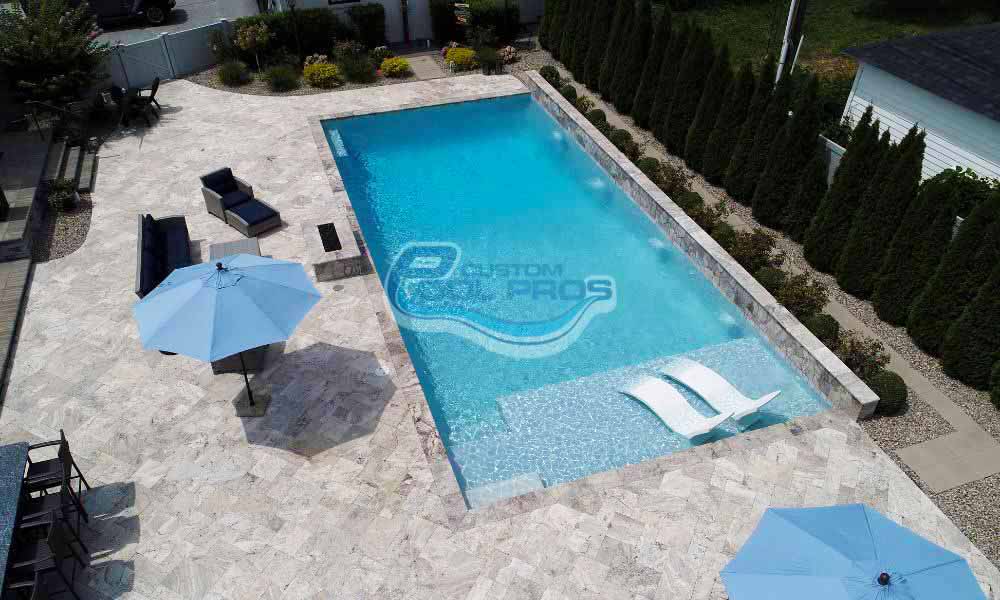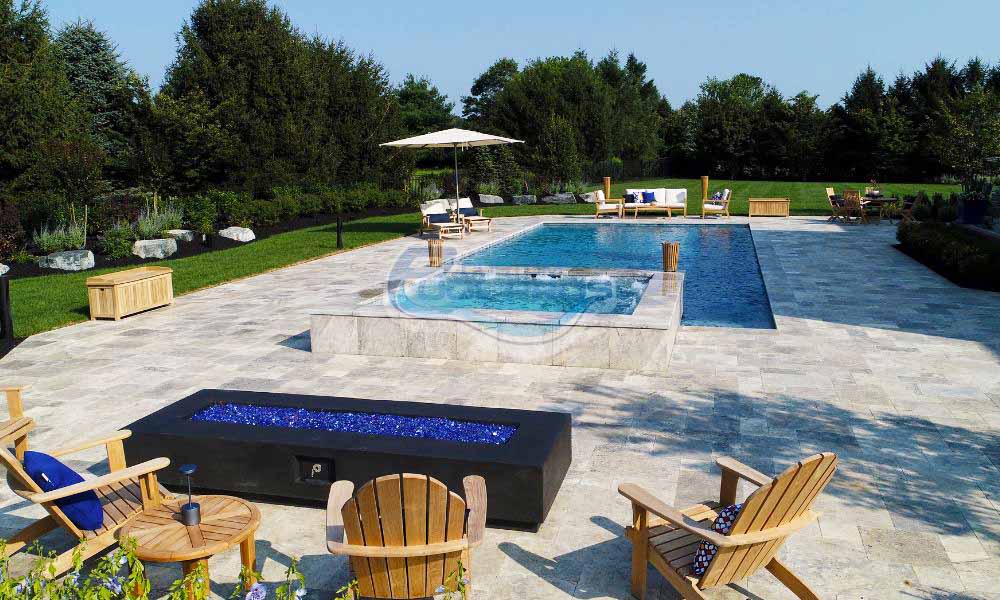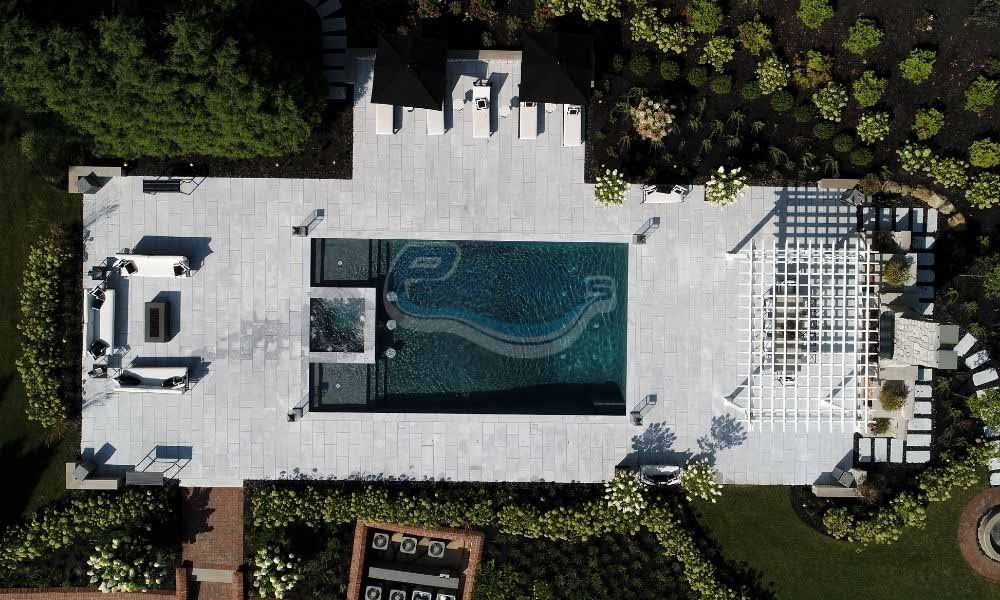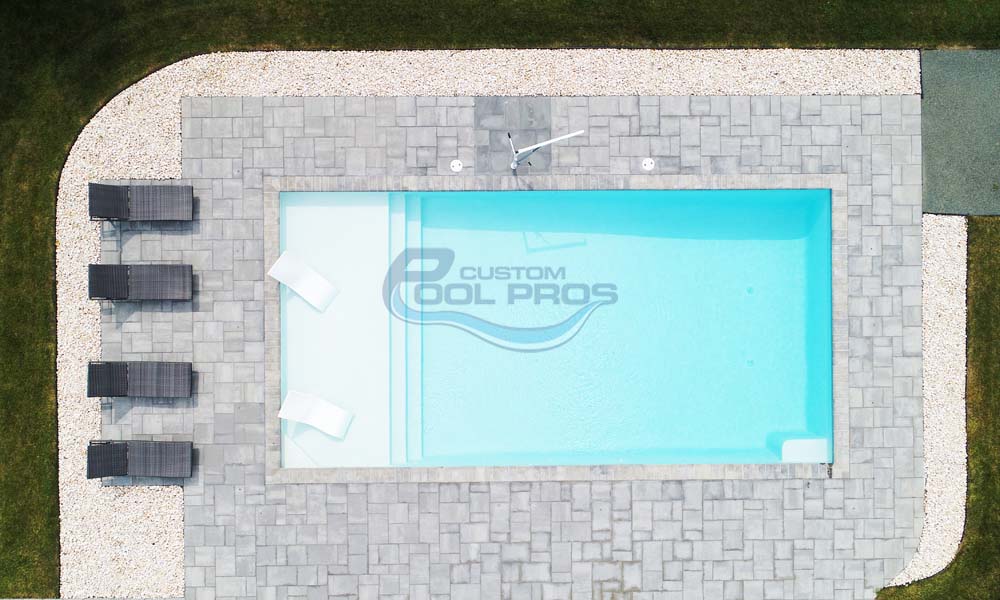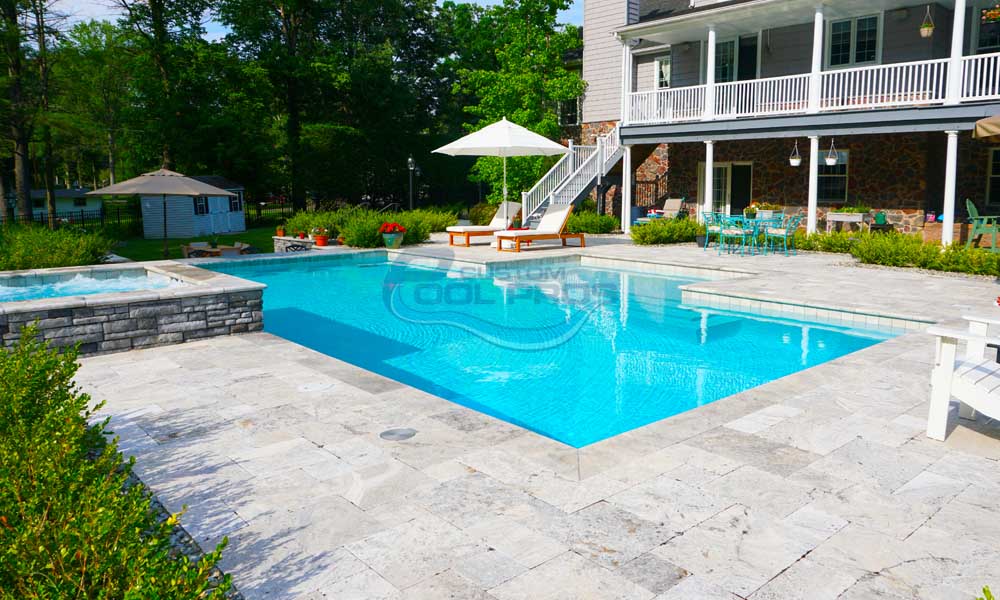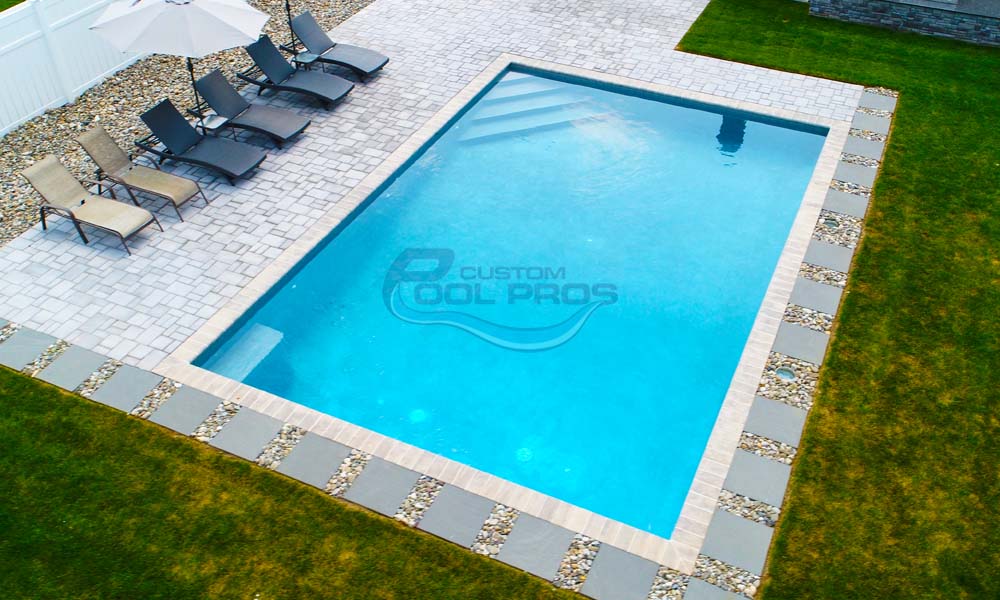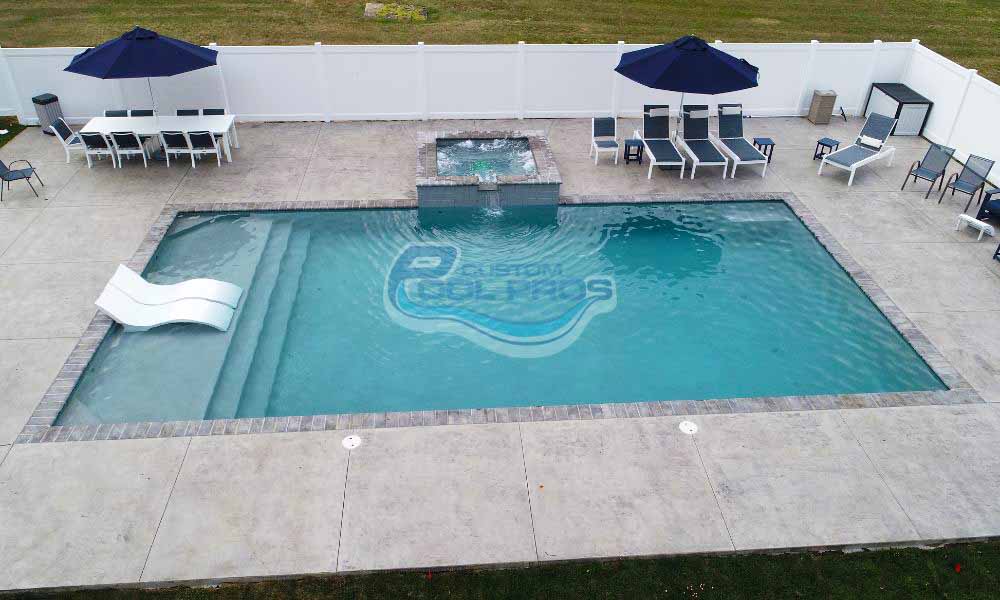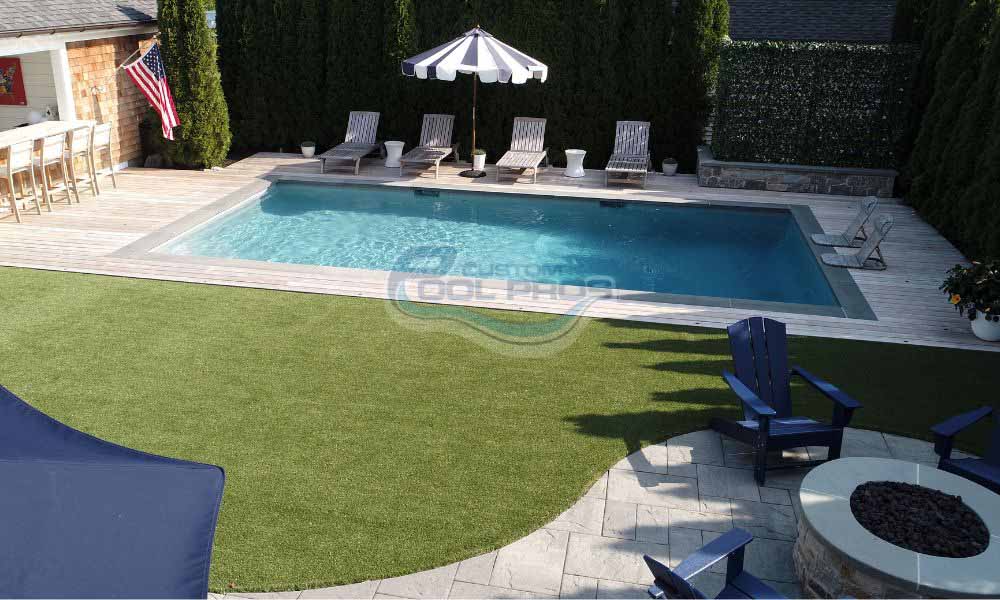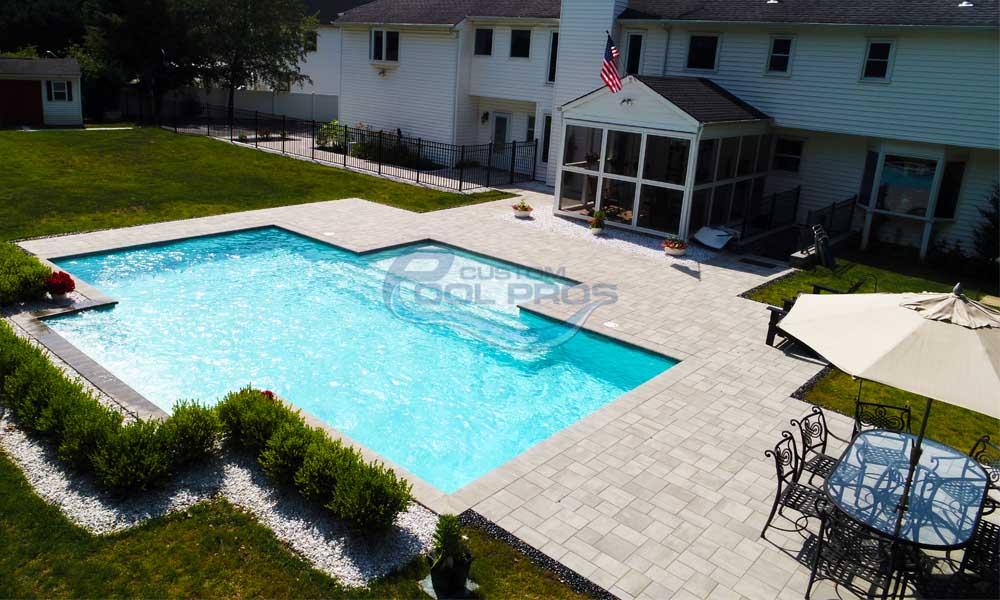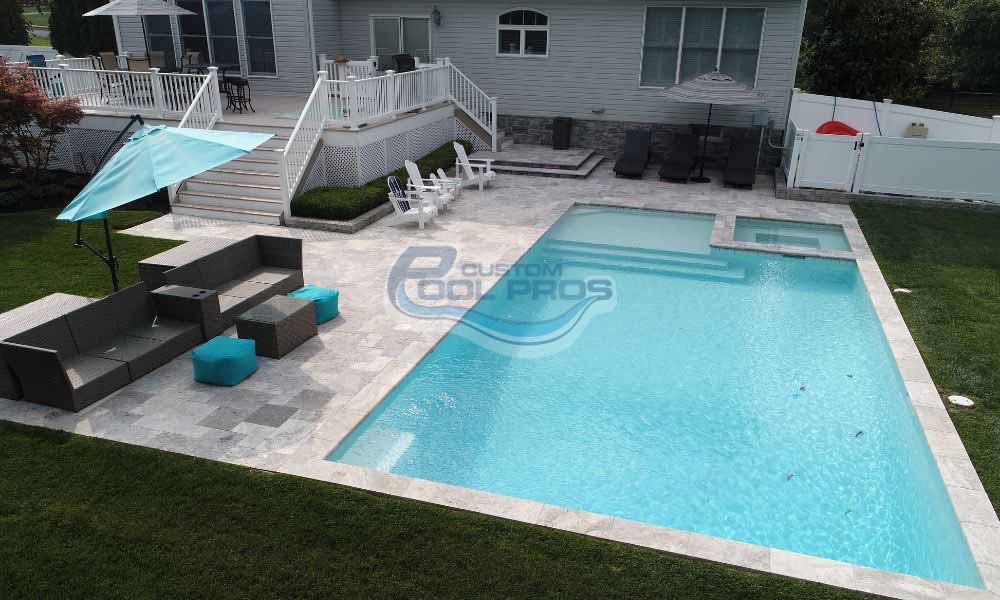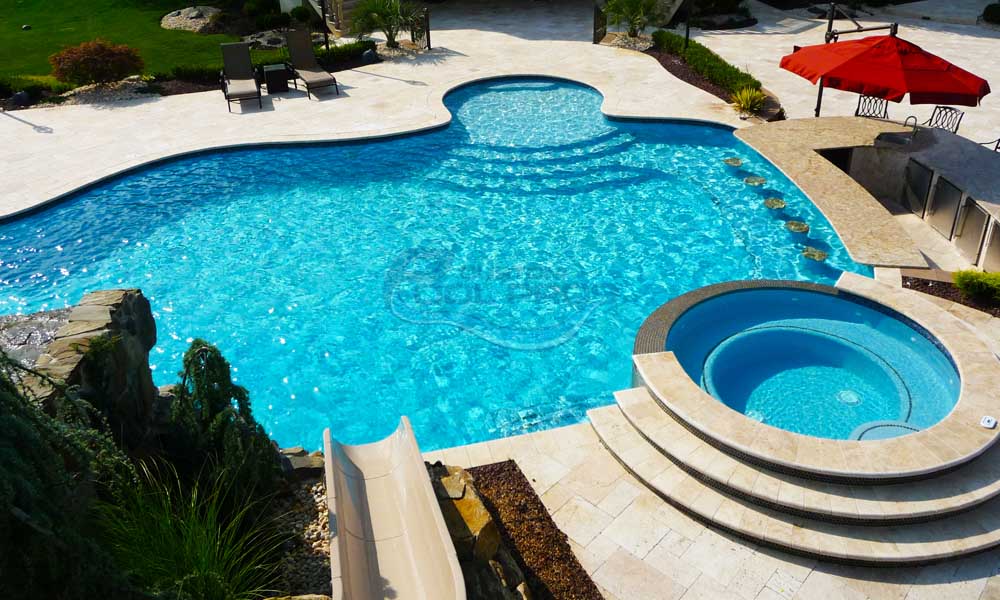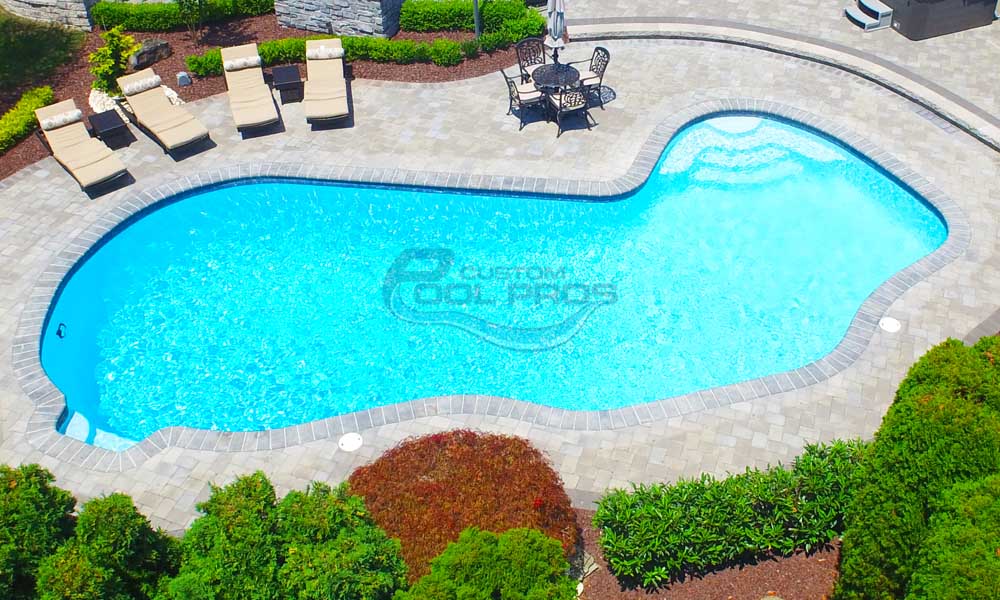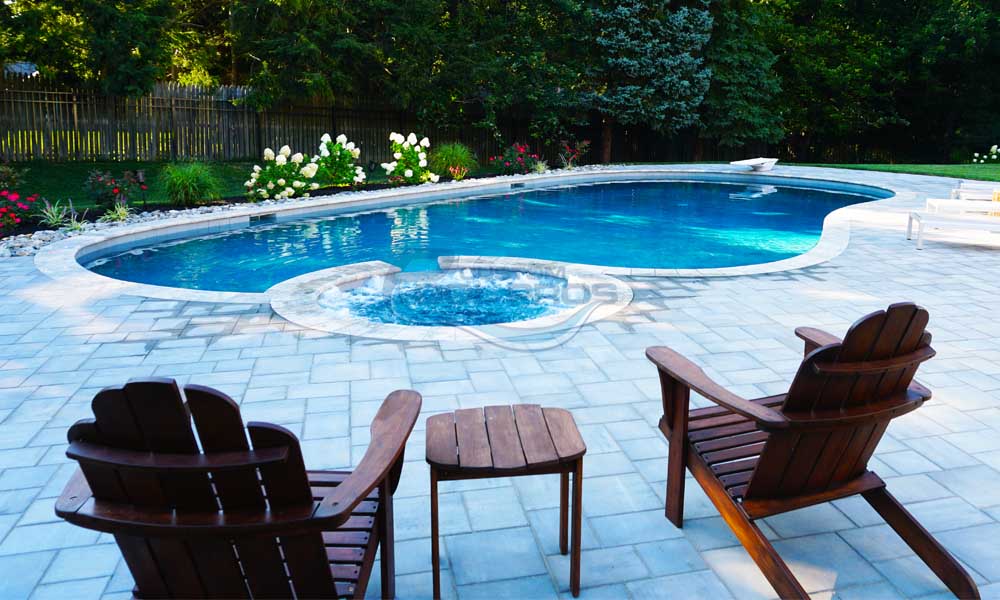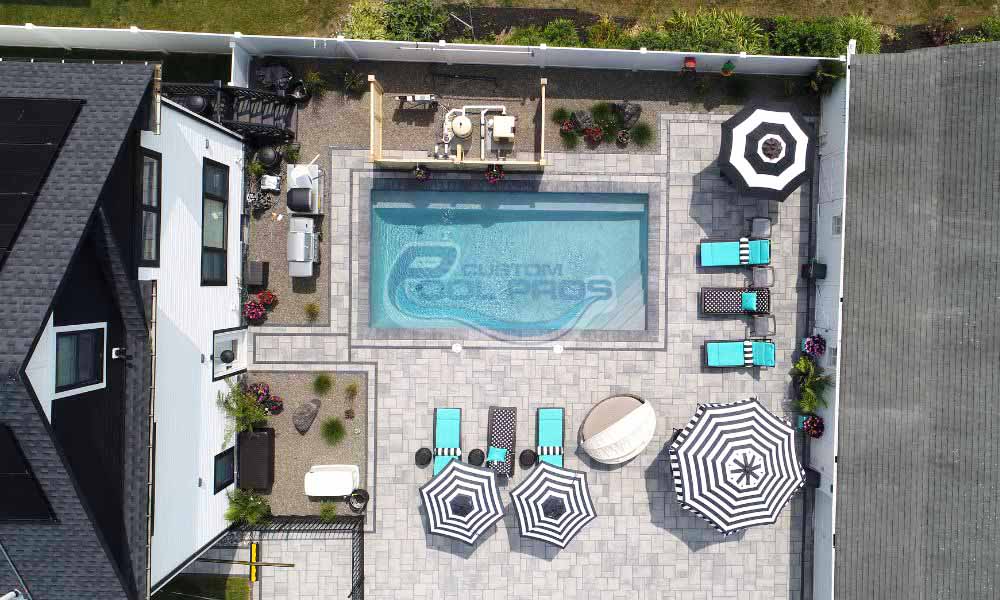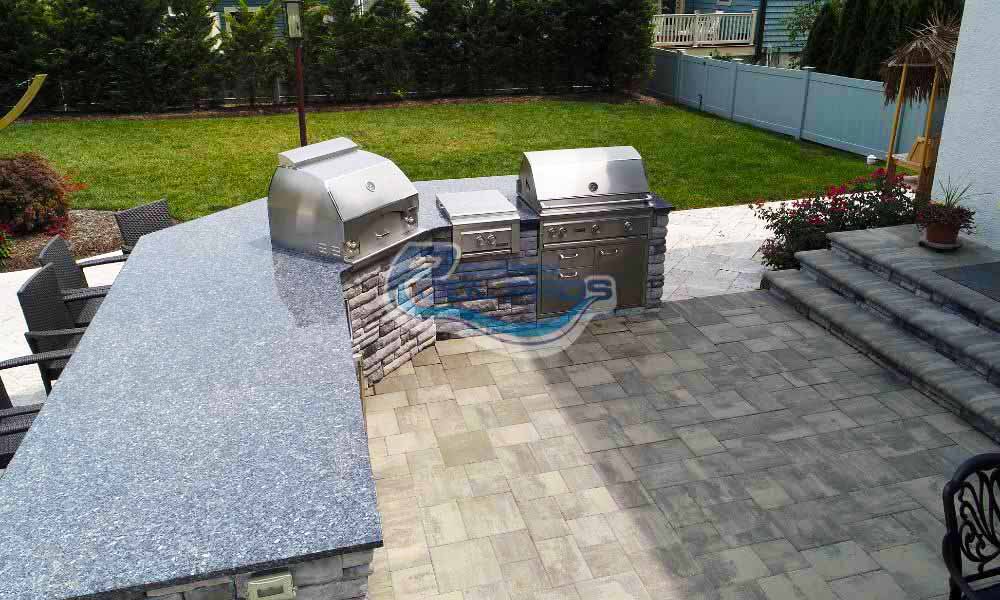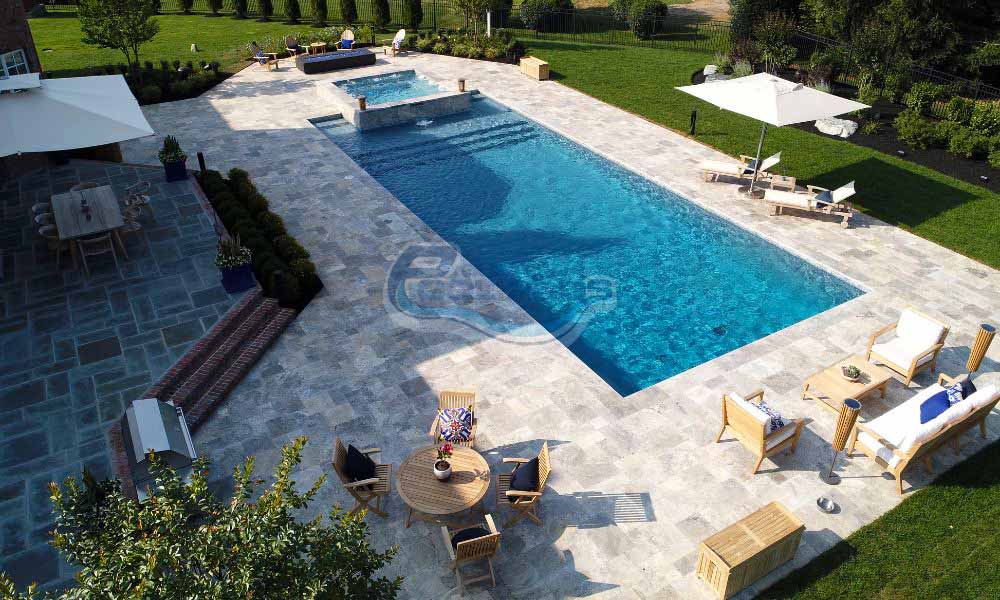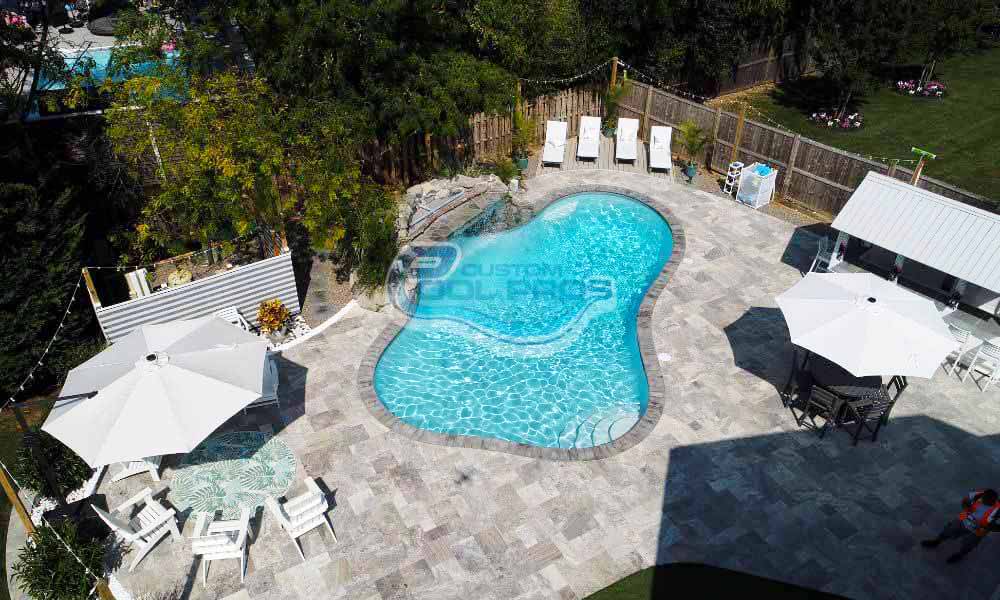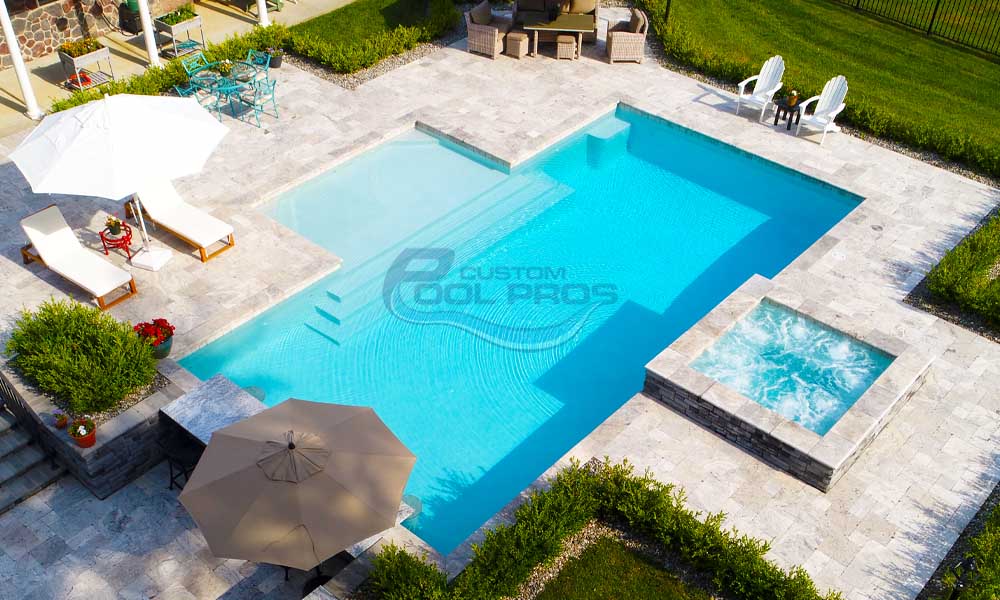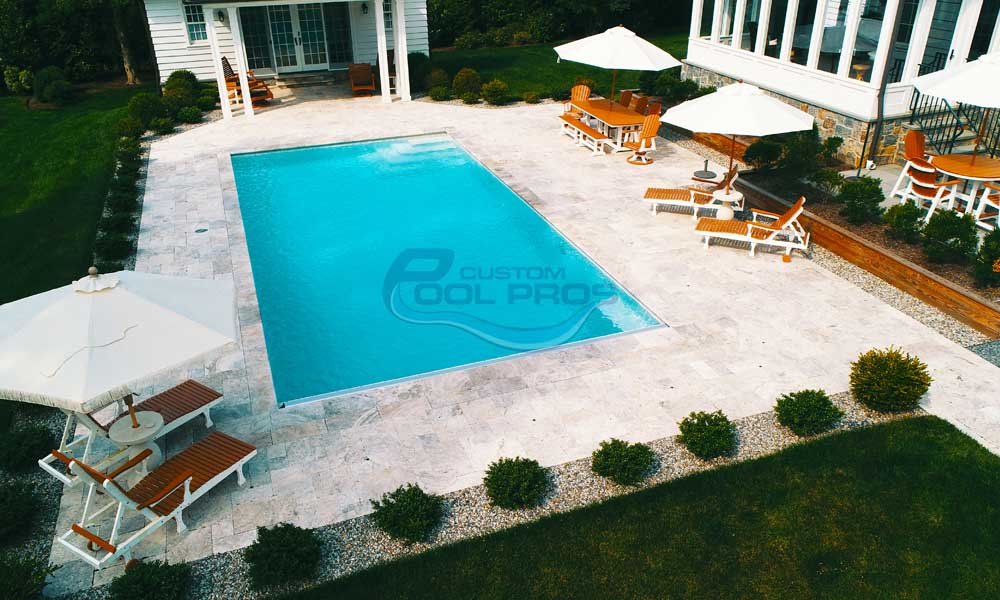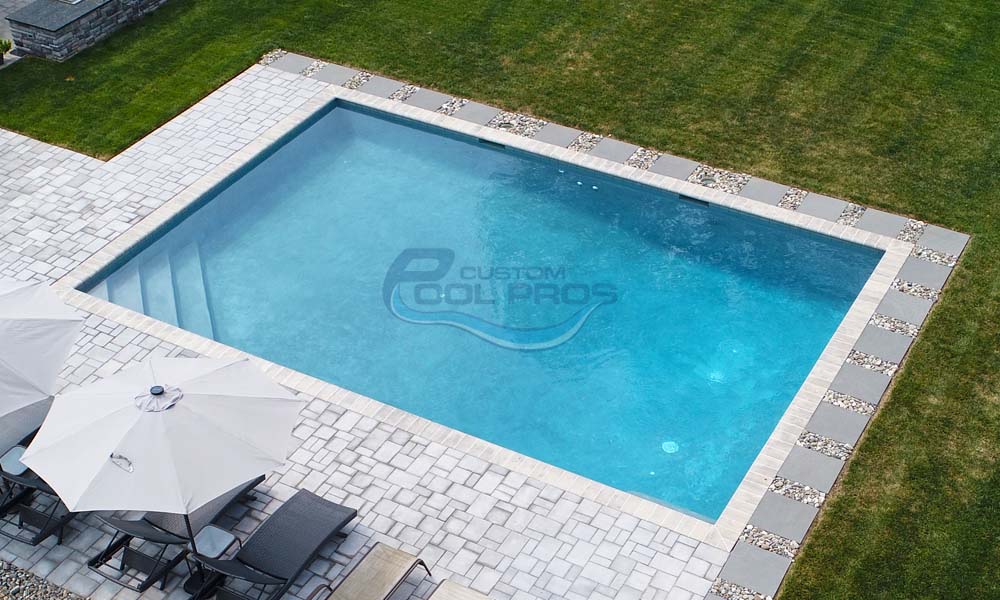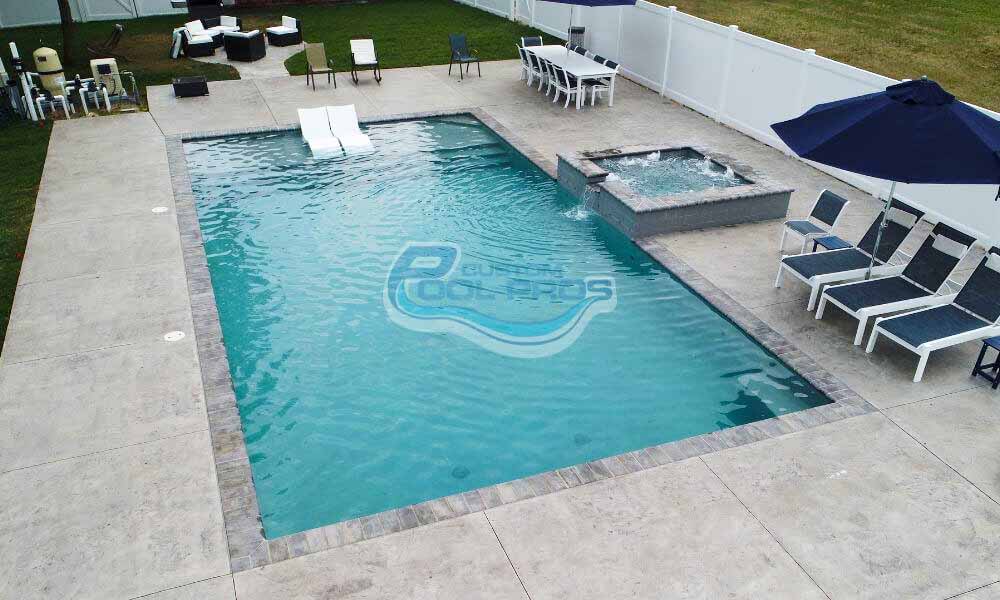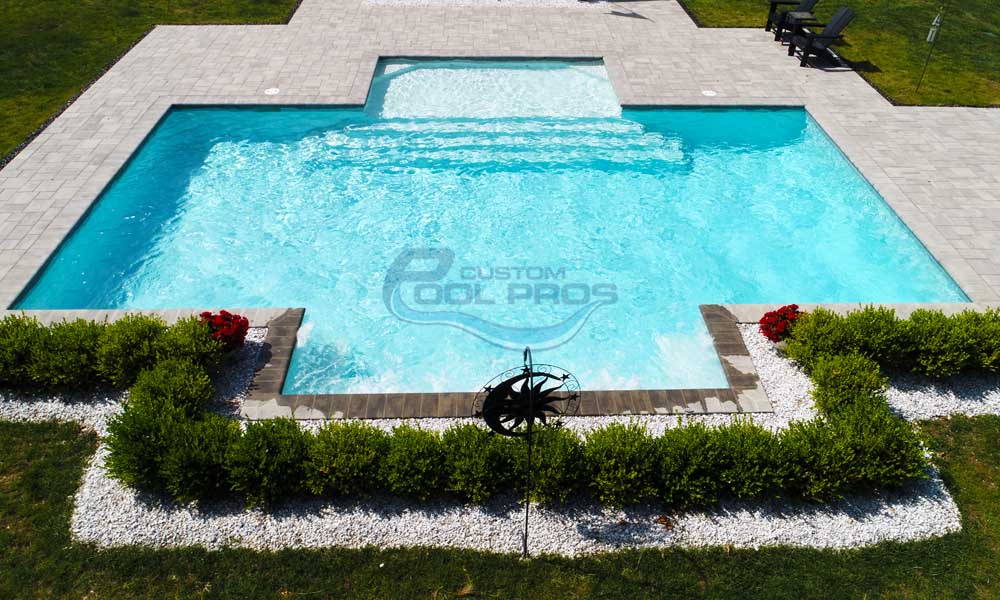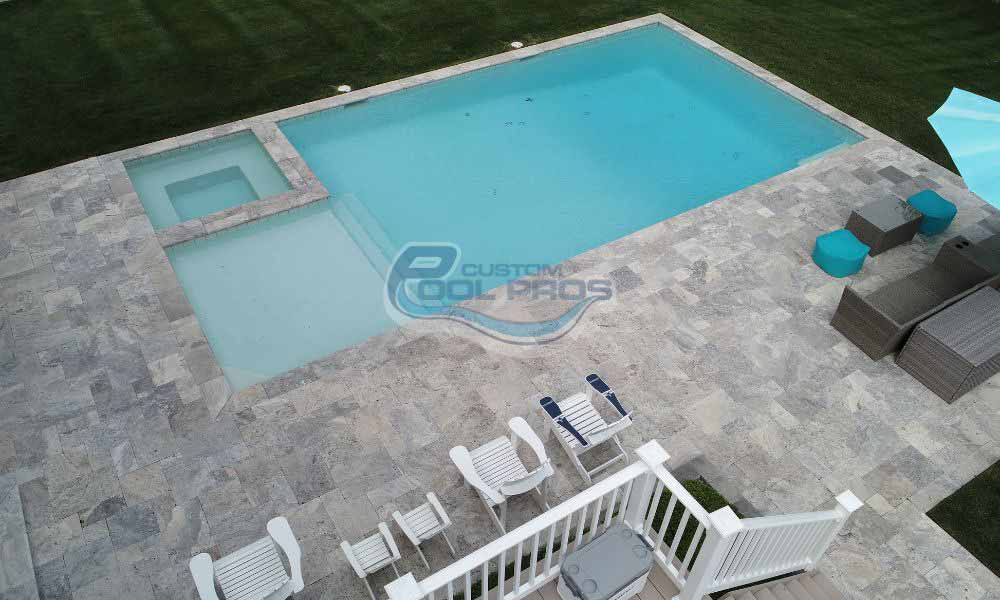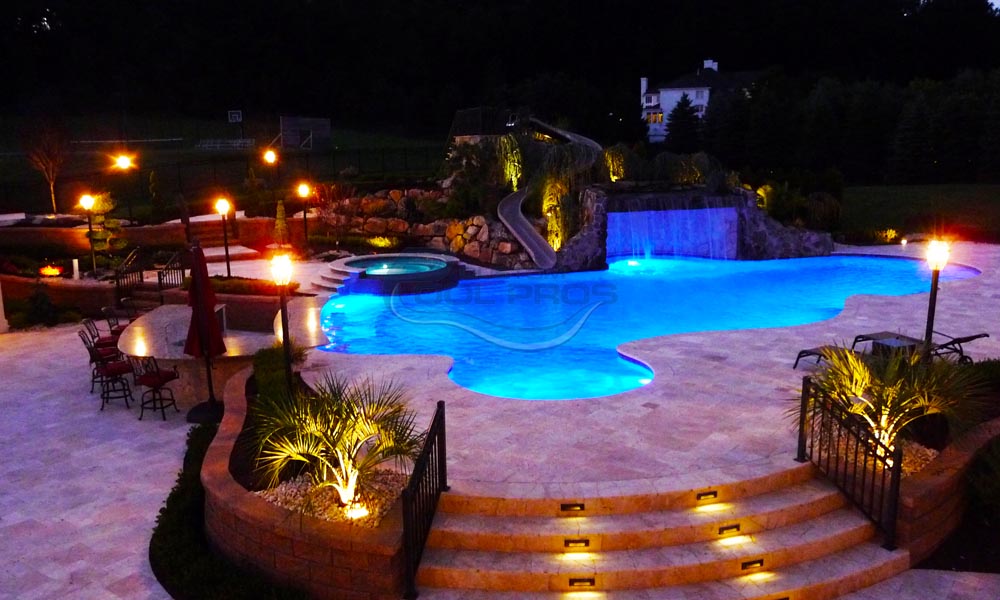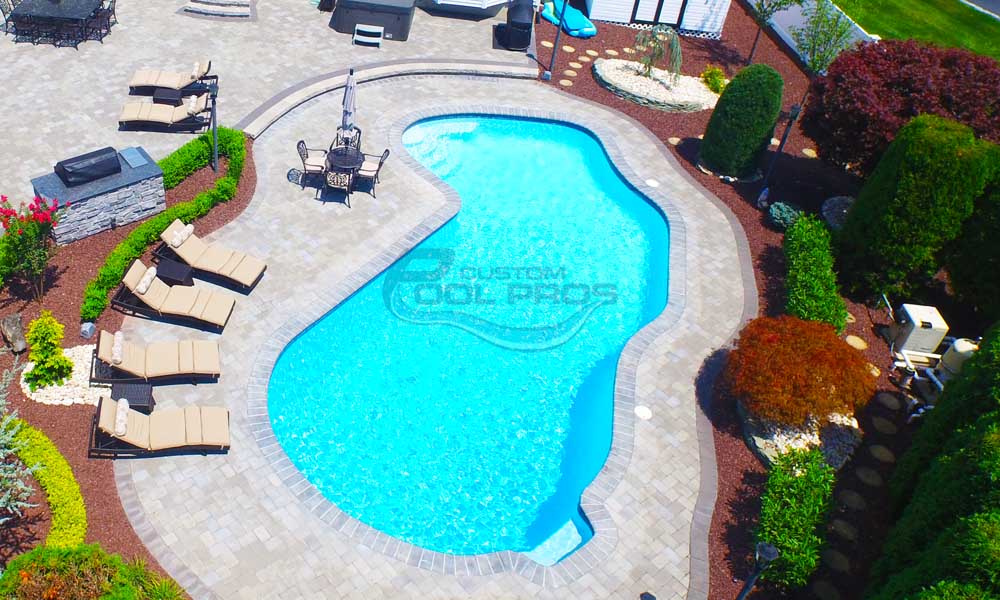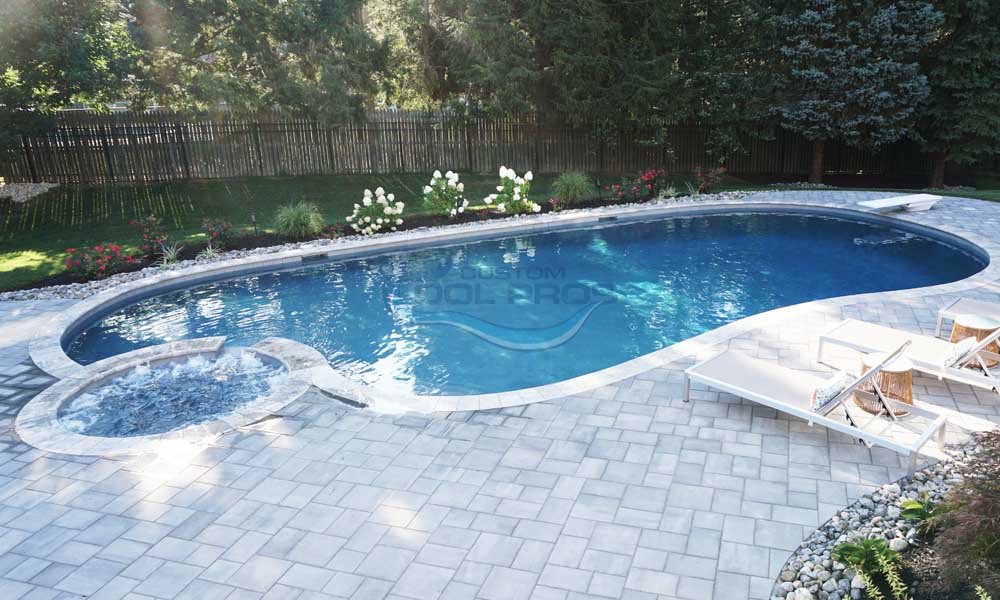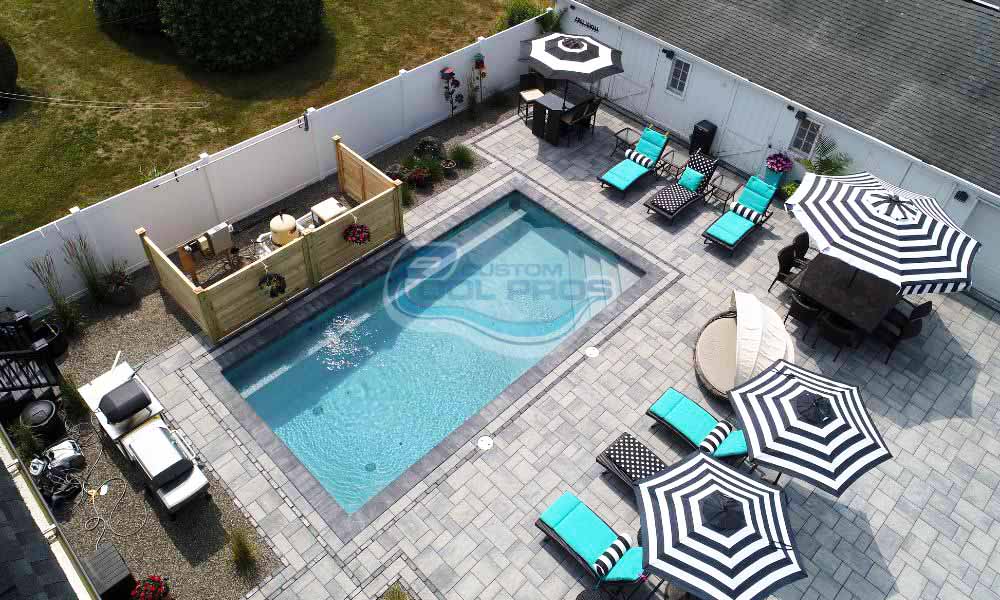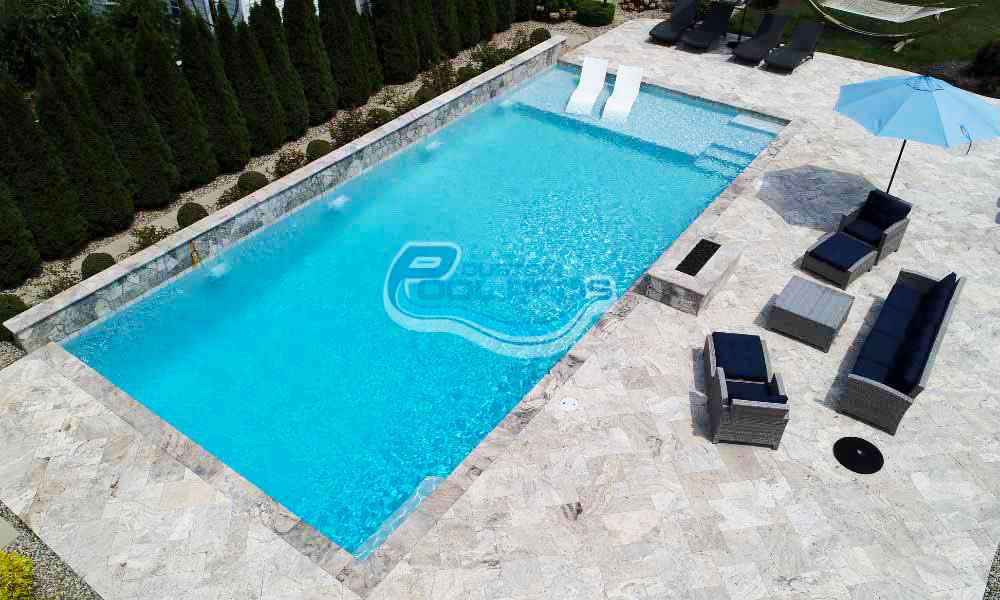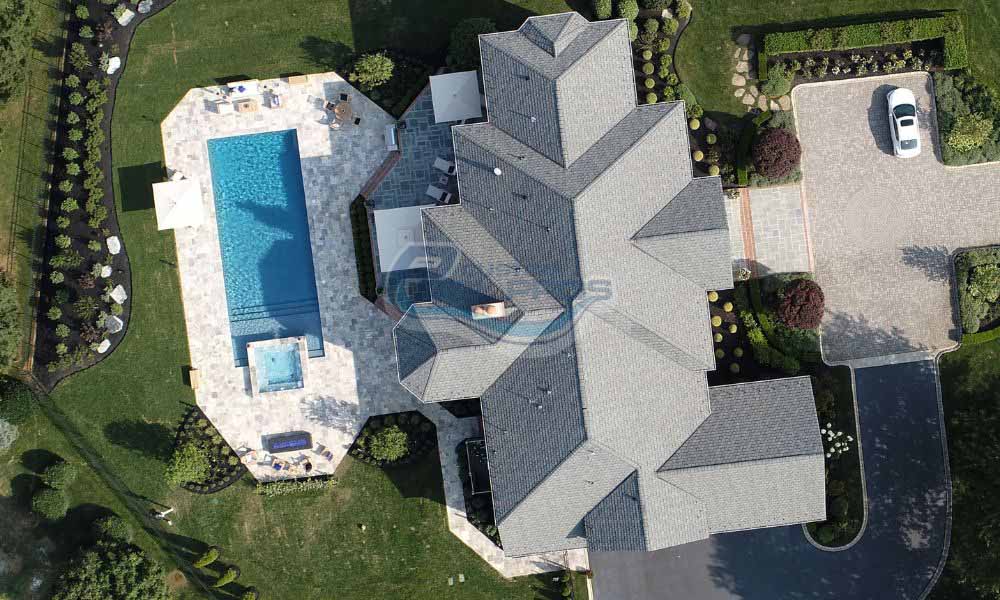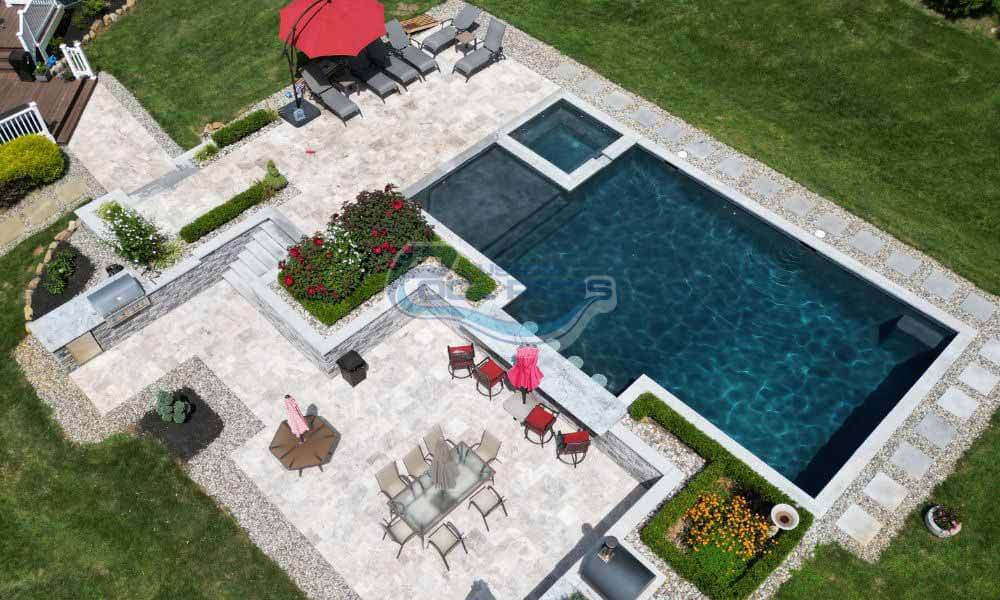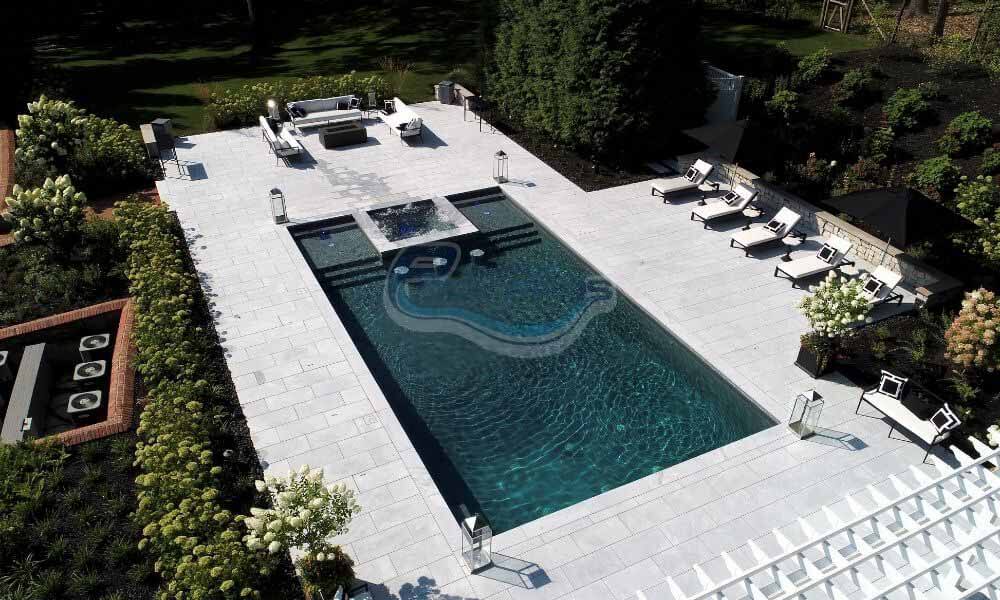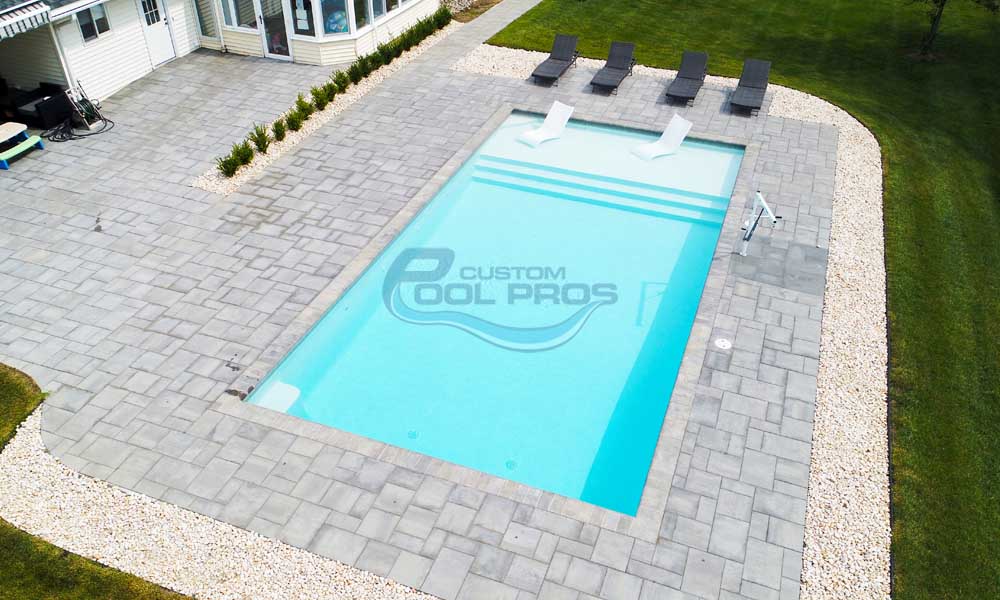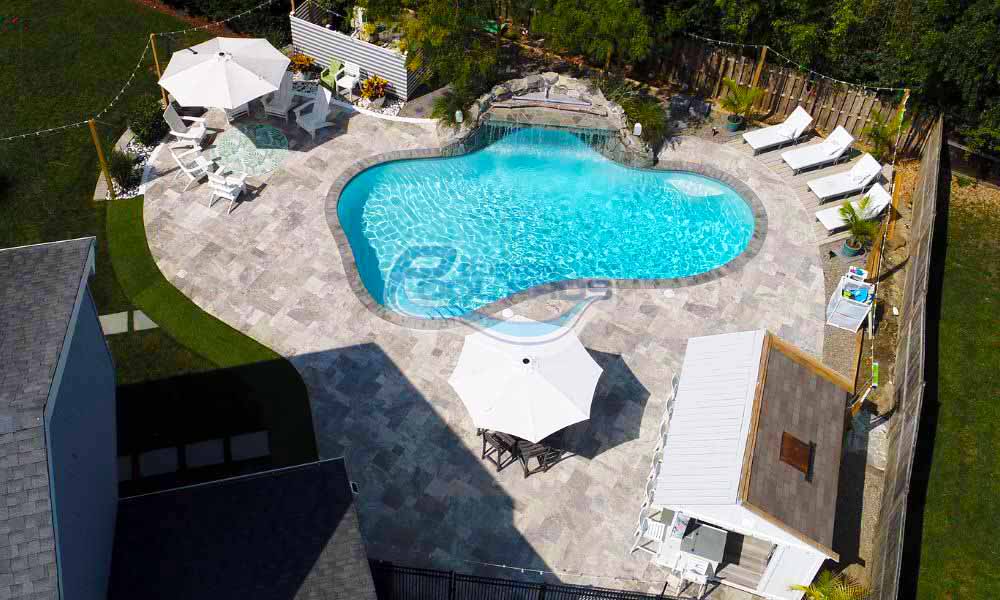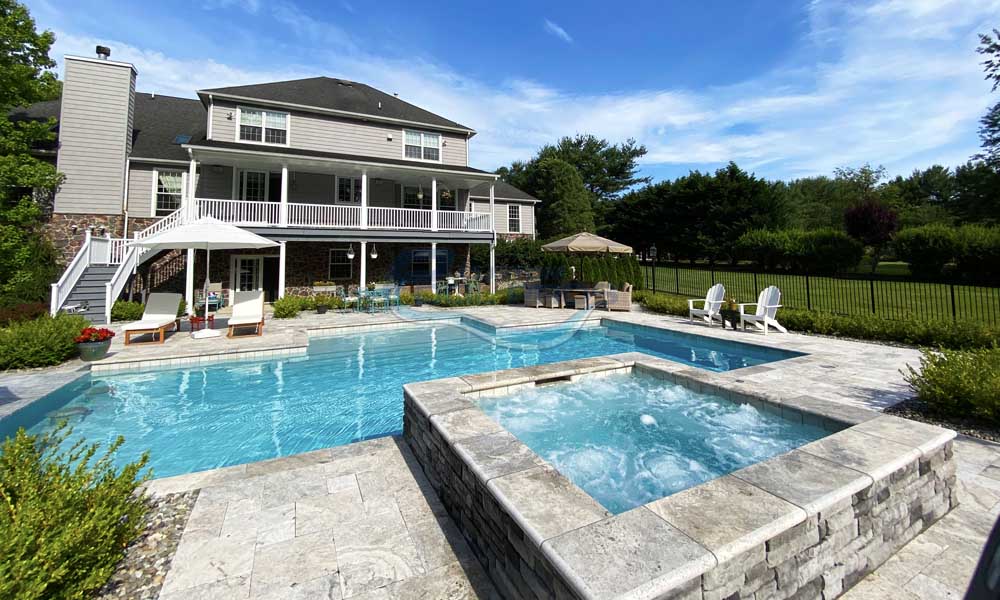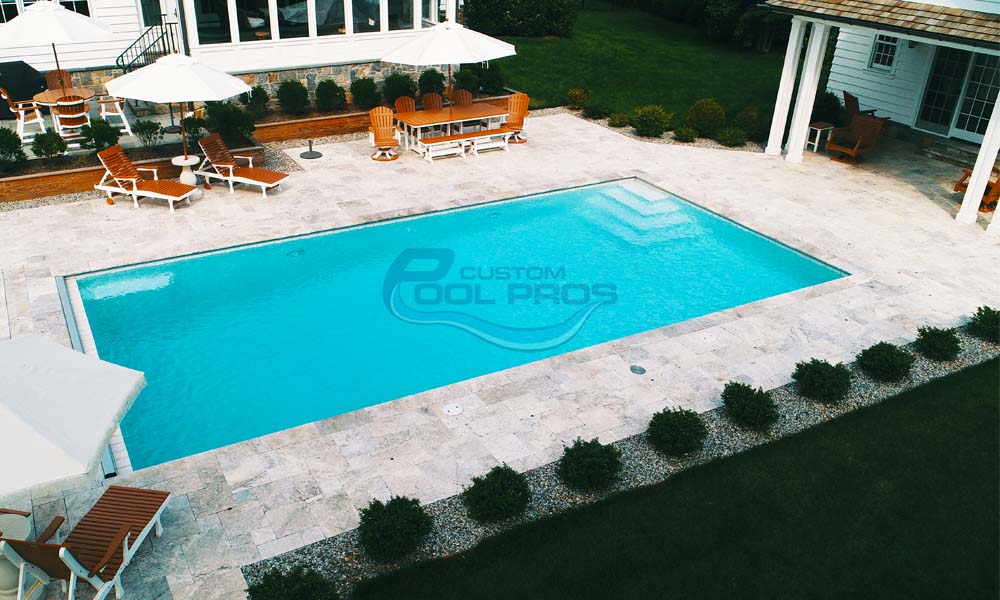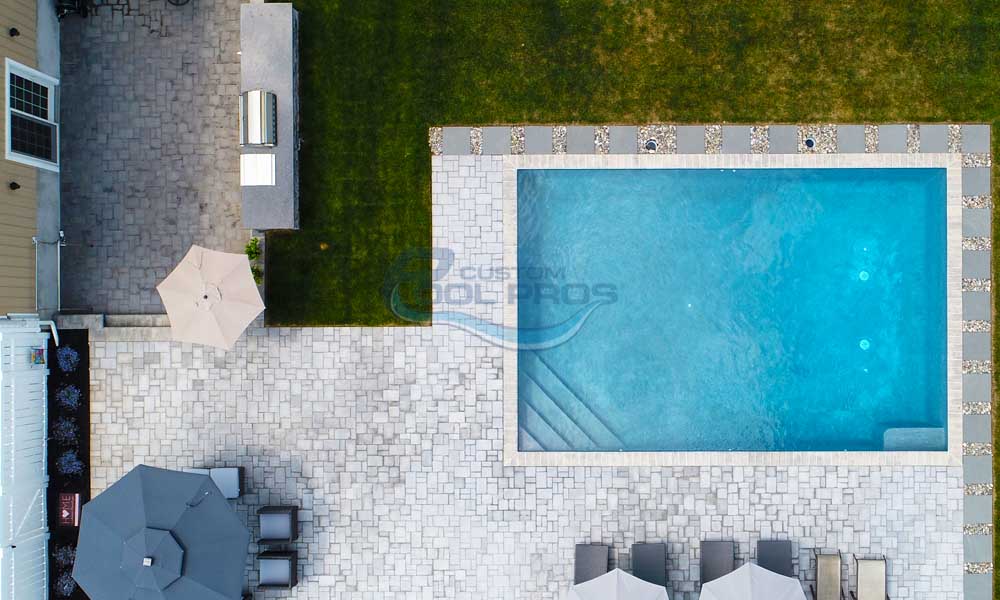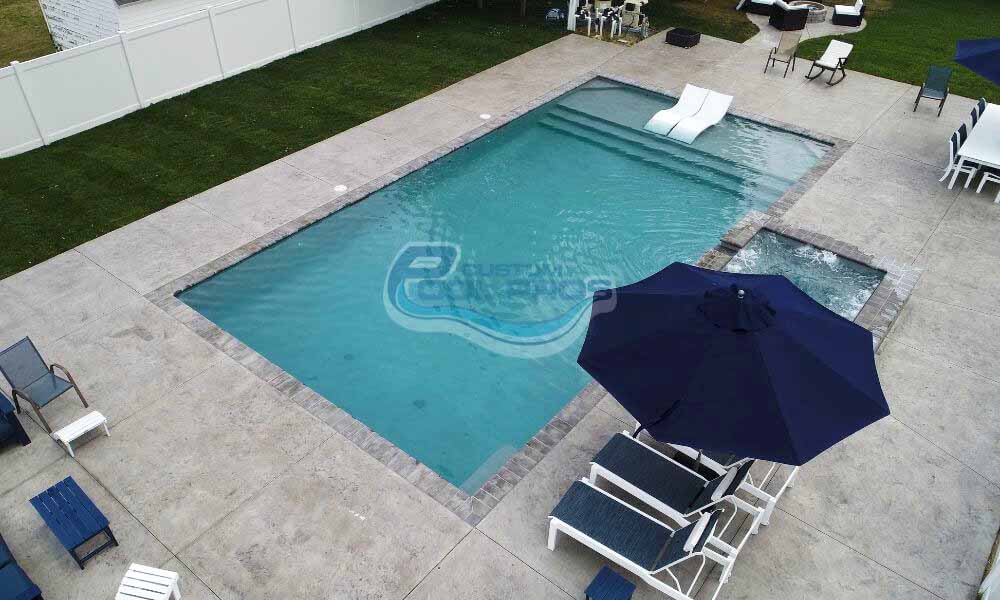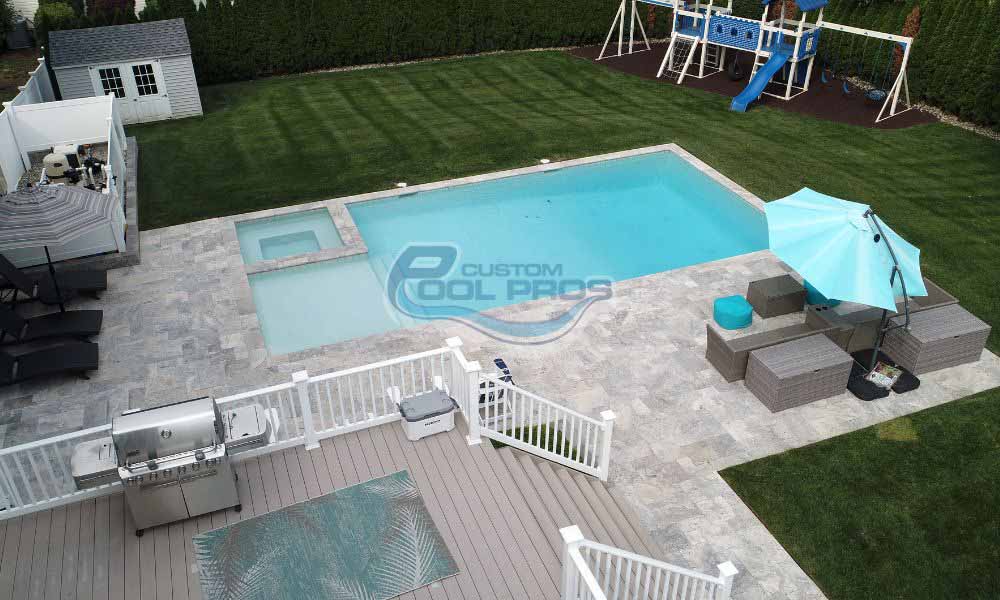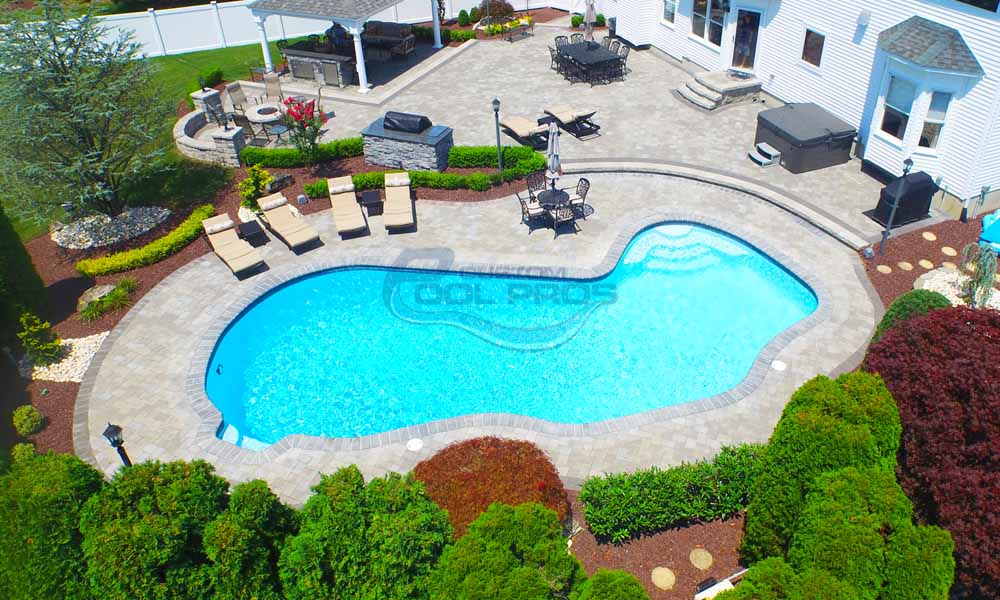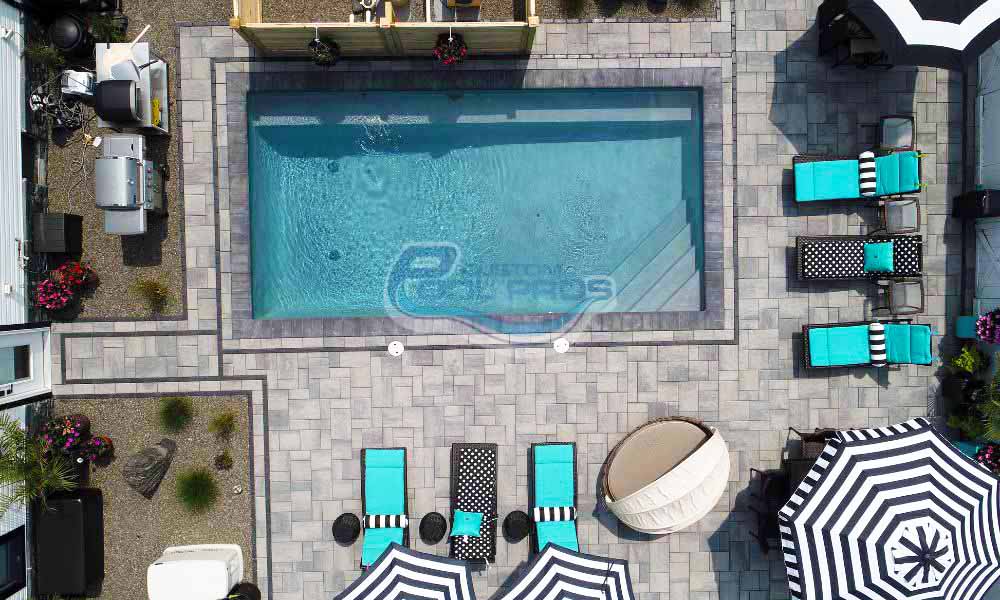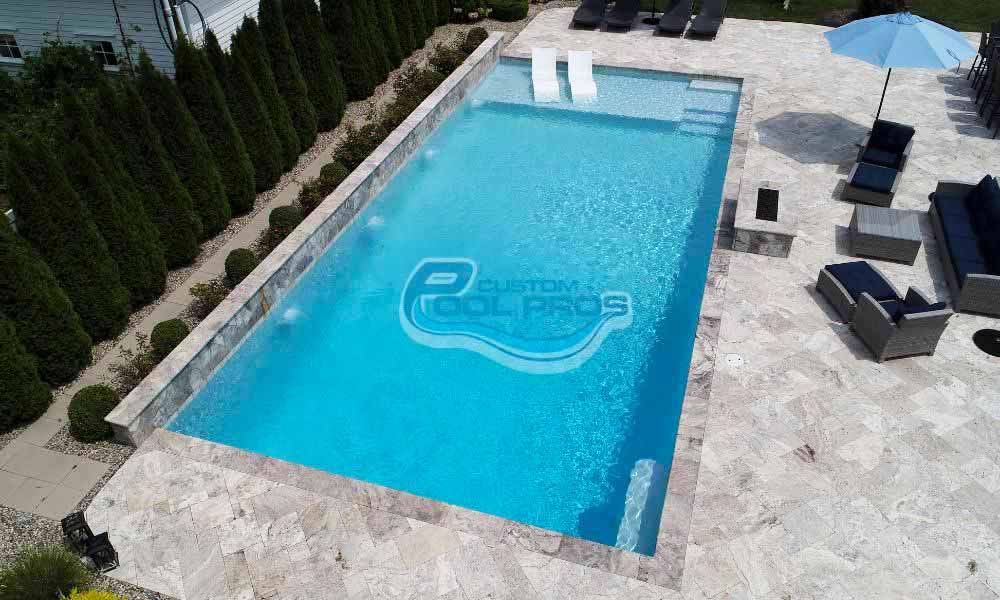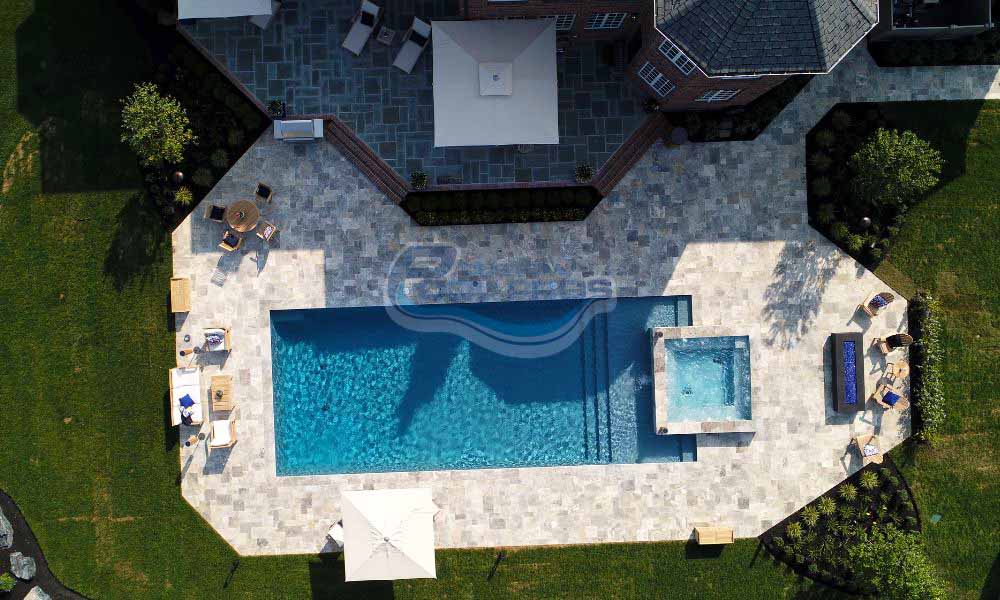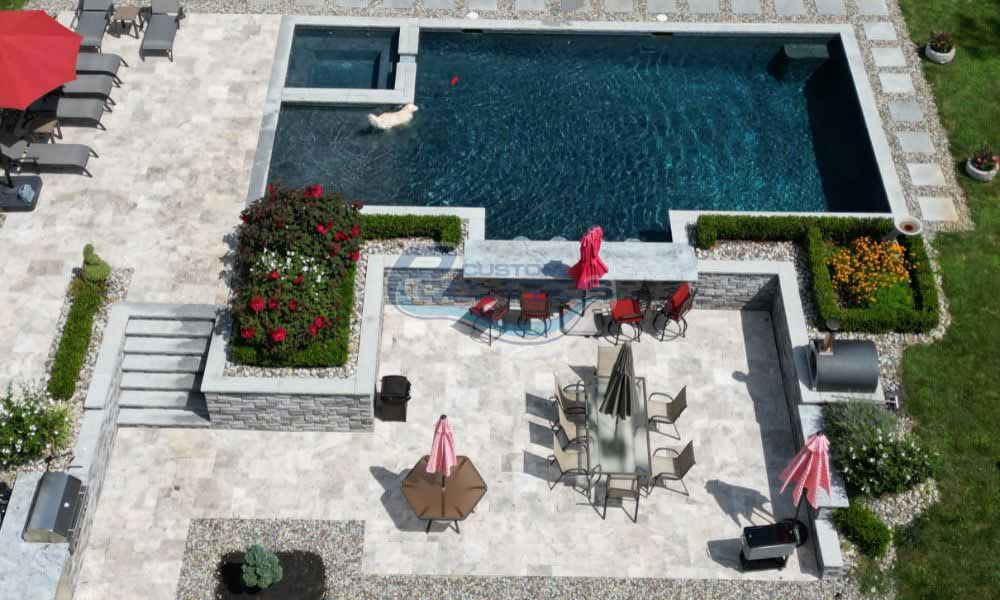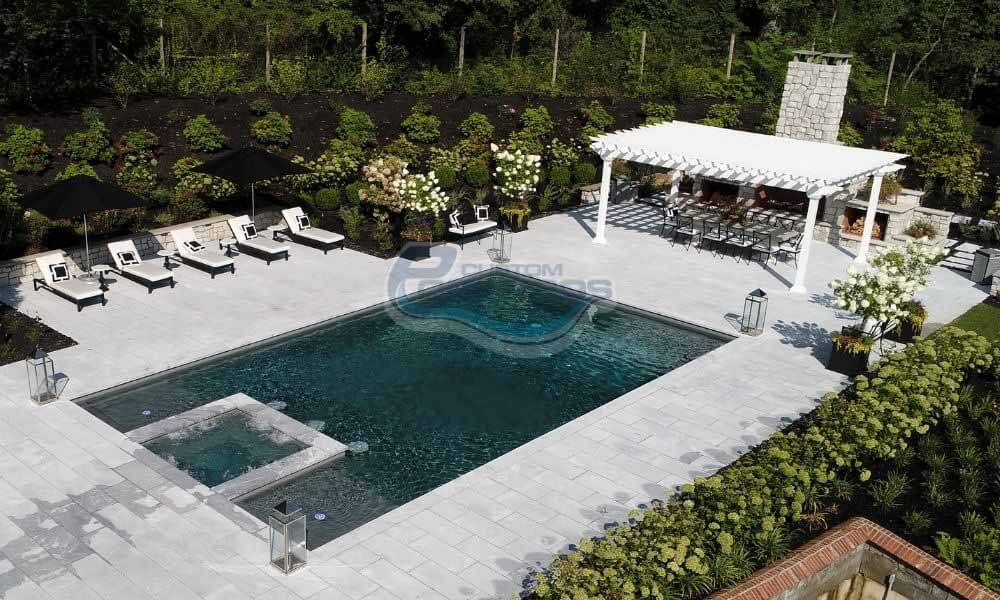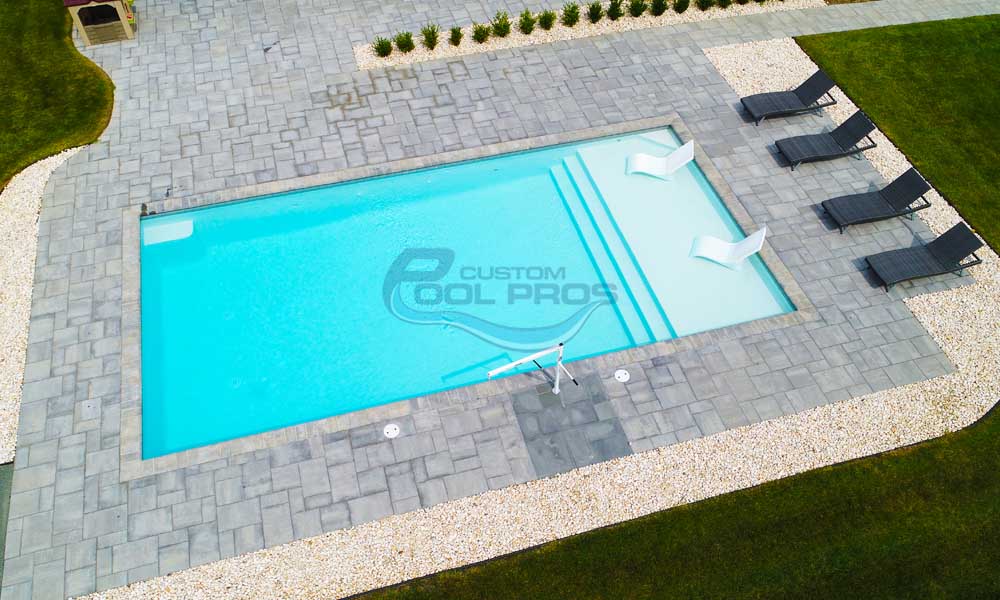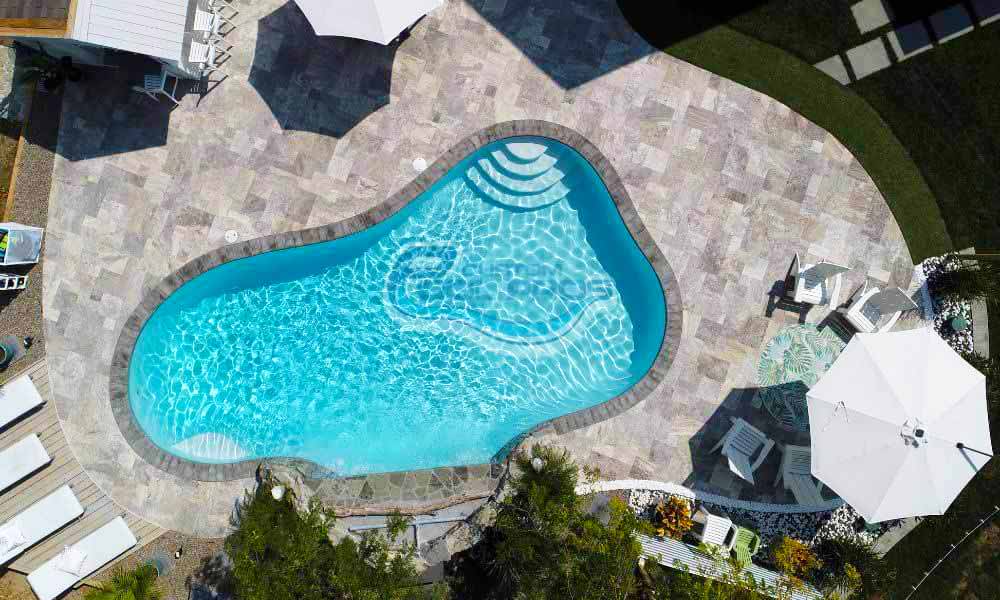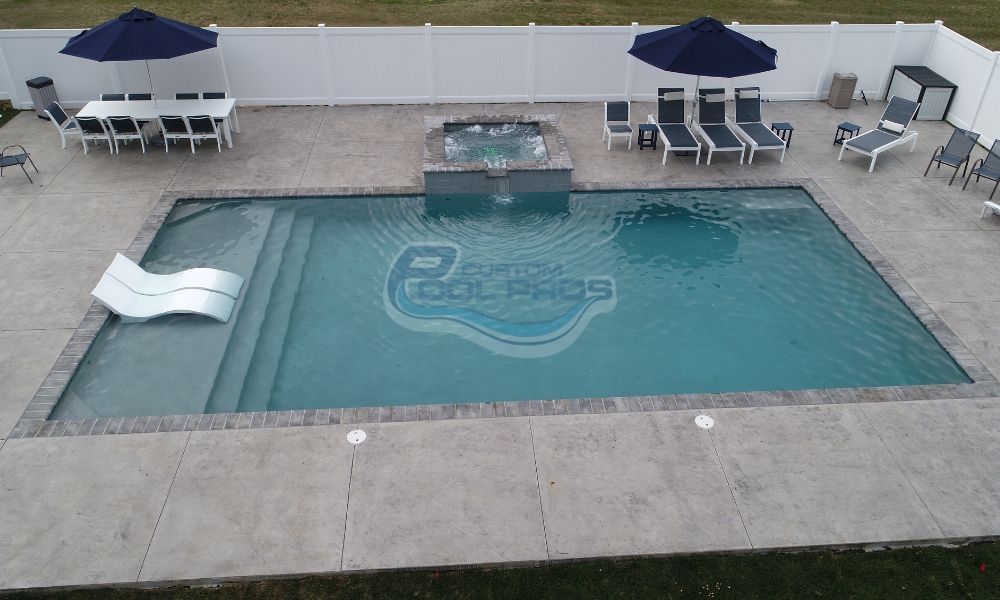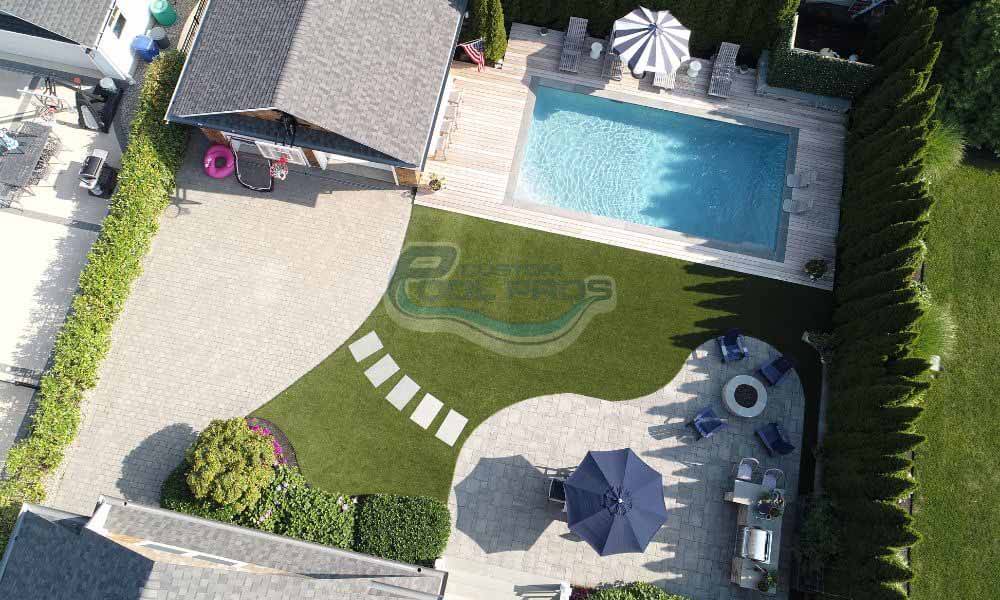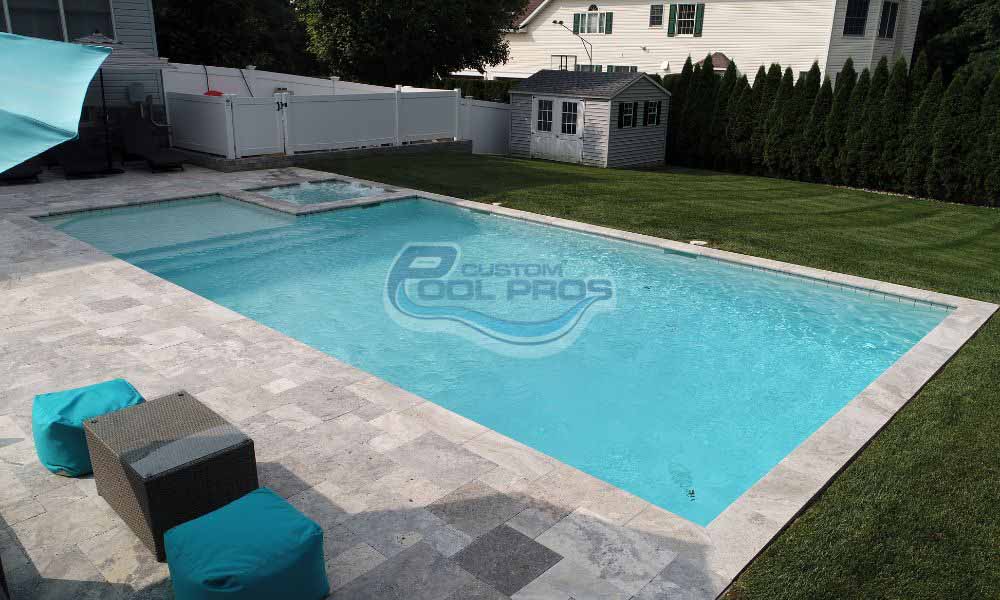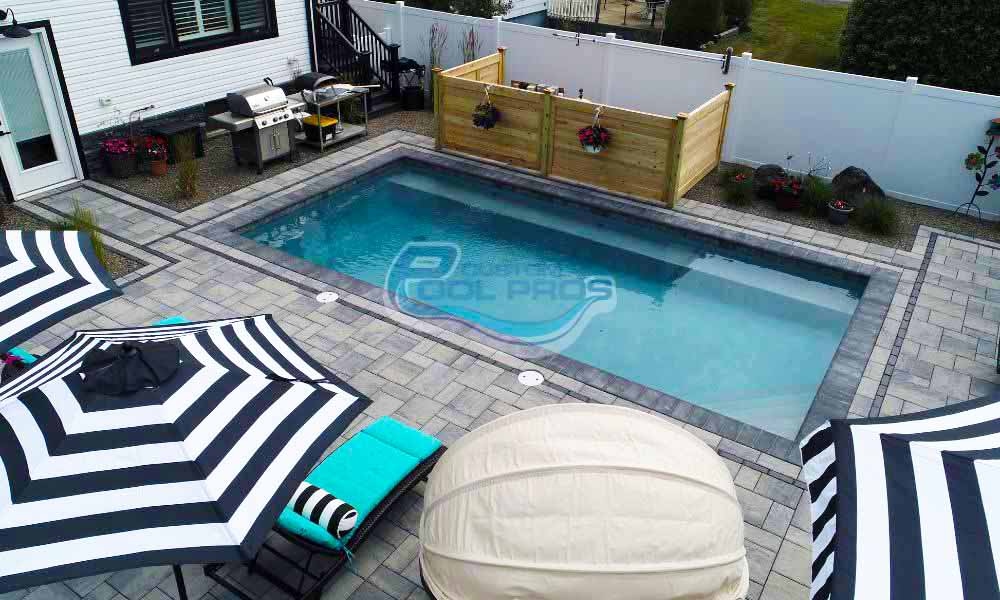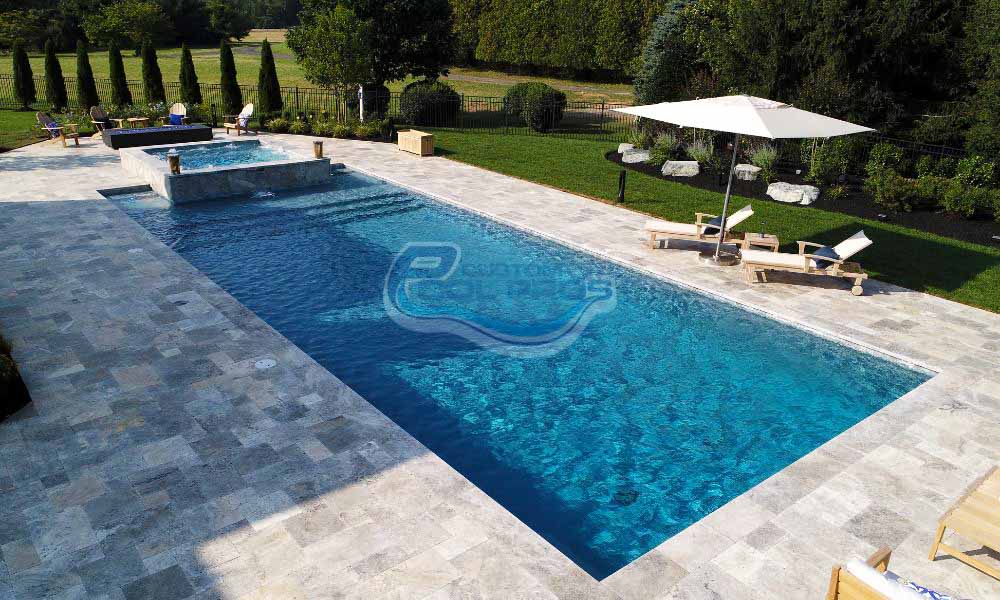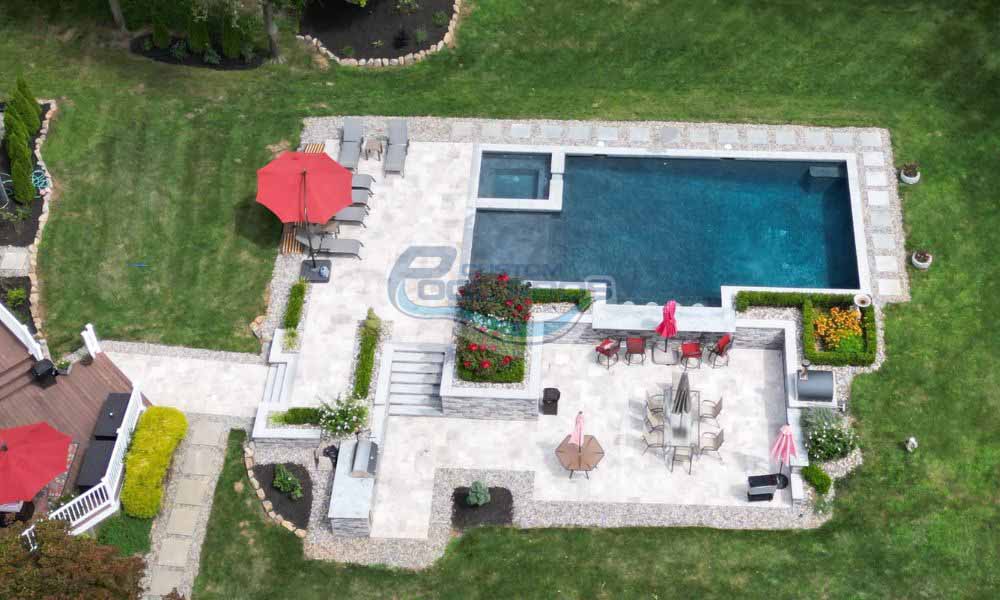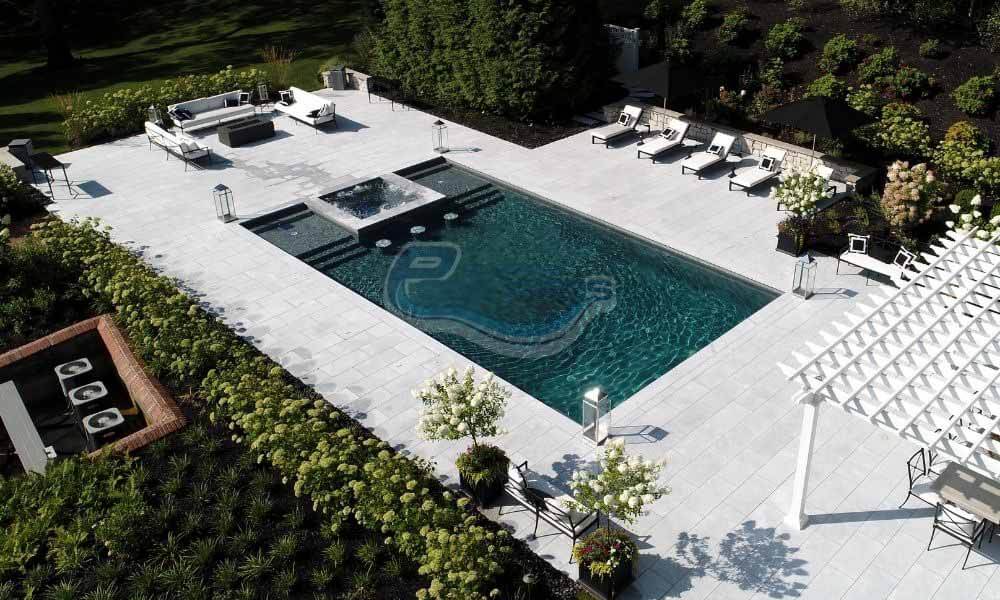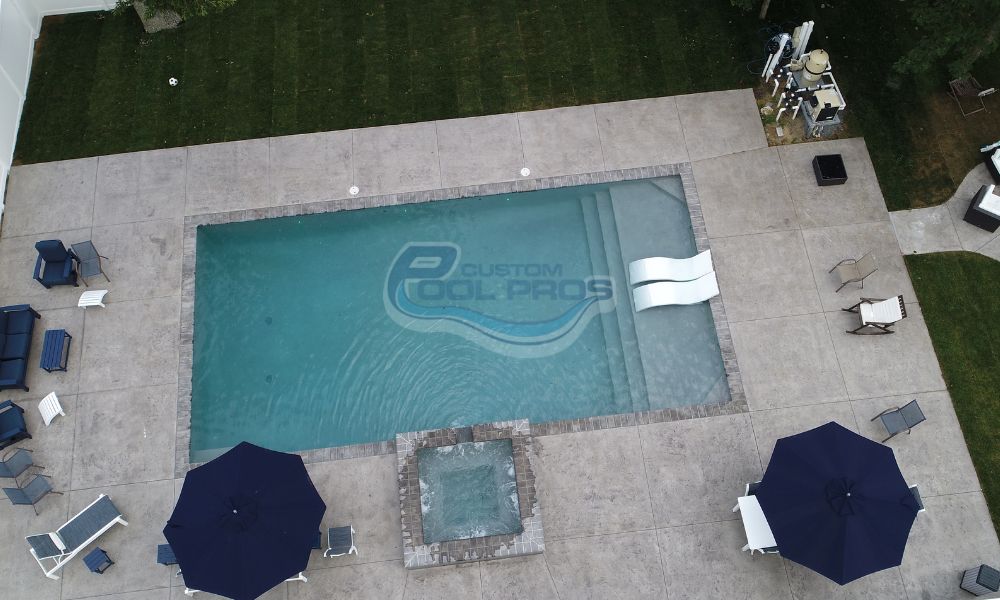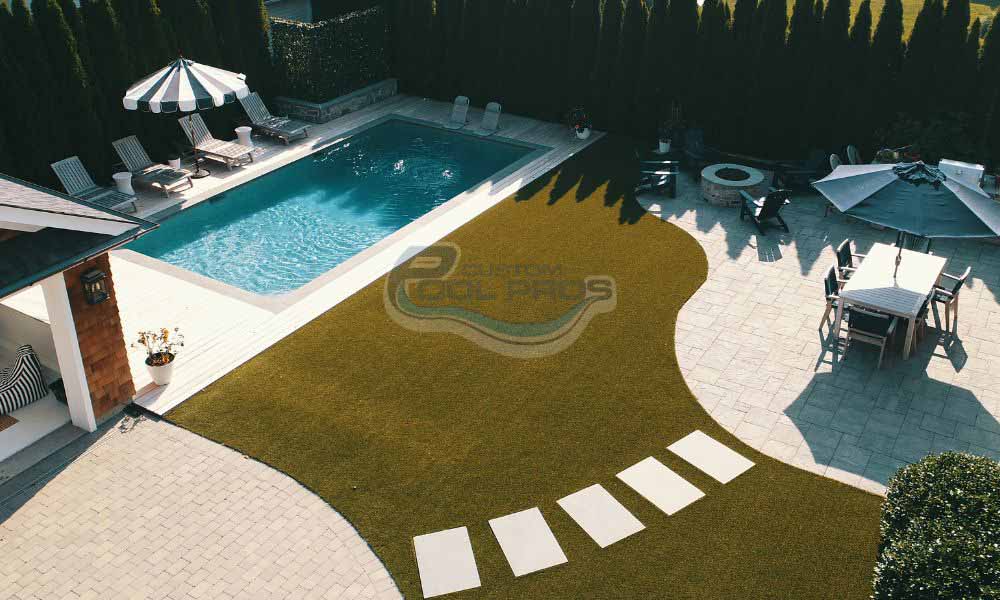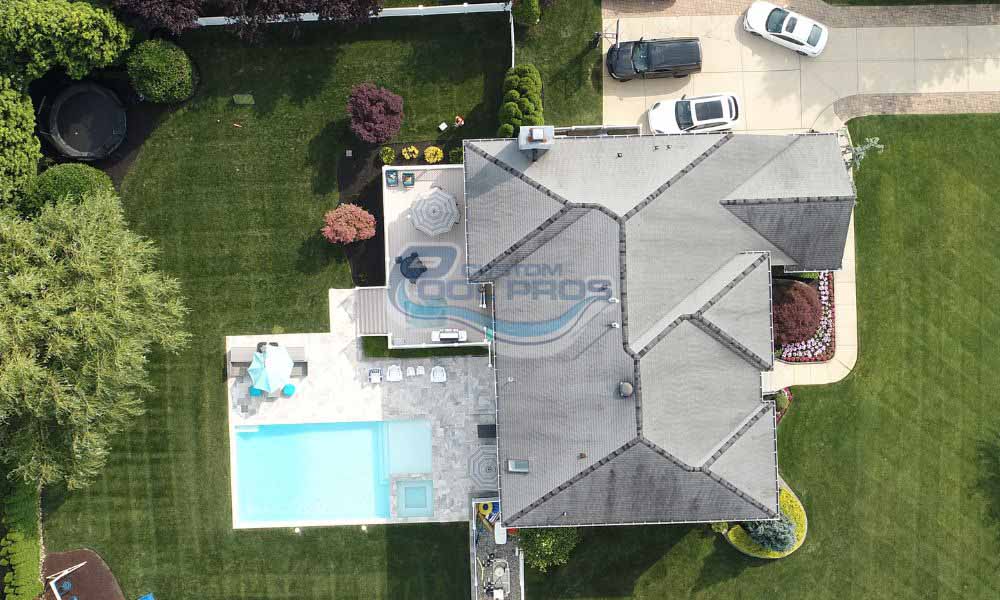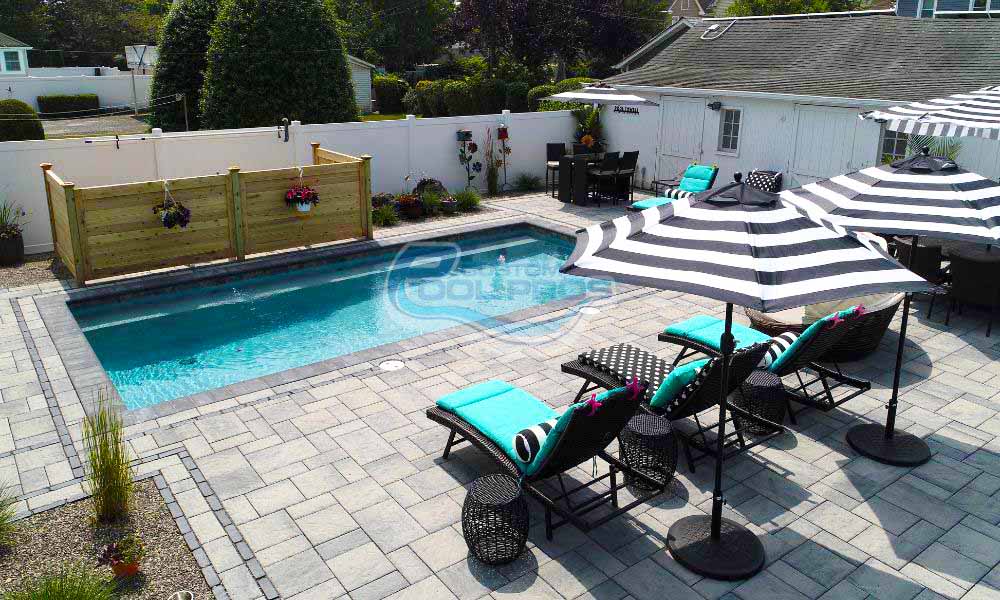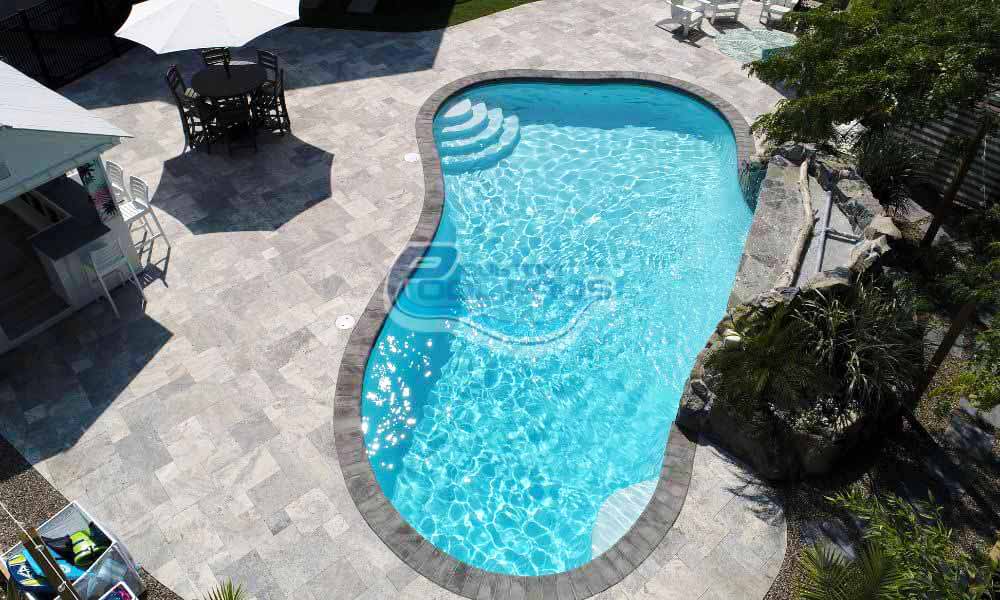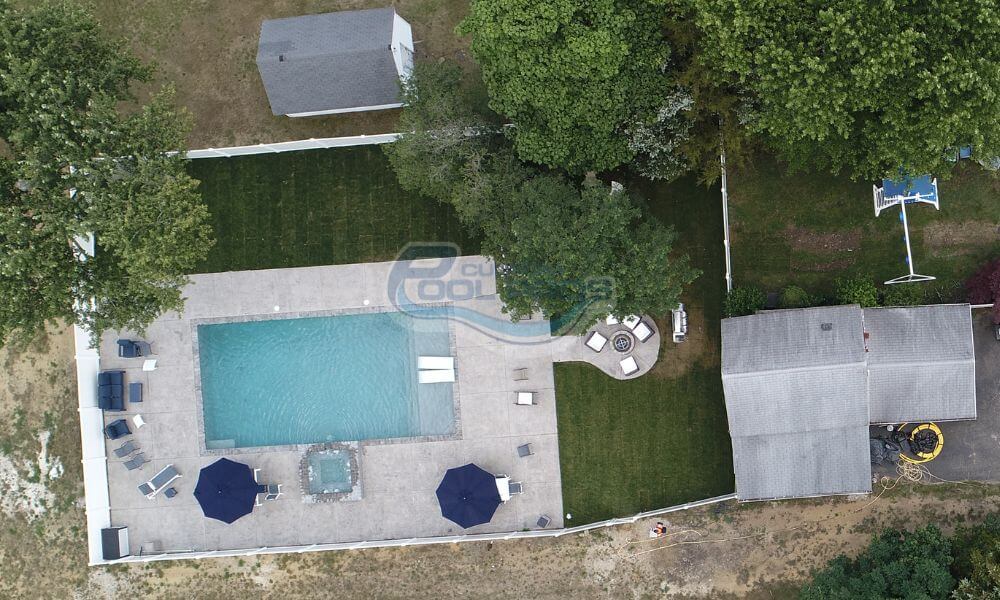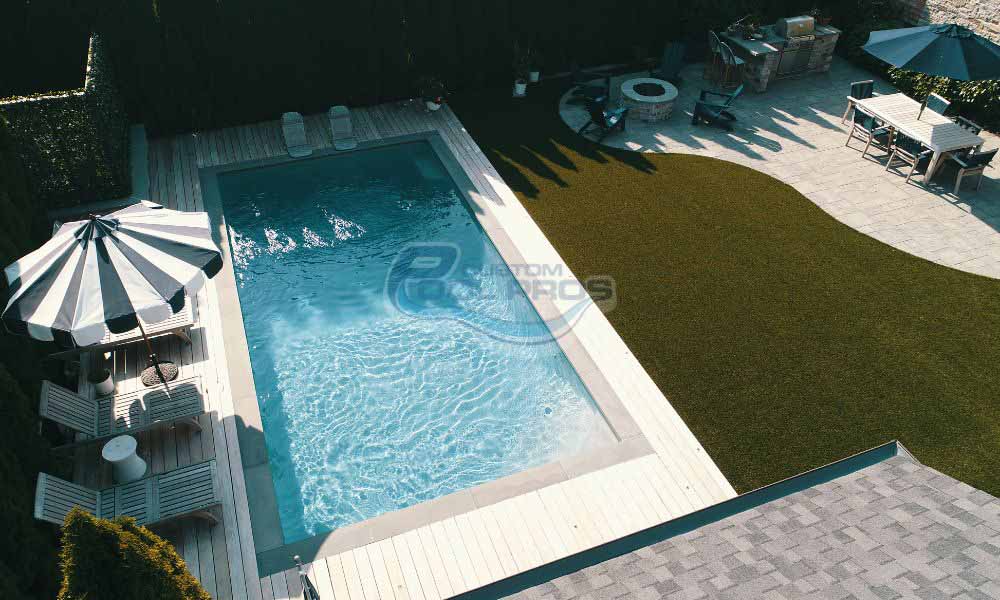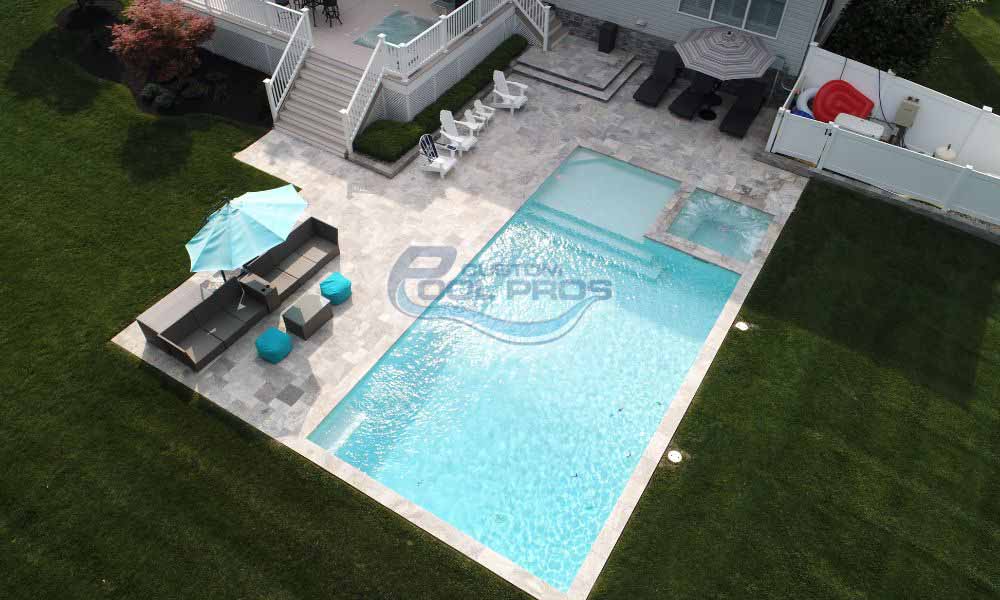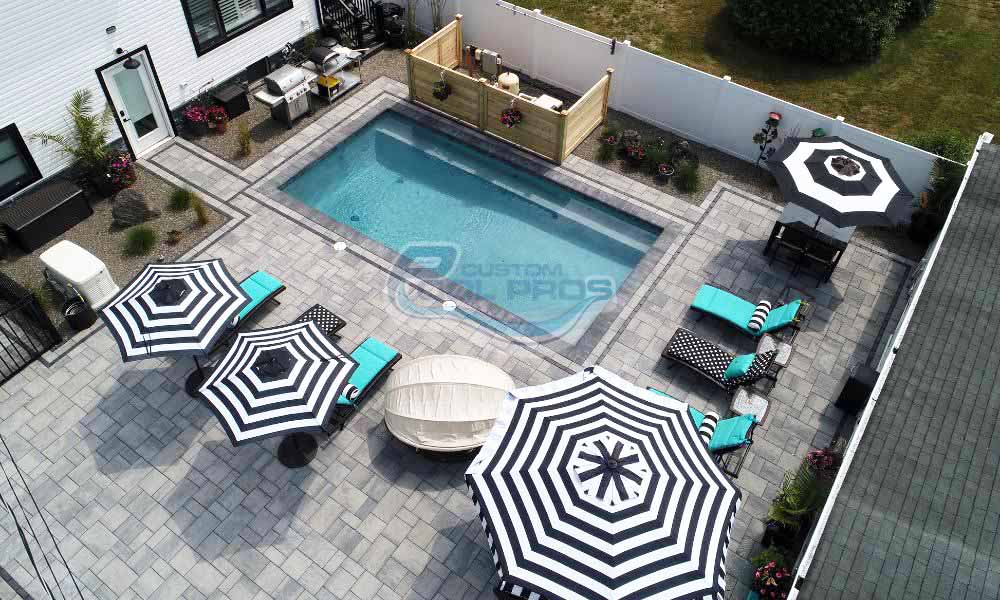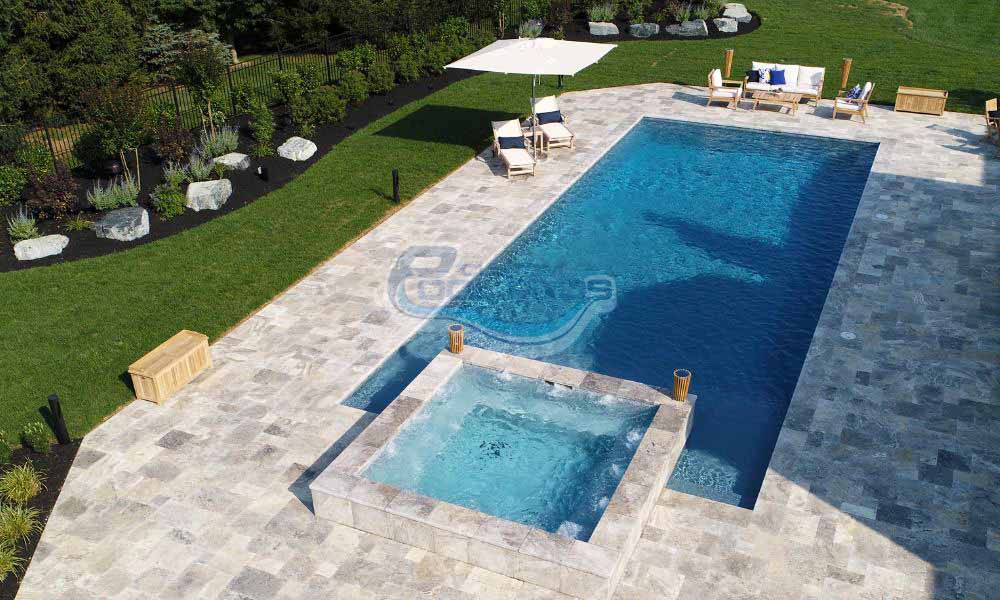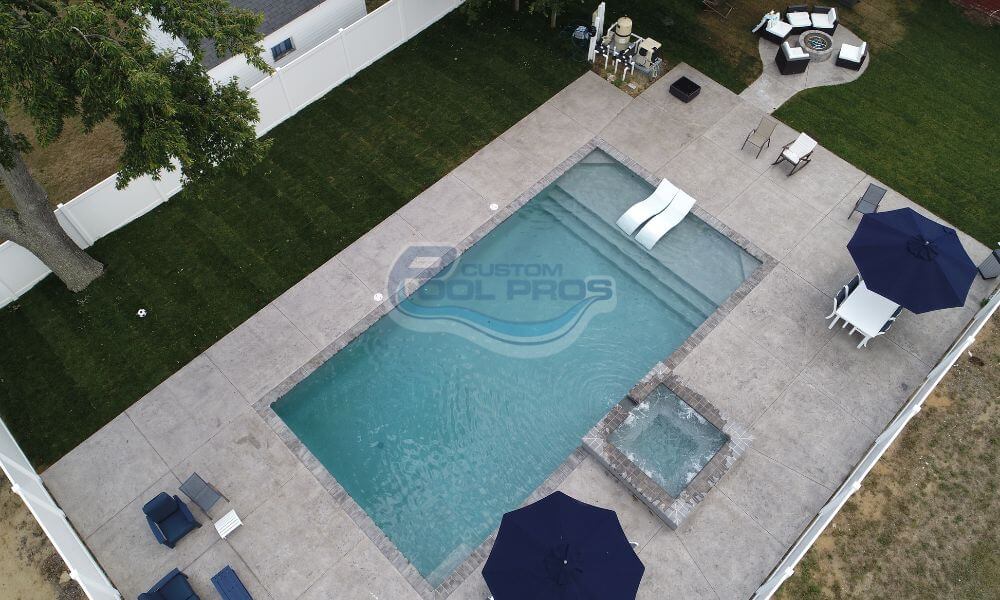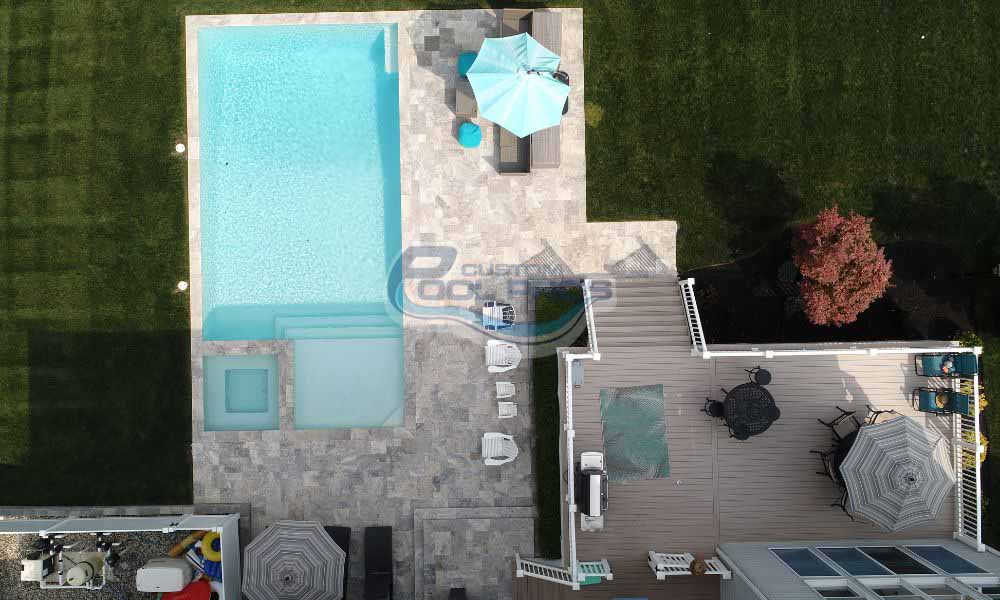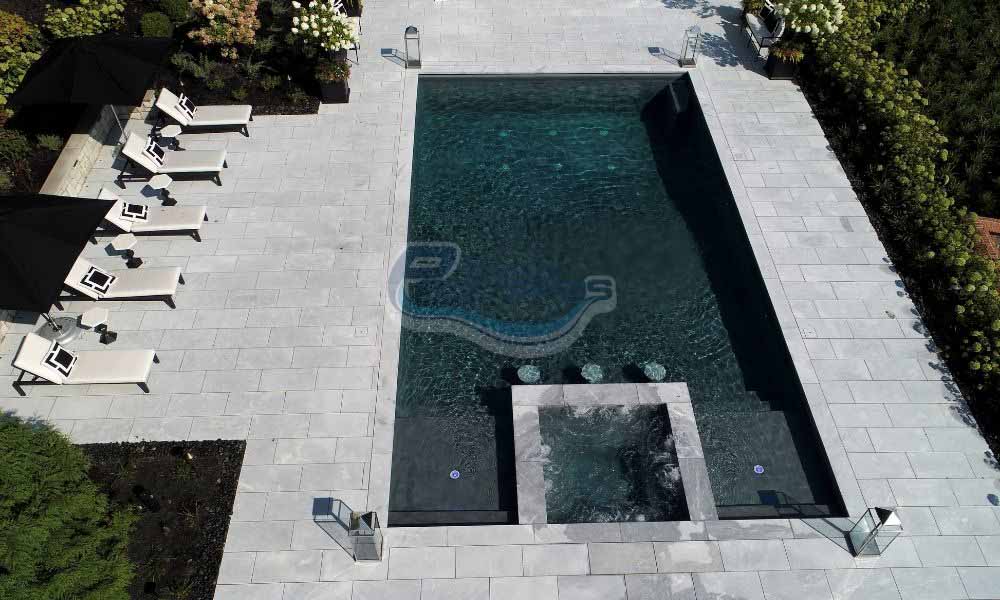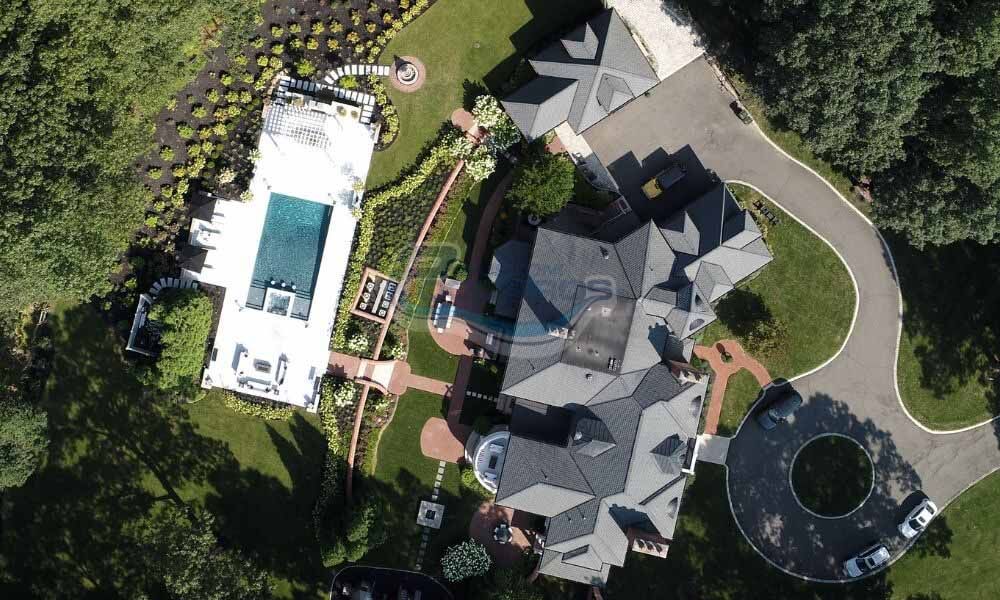Vinyl liner pools are a type of swimming pool construction where the interior of the pool is lined with a vinyl sheet. If you have specific questions about vinyl liner pools, we may just have the answers you need!
Benefits of Vinyl Liner Pools
Vinyl liner pools offer several benefits, including:
- Vinyl liner pools are often more budget-friendly compared to concrete or fiberglass pools, making them a cost-effective option for homeowners.
- They come in a variety of shapes, sizes, and patterns, allowing for customization in pool design to suit your preferences and backyard space. Therefore, you’re not restricted to just a few shell options.
- Vinyl liners are relatively easy to maintain and clean, making pool care more straightforward.
- Vinyl liners are less prone to algae growth compared to concrete surfaces.
Other key benefits to vinyl liner pools are that they are non-porous, quick to install, provide a smooth and comfortable surface, and stay cooler to the touch than concrete, which can be more comfortable on hot summer days.
Choosing the Right Vinyl Liner Pool
Choosing the right vinyl liner pool involves several important considerations. It is important to determine your budget for the pool, including construction, installation, and long-term maintenance costs.
With their customization benefit, consider the available space in your backyard and your preferences for pool size and shape.
Invest in a high-quality vinyl liner to ensure durability and longevity. A thicker liner with good UV and chemical resistance will last longer and require fewer replacements. Also, choose reliable pool equipment such as pumps, filters, and heaters that are energy-efficient and easy to maintain. The quality of these components can significantly impact the pool’s performance and longevity.
Other factors to take into consideration are safety measures, landscaping and aesthetics, local regulations related to pool construction, warranty, maintenance and cleaning, and choosing an experienced and reputable pool builder or contractor.
Step-by-Step Installation Guide
You’ll need to first consult with a pool contractor to find the ideal site on your property where there are no utility lines buried. Once you find the perfect spot, construction can begin.
Prepare the Site
Customization is another great advantage to opting for the gunite pool. It can be created in any size or form – exactly how the consumer wants it. In fact, there is no need for modification of the landscape. The pool is designed to fit the landscape you already have.
Install the Framework
Then, the walls are constructed from galvanized steel, polymer, or concrete, and the floor will rest on a bed of sand or cement. Next, the team will run the plumbing lines and install the pool filtration system, which includes a pump, filter, and other components. They will also pour the concrete footing around the walls to support them from the outside. This also serves as the starting point for the decking and any other surrounding features like stairs, ladders, or diving boards.
Laying the Liner
Next, the builders carefully lay the vinyl liner in the pool, making sure it’s wrinkle-free and fits the contours of the pool shape.
Filling and Finishing
Finally, they fill the pool with water, carefully monitoring the liner for any signs of wrinkles or stress as it fills. And the last step is to complete any landscaping and hardscaping around the pool area, such as planting trees, and shrubs, or adding outdoor furniture.
Maintaining Your Vinyl Liner Pool
Maintaining your vinyl’ liner pool is essential to ensure its longevity and the safety of swimmers. Here are a few tips.
Water Quality Management
Regularly test and balance the pool water to maintain proper pH, alkalinity, calcium hardness, and sanitizer levels. Imbalanced water can damage the liner and equipment.
Cleaning and Upkeep
Use a skimmer and pool vacuum to remove leaves, debris, and dirt from the pool surface and bottom.
Brush the walls and floor of the pool to prevent algae growth and to remove any buildup. Use a soft brush to avoid damaging the liner.
Clean or backwash the pool filter regularly to maintain proper water circulation and filtration.
Seasonal Care
Schedule periodic professional inspections to detect and address any issues early. Plus, you’ll need to follow the proper procedures for closing the pool for the winter and reopening in the late spring.
FAQ’s
- What are the benefits of choosing a vinyl liner pool?
Vinyl liner pools are typically more affordable than concrete or fiberglass pools. They come in various shapes and sizes and offer customization options for the pool’s design. They are a popular choice for many homeowners due to their cost-effectiveness and versatility.
- What is the installation process for a vinyl liner pool, and how long does it take?
Installing a vinyl liner pool is a complex process best left to experienced professionals, as it involves excavation, plumbing, and electrical work, along with the construction of the decking and surrounding patio. The process for the pool itself takes about two weeks, but the construction of the patio may take another week, depending on its size and complexity.
- How long does a vinyl liner typically last, and how often do I need to replace it?
It’s essential to keep in mind that the liners themselves may require periodic replacement, usually every 7-15 years, depending on the liner’s quality and maintenance.
Remember that a vinyl liner pool installation is a significant investment, and it’s crucial to select a reliable professional who can complete the project to your satisfaction. Choosing the right contractor will help ensure a successful pool installation.



